
73 Essay Hook Examples

An essay hook is the first one or two sentences of your essay that are used to grab the reader’s attention and draw them into your discussion.
It is called a hook because it “grabs” the reader and doesn’t let them go! It should have something in there that makes the reader feel curious and intrigued, compelling them to continue reading.
Techniques for Good Essay Hooks
Here are a few techniques that you can use to write a good essay hook:
- Use a Quotation : Sometimes, a relevant quotation from a well-known author or expert can help establish the context or theme of your essay. Next time you’re conducting research for an essay, keep an eye out for a really compelling quote that you could use as your hook for that essay.
- Start with a Statement that is Surprising or Unusual: A surprising or unusually statement will draw a reader in, making them want to know more about that topic. It’s good if the statement contradicts common knowledge or reveals an insight about your topic that isn’t immediately obvious. These can be particularly good for argumentative essays where you’re putting forward a controversial or compelling argument as your thesis statement .
- Tell a Brief Anecdote : A short, interesting story related to your topic can personaize the story, making it more than just a dry essay, and turning it into a compelling narrative that’s worth reading.
- Use Statistics or Facts: Interesting, surprising, or shocking facts or statistics work similarly to surprising statements: they make us want to know more about a topic. Statistics and facts in your introductions are particularly useful for analytical, expository , and argumentative essays.
- Start with a Question: Questions that make the reader think deeply about an issue, or pose a question that the reader themselves has considered, can be really effecitve. But remember, questions tend to be better for informal and personal essays, and are generally not allowed in formal argumentative essays. If you’re not sure if you’re allowed to use questions in your essays, check with your teacher first.
Below, I’ll present some examples of hooks that you could use as inspiration when writing your own essay hook.
Essay Hook Examples
These examples might help stimulate your thinking. However, keep in mind that your essay hook needs to be unique to your essay, so use these as inspiration but write your own essay hook that’s perfect for your own essay.
1. For an Essay About Yourself
An essay about yourself can be personal, use “I” statements, and include memories or thoughts that are deeply personal to you.
- Question: “Have you ever met someone who could turn even the most mundane events into a thrilling adventure? Let me introduce myself.”
- Anecdote: “The smell of freshly baked cookies always takes me back to the day when I accidentally started a baking business at the age of nine.”
- Intriguing Statement: “I’ve always believed that you haven’t truly lived until you’ve read a book upside down, danced in the rain, or taught a parrot to say ‘I love pizza.'”
- Quotation: “As Mark Twain once said, ‘The secret of getting ahead is getting started.’ That’s a philosophy I’ve embraced in every aspect of my life.”
- Humorous Statement: “I’m a self-proclaimed ‘professional chocolate tester’ – a title that’s not only delicious but also requires extreme dedication.”
- Start with your Mission Statement : “My life motto is simple but powerful: be the person who decided to go for it.
- Fact or Statistic: “According to a study, people who speak more than one language tend to be better at multitasking . As a polyglot, I certainly live up to that statistic.”
- Comparison or Metaphor: “If my life were a book, it would be a blend of an adventurous novel, a suspense thriller, and a pinch of romantic comedy.”
- Personal Revelation: “Ever since I was a child, I’ve had an uncanny ability to communicate with animals. It’s an unusual skill, but one that has shaped my life in many ways.”
- Narrative: “The day everything changed for me was an ordinary Tuesday. Little did I know, a single conversation would lead me to discover my true passion.”
2. For a Reflective Essay
A reflective essay often explores personal experiences, feelings, and thoughts. So, your hooks for reflective essays can usually be more personal, intriguing, and engaging than other types of essays. Here are some examples for inspiration:
- Question: “Have you ever felt as though a single moment could change your entire life? This essay is going to explore that moment for me.”
- Anecdote: “I was standing on the edge of the Grand Canyon, looking at the vast emptiness, and for the first time, I truly understood the word ‘perspective’.”
- Bold Statement: “There is a part of me that is still trapped in that room, on that rainy afternoon, holding the letter that would change everything.”
- Personal Revelation: “The first time I truly felt a sense of belonging wasn’t in a crowded room full of friends, but in the quiet solitude of a forest.”
- Intriguing Statement: “In my life, silence has been a teacher more profound than any words could ever be.”
- Quotation: “Einstein once said, ‘The only source of knowledge is experience.’ Now, looking back, I realize how profound that statement truly is.”
- Comparison or Metaphor: “If my life is a tapestry, then that summer was the vibrant thread that changed the entire pattern.”
- Narrative: “As the train pulled out of the station, I realized I wasn’t just leaving my hometown, I was leaving my old self behind.”
- Philosophical Statement: “In the theater of life, we are both the actor and the audience, playing our part and watching ourselves simultaneously.”
- Emotive Statement: “There is a sort of sweet sorrow in remembering, a joy tinged with a hint of sadness, like the last notes of a beautiful song.”
For an Argumentative Essay
Essay hooks for argumentative essays are often the hardest. This type of essay tends to require the most formal type of academic writing, meaning your hook shouldn’t use first person, and should be more based on fact and objectivity, often at the expense of creativity. Here are some examples.
- Quotation: “Thomas Jefferson once said, ‘Whenever the people are well-informed, they can be trusted with their own government.’ If Jefferson were alive today, he would likely feel that this meed for a well-informed citizenry is falling well short of where he would aspire.”
- Provocative Statement: “Despite what romantic films may portray, love at first sight is merely a myth perpetuated by society. This essay will prosecute the argument that love at first sight is a myth.”
- Statistical Fact: “According to the World Health Organization, depression is the leading psychological disability worldwide. Yet, mental health is still stigmatized and often overlooked. This essay will argue that depression should be seen as a health issue, and stigmatization of depression causes serious harm to society.”
- Comparison: “Much like an unchecked infection, climate change, if left ignored, can spread far beyond what it is today, causing long-term economic and social problems that may even threaten the longevity of humanity itself.”
- Contradiction : “While we live in an era of unprecedented technological advancements, millions around the world are still denied basic internet access.”
- Bold Declaration: “Animal testing is not only ethically unacceptable, but it also undermines the progress of medical research.”
- Challenging Belief: “Despite popular belief, the automation of jobs is not a threat but an opportunity for society to evolve.”
- Quotation: “George Orwell wrote in ‘1984’, ‘Big Brother is Watching You.’ In our modern society, with the advancement of technology, this is becoming more of a reality than fiction.”
- Intriguing Statement: “Despite countless diet fads and fitness trends, obesity rates continue to rise. This argumentative essay will argue that this is because medical practitioners’ approaches to health and weight loss are fundamentally flawed.”
- Statistical Fact: “Research reveals that over 90% of the world’s plastic waste is not recycled. This alarming figure calls for a drastic change in social attitudes towards consumption and waste management.”
- Challenging Assumption: “Society often assumes that progress and growth are intrinsically good, but this is not always the case in the realm of economic development.”
- Contradiction: “Western society upholds the value of freedom, yet every day, members of society cede personal liberties in the name of convenience and security.”
- Analogy: “Like an overplayed song, when a news story is repeated too often, it loses its impact. In the era of digital media, society is becoming desensitized to critical issues.”
- Relevant Anecdote: “In a village in India, the arrival of a single computer transformed the lives of the residents. This small anecdote underscores the importance of digital inclusion in today’s world.”
- Call to Rethink: “In a world where success is often equated with financial wealth, it is time for society to reconsidered what truly constitutes a successful life.”
For a Compare and Contrast Essay
A compare and contrast essay examines two issues, looking at both the similarities and differences between them. A good hook for a compare and contrast essay will immediately signal to the reader the subjects that are being compared and why they’re being compared. Here are sine ideas for hooks for a compare and contrast essay:
- Quotation: “As Charles Dickens wrote in his novel ‘A Tale of Two Cities’, ‘It was the best of times, it was the worst of times’. This could equally apply to the contrasting dynamics of urban and rural living.”
- Provocative Statement: “Despite popular belief, cats and dogs have more in common than society tends to think.”
- Comparison: “Comparing being an only child to growing up with siblings is like contrasting a solo performance with an orchestral symphony.”
- Contradiction: “While many view classic literature and contemporary fiction as worlds apart, they are more akin to two sides of the same coin.”
- Bold Declaration: “Android and iPhone may compete in the same market, but their philosophies could not be more different.”
- Statistical Fact: “Statistics show that children who grow up reading books tend to perform better academically than those who do not. But, the jury is out on how reading traditional books compares to reading e-books on screens.”
- Quotation: “As Robert Louis Stevenson once wrote, ‘Sooner or later, we all sit down to a banquet of consequences.’ This statement can be used to frame a comparison between short-term and long-term thinking.”
- Provocative Statement: “Democracy and dictatorship are often seen as polar opposites, but are they are not as different as they seem.”
- Comparison: “Climate change and plastic pollution are two major environmental issues, yet they demand different approaches and solutions.”
- Contradiction: “While traditional classrooms and online learning are seen as separate modes of education, they can often blend into a cohesive learning experience.”
- Bold Declaration: “Though both based on merit, the structures of capitalism and socialism lead to vastly different societal outcomes.”
- Imagery: “The painting styles of Van Gogh and Monet can be contrasted as a stormy sea versus a tranquil pond.”
- Historical Reference: “The philosophies of the Cold War-era – capitalism and communism – provide a lens to contrast economic systems.”
- Literary Comparison: “The dystopian societies portrayed in George Orwell’s ‘1984’ and Aldous Huxley’s ‘Brave New World’ serve as contrasting visions of the future.”
- Philosophical Question: “Individualism and collectivism shape societies in distinct ways, but neither one can truly exist without the other.”
See Here for my Guide on Writing a Compare and Contrast Essay
For a Psychology Essay
Writing an engaging hook for a psychology essay involves sparking the reader’s interest in the human mind, behavior, or the specific psychology topic you’re discussing. Here are some stimulating hooks for a psychology essay:
- Rhetorical Question: “How much control do we truly have over our own actions?”
- Quotation: “Sigmund Freud once said, ‘Unexpressed emotions will never die. They are buried alive and will come forth later in uglier ways.’ This essay will explore whether this is universally true.”
- Provocative Statement: “Contrary to popular belief, ‘venting out’ anger might actually be fueling the fire of fury.”
- Comparison: “Just as an iceberg reveals only a fraction of its bulk above water, conscious minds may only be a small piece of who humans truly are.”
- Contradiction: “While it may seem counterintuitive, studies show that individuals who are more intelligent are also more likely to suffer from mental health issues.”
- Bold Declaration: “Despite advances in technology, understanding the human brain remains one of the final frontiers in science.”
- Statistical Fact: “According to a study by the American Psychological Association, nearly one in five adults in the U.S. lives with a mental illness. Yet, mental health continues to be a topic shrouded in stigma.”
For a Sociology Essay
Writing an engaging hook for a sociology essay involves sparking the reader’s interest in social behaviors, cultural phenomena, or the specific sociology topic you’re discussing. Here are ideas for hooks for a sociology essay:
- Quotation: “As Karl Marx once noted, ‘Social progress can be measured exactly by the social position of the fair sex.’ Sadly, society has not made much progress in gender equality.”
- Provocative Statement: “Social media, initially created to connect people, is ironically leading society into an era of unprecedented isolation.”
- Comparison: “Comparing society to a theater, where each individual plays a role, it is possible to start to see patterns and scripts embedded in daily interactions.”
- Contradiction: “While people often believe that technology is bringing society closer together, evidence suggests that it’s actually driving a wedge between people, creating ‘digital divides’.”
- Bold Declaration: “Human societies are constructed on deeply ingrained systems of inequality, often invisible to those benefiting from them.”
- Statistical Fact: “A recent study found that women still earn only 81 cents for every dollar earned by men. This stark wage gap raises questions about equality in the workforce.”
For a College Application Essay
A college essay is a personal statement where you can showcase who you are beyond your grades and resume. It’s your chance to tell your unique story. Here are ten potential hooks for a college essay:
- Anecdote: “At the age of seven, with a wooden spoon as my baton, I confidently conducted an orchestra of pots and pans in my grandmother’s kitchen.”
- Provocative Statement: “I believe that life is like a game of chess. The king might be the most important piece, but it’s the pawns that can change the entire course of the game.”
- Personal Revelation: “It wasn’t until I was lost in a foreign city, armed with nothing but a map in a language I didn’t understand, that I truly discovered my love for adventure.”
- Intriguing Question: “Have you ever wondered how it feels to be part of two completely different cultures, yet wholly belong to neither?”
- Bold Declaration: “Breaking a bone can be a painful experience. Breaking stereotypes, however, is an entirely different kind of challenge.”
- Unusual Fact: “I can recite the periodic table backwards while juggling three tennis balls. It’s a strange talent, but it’s a perfect metaphor for how I tackle challenges.”
- Quotation: “As Albert Einstein once said, ‘Imagination is more important than knowledge.’ This quote has defined my approach to learning.”
- Narrative: “It was a cold winter’s day when I first discovered the magic of turning a blank page into a world full of characters, stories, and ideas.”
- Metaphor: “Like a caterpillar transforming into a butterfly, my high school years have been a period of profound metamorphosis.”
- Humorous Statement: “Being the youngest of five siblings, I quickly learned that the best way to be heard was to become the family’s unofficial lawyer.”
Conclusion: The Qualities of a Good Essay Hook
As I wrap up this article, I want to share a few last tips on qualities that a good essay hook should have. Keep these tips in mind when writing your essay hook and using the above essay hook examples:
First, relevance . A good hook should be directly relevant to the topic or theme of your essay. The hook should provide a preview of what’s to come without giving too much away.
Second, Intrigue. A great hook should make the reader want to continue reading. It should create a question in the reader’s mind or present a fascinating idea that they want to know more about.
Third, uniqueness. An effective hook should be original and unique. It should stand out from the many other essays that the reader might be going through.
Fourth, clarity. Even though a hook should be captivating and original, it should also be clear and easy to understand. Avoid complex sentences and jargon that might confuse the reader.
Fifth, genre conventions. Too often, my students try to be so creative in their essay hooks that they forget genre conventions . The more formal an essay, the harder it is to write the hook. My general approach is to focus on statistics and facts, and avoid rhetorical questions , with more formal essay hooks.
Keep in mind that you should run your essay hook by your teacher by showing them your first draft before you submit your essay for grading. This will help you to make sure it follows genre conventions and is well-written.

Chris Drew (PhD)
Dr. Chris Drew is the founder of the Helpful Professor. He holds a PhD in education and has published over 20 articles in scholarly journals. He is the former editor of the Journal of Learning Development in Higher Education. [Image Descriptor: Photo of Chris]
- Chris Drew (PhD) https://helpfulprofessor.com/author/chris-drew-phd/ 5 Top Tips for Succeeding at University
- Chris Drew (PhD) https://helpfulprofessor.com/author/chris-drew-phd/ 50 Durable Goods Examples
- Chris Drew (PhD) https://helpfulprofessor.com/author/chris-drew-phd/ 100 Consumer Goods Examples
- Chris Drew (PhD) https://helpfulprofessor.com/author/chris-drew-phd/ 30 Globalization Pros and Cons
Leave a Comment Cancel Reply
Your email address will not be published. Required fields are marked *
Science Essay
Essay About Science Fiction
Science Fiction Essay: Examples & Easy Steps Guide
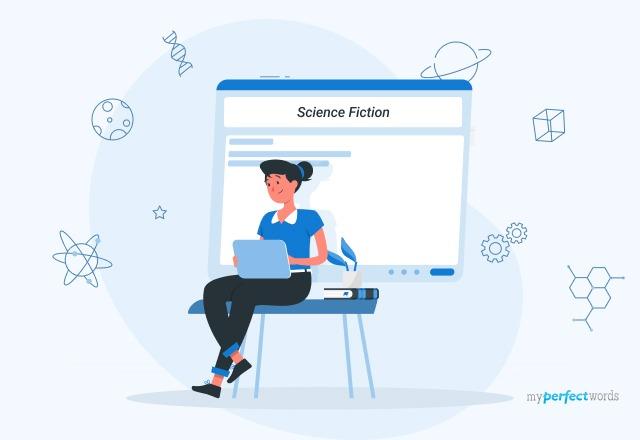
People also read
Learn How to Write an A+ Science Essay
150+ Engaging Science Essay Topics To Hook Your Readers
8 Impressive Science Essay Examples for Students
Essay About Science and Technology| Tips & Examples
Essay About Science in Everyday Life - Samples & Writing Tips
Check Out 5 Impressive Essay About Science Fair Examples
Whether you are a science or literature student, you have one task in common:
Writing an essay about science fiction!
Writing essays can be hard, but writing about science fiction can be even harder. How do you write an essay about something so diverse and deep? And where do you even start?
In this guide, we will discuss what science fiction is and how to write an essay about it. You will also get possible topics and example essays to help get your creative juices flowing.
So read on for all the information you need to ace that science fiction essay.
- 1. What Is Science Fiction?
- 2. What Is a Science Fiction Essay?
- 3. Science Fiction Essay Examples
- 4. How to Write an Essay About Science Fiction?
- 5. Science Fiction Essay Topics
- 6. Science Fiction Essay Questions
- 7. Science Fiction Essay Tips
What Is Science Fiction?
Science fiction is a genre of literature that often explores the potential consequences of scientific, social, and technological innovations. These might affect individuals, societies, or even the entire human race in the story.
The central conflict in many science fiction stories takes place within the individual human mind, addressing questions about the nature of reality itself.
It often follows themes of exploration, speculation, and adventure. Science fiction is popular in novels, films, television, and other media.
At its core, science fiction uses scientific concepts to explore the human condition or to create alternate realities. It often asks questions about the nature of reality, morality, and ethics in light of scientific advancements.
Now that we understand what science fiction is let's see some best essays on science fiction!
What Is a Science Fiction Essay?
Science fiction essays are written in response to a specific prompt, often focusing on a particular theme or idea.
They can be either creative pieces of writing or analytical works that examine the genre and its various elements.
It is different from a science essay , which discusses scientific topics in detail.
Science fiction essay aims to explore the implications of science fiction themes for our understanding of science and reality.
For science students, writing about science fiction can be useful to enhance their scientific curiosity and creativity.
Literature students get to write these essays a lot. So it is useful for them to be aware of some major scientific concepts and discoveries.
Here’s a video about what is science fiction:

Tough Essay Due? Hire Tough Writers!
Science Fiction Essay Examples
It can be helpful to look at examples when you're learning how to write an essay.
Here are some sample science fiction essay PDF examples:
Essay on Science Fiction Literature Example
Example Essay About Science Fiction
Short Essay About Science Fiction - Example Essay
Science Fiction Short Story Example
How to Start a Science Fiction Essay
Le Guin Science Fiction Essay
Pessimism In Science Fiction
Science Fiction and Fantasy
The Peculiarities Of Science Fiction Films
Essay on Science Fiction Movies
Looking for range of science essays? Here is a blog with some flawless science essay examples .
How to Write an Essay About Science Fiction?
Writing an essay on science fiction can be fun and exciting. It gives you the opportunity to explore new ideas and worlds.
Here are a few key steps you should follow for science fiction essay writing.
Know What Kind of Essay To Write
Science fiction essays can be descriptive, analytical, or exploratory. Always check with your instructor what kind of essay they want you to write.
For instance, a descriptive science fiction essay topic may describe the story of your favorite sci-fi novel or tv series.
Similarly, an analytical essay might require you to analyze a concept (e.g., time travel) in the light of science fiction literature.
On the other hand, explanatory essays require you to go beyond the literature to explore its background, influence, cultural impact, etc.
So different types of essays require different types of topics and writing styles. So it is important to know the type and purpose of your science fiction essay.
Find an Interesting Topic
There is a lot of science fiction out there. Find a movie, novel, or science fiction concept you want to discuss.
Think about what themes, messages, and ideas you want to explore. Look for interesting topics that can help make your essay stand out.
You can find a good topic by brainstorming the concepts or ideas that you find interesting. For instance, do you like the idea of traveling to the past or visiting futuristic worlds?
You'll find some great science fiction topics about the ideas you like to explore.
Do Some Research
Read more about the topic or idea you have selected.
Read articles, reviews, research papers, and talk to people who know science fiction. Get a better understanding of the idea you want to explore before diving in.
When doing research, take notes and keep track of sources. This will come in handy when you start writing your essay.
Organize Your Essay Outline
Now that you have done your research and have a good understanding of the topic, it's time to create an outline.
An outline will help you organize your thoughts and make sure all parts of your essay fit together. Your outline should include a thesis statement , supporting evidence, and a conclusion.
Once the outline is complete, start writing your essay.
Start Writing Your First Draft
Start your first draft by writing the introduction. Include a hook , provide background information, and identify your thesis statement.
Here is an example of a hook for a science fiction essay:
Your introduction should be catchy and interesting. But it also needs to show what the essay is about clearly.
Afterward, write your body paragraphs. In these paragraphs, you should provide supporting evidence for your main thesis statement. This could include quotes from books, films, or other related sources. Make sure you also cite any sources you use to avoid plagiarism.
Finally, conclude your essay with a summary of your main points and any final thoughts. Your science fiction essay conclusion should tie everything together and leave the reader with something to think about.
Edit and Proofread
Once your first draft is complete, it's time to edit and proofread.
Edit for any grammar mistakes, typos, or errors in facts. Check for sentence structure and make sure all your points are supported with evidence.
After that, read through your essay to check for flow and clarity. Make sure the essay is easy to understand and flows well from one point to the next.
Finally, make sure that the science fiction essay format is followed. Your instructor will provide you with specific formatting instructions. These will include font style, page settings, and heading styles. So make sure to format your essay accordingly.
Once you're happy with your final draft, submit your essay with confidence. With these steps, you'll surely write a great essay on science fiction!
Read on to check out some interesting topics, essay examples, and tips!
Science Fiction Essay Topics
Finding a topic for your science fiction essay is a difficult part. You need to find something that is interesting as well as relatable.
That is why we have collected a list of good topics to help you brainstorm more ideas. You can create a topic similar to these or choose one from here.
Here are some possible essay topics about science fiction:
- The Evolution of Science Fiction
- The Impact of Science Fiction on Society
- The Relationship Between Science and Science Fiction
- Discuss the Different Subgenres of Science Fiction
- The Influence of Science Fiction on Pop Culture
- The Role of Women in Science Fiction
- Describe Your Favorite Sci-Fi Novel or Film
- The Relationship Between Science Fiction and Fantasy
- Discuss the Major Themes of Your Favorite Science Fiction Story
- Explore the themes of identity in sci-fi films
Need prompts for your next science essay? Check out our 150+ science essay topics blog!
Science Fiction Essay Questions
Explore thought-provoking themes with these science fiction essay questions. From futuristic technology to extraterrestrial encounters, these prompts will ignite your creativity and critical thinking skills.
- How does sci-fi depict AI's societal influence?
- What ethical issues arise in genetic engineering in sci-fi?
- How have alien civilizations evolved in the genre?
- What's the contemporary relevance of dystopian themes in sci-fi?
- How do time travel narratives handle causality?
- What role does climate change play in science fiction?
- Ethical considerations of human augmentation in sci-fi?
- How does gender feature in future societies in sci-fi?
- What social commentary is embedded in sci-fi narratives?
- Themes of space exploration in sci-fi?
Science Fiction Essay Tips
So you've been assigned a science fiction essay. Whether you're a fan of the genre or not, this essay can be daunting.
But don't fear!
Here are some helpful tips to get you started on writing a science fiction essay that will impress your teacher and guarantee you a top grade.
Choose a Topic That Interests You
When it comes to writing a science fiction essay, it’s important to choose a topic that interests you.
Not only will this make the writing process more enjoyable, but it will also ensure that your essay is more engaging for the reader.
If you’re not sure what topic to write about, try brainstorming a few science fiction essay ideas until you find one that feels right.
Make Sure Your Essay is Well-Organized
Another important tip for writing a science fiction essay is to make sure that your essay is well-organized.
This means having a clear introduction, body, and conclusion. It also means ensuring that each paragraph flows smoothly into the next.
If your essay is disorganized or difficult to follow, chances are the reader will lose interest quickly.
Use Strong Verbs
When writing any type of essay, it’s important to use strong verbs. However, this is especially true when writing a science fiction essay.
Using strong verbs will help add excitement and energy to your writing, making it more engaging for the reader. Some examples of strong verbs include “discover,” “create,” and “explore.”
Be Creative
One of the best things about writing a science fiction essay is that you have the opportunity to be creative. This means thinking outside the box and coming up with new and innovative ideas.
If you’re struggling to be creative, try brainstorming with someone else or looking at other essays for inspiration.
Use Quotes Appropriately
While quotes can be helpful in supporting your argument, it’s important not to rely on them too heavily in your essay.
If you find yourself using too many quotes, chances are you’re not doing enough of your own thinking and analysis.
Instead of relying on quotes, try to paraphrase or summarize the main points from other sources.
To conclude the blog,
Writing a science fiction essay doesn’t have to be overwhelming. With these steps, examples, and tips, you can be sure to write an essay that will impress your teacher and guarantee you a top grade.
Whether it’s an essay about science fiction movies or novels, you can ace it with these steps! Remember, the key is to be creative and organized in your writing!
Don't have time to write your essay?
Don't stress! Leave it to us! Our science essay writing service is here to help!
Contact the team of experts at our best essay writing service . We can help you write a creative, well-organized, and engaging essay for the reader. We provide free revisions and other exclusive perks!
Moreover, our AI-based essay typer will provide sample essays for you completely free! Try it out today!
Have questions? Ask our 24/7 customer support!

Write Essay Within 60 Seconds!

Betty is a freelance writer and researcher. She has a Masters in literature and enjoys providing writing services to her clients. Betty is an avid reader and loves learning new things. She has provided writing services to clients from all academic levels and related academic fields.

Paper Due? Why Suffer? That’s our Job!
Keep reading


BRYN DONOVAN
tell your stories, love your life
- Writing Inspiration
- Semi-Charmed Life
- Reading & Research
50 Science Fiction Plot Ideas and Writing Prompts

One of my most popular blog posts is my 50 Fantasy Plot Ideas and Writing Prompts , so I thought I’d share a companion post of sci fi story ideas and writing prompts. Some of these may be more along the lines of “speculative fiction” than science fiction. They include prompts about the environment, artificial intelligence, genetics, medicine, time travel, space exploration, alien races, and alternative histories.
The real value of sci fi ideas, of course, is the way the author uses them to explore questions about society, humanity, and relationships. I created these as interesting writing prompts for adults, but many of them might be appropriate for teen writers, too. I think in order to really learn how to write a science fiction story, you need to read a lot in the genre, but this can still be a fun place to start.
If you’re interested in writing science fiction and you don’t have an agent, you might want to take a look at my roundup of fantasy and science fiction publishers who accept unsolicited (or unagented) manuscripts. And if you’re not writing scifi right now, but you might be in the future, you might want to pin or bookmark the post for future reference!

- All citizens are temporarily neutered at birth. Would-be parents must prove to the government that they’ll be suitable caretakers and providers before they are allowed to procreate.
- All marriages must be approved by a department of the government, which analyzes massive amounts of data to predict the success of the union, its economic and social impact on society, the health and welfare of any children, and so on. It’s such a hassle that many people opt for government-arranged marriages instead.
- Global warming prompts rapid mutations in the human species.
- The world’s leaders broker a deal with the alien invaders that many see as unfair.
- Humans have discovered a way to communicate directly with animals, and all the meat they consume is lab-created.
- Extreme elective surgery is the societal norm, and humans undergo creative modifications that include extra limbs, cartoon-like features, and so on.
- Breeding modern humans with large amounts of Neanderthal DNA leads to interesting results.
- In this world, Napoleon’s army took over Australia, he never lost at Waterloo, France took control of most of Europe, and World War I and World War II never happened.
- An alien from a planet where no one else experiences empathy comes to live on Earth, believing they will fit in better there.
- A drug that makes people non-confrontational has been added to the public water supply and to all beverages sold by major corporations.
- The huge, thin sheets of material covering some trees and yards turn out to be discarded placentas.
- A low-level employee in a bureaucratic government office realizes the paperwork he files every day contains codes that determine others’ fates.
- A human and alien fall in love, causing an interplanetary crisis.
[AdSense-B]
- An alien doesn’t know how to tell the humans s/he’s become intimately involved with that s/he’s an alien, even though they will find out soon.
- High-speed robotic horses become a trendy alternative to cars and weave through heavy traffic with ease.
- Birds and butterflies are able to navigate on long migrations due to proteins in their bodies that align with the earth’s magnetic fields. Scientists put these proteins to a new use.
- An entertainment company synthesizes huge amounts of data they collected about viewer’s responses to movies and shows, and they use it to create a TV show that’s dangerously addictive.
- Mars has been terraformed by dropping nuclear bombs on its poles, and the first human colonists have been assured that almost all of the radiation has escaped the atmosphere.
- An attempt to save the honeybees had surprising consequences.
- Online bullying is made a felony, which leads to unforeseen complications.
- At a new underwater amusement park and resort, built at a greater depth than any other construction before, the guests face an unforeseen threat.
- Spies use tiny implants in the retina that record and transmit everything to the commanders in another country. The implants dissolve after a certain amount of time.
- The first time travellers seem to have no ability to improve the course of human events. If they kill Hitler, for instance, some other person does exactly what he did. They search for the way to really alter the timeline.
- Astronauts develop strange and unexpected symptoms in response to traveling at light speed.
- It’s easy to look up exactly where any person is at any given time.
- New fitness devices track your movements and everything you eat automatically.
- A new device automatically tracks your mood levels and emotions. This leads people to avoid more of what makes them unhappy and do more of what makes them feel good.
- People become human mood rings: they get implants that make them change color along with their mood.
- Criminals and dissidents undergo illegal genetic therapy to change their DNA so the government has no record of them.
- Euthanasia is legal and painless means are widely available. A detective specializes in suspicious cases of euthanasia that may have been murder.
- Books and videogames have both been replaced by interactive virtual worlds filled with fascinating characters.
- Colonists on another planet want to be an independent country and lead a rebellion.
- People from a civilization that mysteriously disappeared centuries ago, such as ancestral Puebloans in the U.S. Southwest, return.
- An alien planet outsources city planning by creating a complex, engrossing city-building videogame popular with humans.
- A time traveler from centuries in the future fails in their attempt to impersonate a person of the twenty-first century. They enlist someone’s help to carry out a mission.
- A virus can be transmitted from computers or other machines to humans with bionic upgrades.
- Advertisements appear randomly in thin air in front of a person. Getting media without this advertising is prohibitively expensive.
- A team of scientists attempt to genetically alter a human to adapt to another planet’s terrain or outer space travel. They accidentally make him or her immortal.
- Implants make telepathy possible between the humans who get them.
- The Air Force uses invisibility technology for the first time, but the pilot realizes her mission is morally reprehensible.
- People are nostalgic for snow, so they create artificial snowstorms.
- In a world where pain and suffering have been eliminated, people pay to experience a variety of negative sensations under safe and controlled circumstances.
- A secret society of scientists labors to make medical discoveries and to save the planet, even though a religious fundamentalist government has outlawed their activities.
- Medical researchers are attempting to bring people back to life after they’ve been dead for thirty minutes or even an hour and give them a full recovery. Their experimentation is unethical and/or leads to strange alterations to people’s brains.
- Someone is shrunk to a tiny size to perform a life-saving or planet-saving procedure impossible for a machine or an average-sized human.
- His loved one died, but is alive in a parallel universe, and he is somehow getting messages or clues about her life there.
- On Ceres, a large asteroid, there’s a fueling station for spaceships. Terrorists take over the station and disrupt space travel and trade.
- Because it’s too hard to screen for performance-enhancing drugs, they are made legal and are an important component of sports.
- The ability to make visual recordings of dreams has exhilarating and terrifying consequences.
- Because android “kids” have become so lifelike, amusing, and hassle-free, no one wants to have real ones.
- (bonus) Patients are woken up from hibernation when the cures to their diseases have been discovered.

I hope you liked these! And if one of them sparks your imagination, don’t feel guilty about using it–you’ll wind up putting your personal spin on it, anyway. Or maybe something on the list will inspire a completely different idea of your own!
Would you like some more? My book 5,000 Writing Prompts has 100 more science fiction writing prompts in addition to the ones on this list, plus hundreds of other master plots by genre, dialogue and character prompts, and much more.

Thanks for stopping by, and happy writing!
Related Posts

Share this:
21 thoughts on “ 50 science fiction plot ideas and writing prompts ”.
As much as I love reading and writing books, I’d definitely be interested in interacting with a virtual fantasy world. I’d also like the automatic fitness and mood trackers. I don’t write science fiction, but I’d love some of these to be real someday. Great prompts!
Hi Renea! Yeah, a few of these were wishful thinking. 🙂 Thanks for the kind words!
Hi, what a wonderful list! Thank you. I noticed that there are two #25’s listed so the list is actually 51. 🙂
Hahaha! Hey, I’m a writer, not a numbers gal. 😉 I re-numbered it so #51 is a bonus. Thanks, Laurie!
I like you list as well. “Bryn laughed as she posted her answer for miscounting her plots. Then the total number of characters in her post quickly appeared in her mind. “That’s never happened to me before.” as she smiled to herself. She started to get up to get a bottle of water. As she looked down pressed the keys to lock her computer screen, she quickly counted the pores on the back of her hand. “Wait a minute. What the heck is going on?”
Thanks for all the great sci-fi prompts, Bryn. 🙂 — Suzanne
- Pingback: Sci-Fi Biweekly Bulletin: The Darkest Minds, Hullmetal Girls, and More - Sci-Fi & Scary
34. Is interesting. Outsourcing anything to other civilizations by means of games is a great idea.
Well written and interesting! You should check out my article on the physics of Black Holes: https://therealsciblog.wordpress.com/2018/06/20/black-holes/
Also I will follow anyone who follows me, so please please please follow me!
“In a world where pain and suffering have been eliminated, people pay to experience a variety of negative sensations under safe and controlled circumstances.”
That was actually the plot of a Star Trek: Voyager episode (Random Thoughts) in the 1990s. The only exception is that the trade of negative sensations was illegal, and sanctioned by the government.
Hello! I love your ideas. But what if someone uses one of your story plots and publishes the book? Would you want credit?
- Pingback: 50 Science Fiction Plot Ideas and Writing Prompts – The Writer's Nook
I think you meant to say that Napoleon invades Austria, not Australia?
I have a good plot. the idea itself has been forming and ripening in my mind for 15 years. can i share with you? if so, please contact me by this mail. [email protected]
Science fiction is not just about aliens, mermaids, time travel, and more. Here, you can also write about deep and philosophical stuff, and even tackle societal issues. For example, issues on technological advancement such as the possible takeover of robots and the impending destruction of the planet are commonly emphasized in numerous science fiction novels. These and all the other issues in the society today are tackled in length in science fiction because there is no better place to explore them than in this genre.
Fantastic Plot Ideas! Thanks for sharing. Science fiction stories often illustrate the social reality of the current times. These stories give us a clear picture of how the technologies of today are affecting our daily lives, particularly our interaction and connection with one another. These stories help us understand the things that make up our current reality.
- Pingback: المجتمع العربي لكتاب الخيال العلمي
- Pingback: 50 Fantasy Writing Prompts and Fantasy Plot Ideas
Thankyou very much! I often write dilemma stories for my ethics class pupils to start or to complement a teaching unit. Fantasy and Science Fiction help us to talk to children even about explosive subjects. But I have less imagination as everyone thinks: Four or five ideas, and that´s it. So I just visited your collection to find more Ideas for my pupils. This was very helpful. Thanx in the name of the children.
Hi Cora! Ow wow, that is so cool! Your class sounds like so much fun. I’m so glad this was useful!
- Pingback: How Science Fiction Gets Started – memorablequotations.com
Leave a Reply Cancel reply
This site uses Akismet to reduce spam. Learn how your comment data is processed .
Discover more from BRYN DONOVAN
Subscribe now to keep reading and get access to the full archive.
Type your email…
Continue reading
Get 25% OFF new yearly plans in our Spring Sale
- Features for Creative Writers
- Features for Work
- Features for Higher Education
- Features for Teachers
- Features for Non-Native Speakers
- Learn Blog Grammar Guide Community Events FAQ
- Grammar Guide
How to Write a Hook: Top 5 Tips for Writers

Hannah Yang
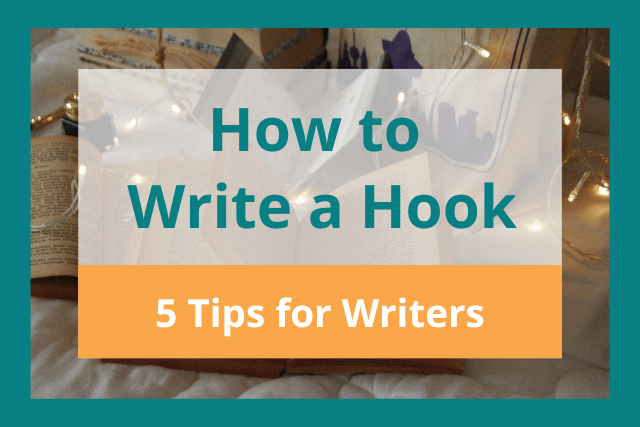
How do you make people feel excited to read your work?
Well, for starters, you can write a great hook.
The “hook” refers to the first sentence, or first few sentences, of an essay, article, or story. That’s because these first few lines need to hook readers in, the same way fishermen use bait to hook fish in.
If you’re trying to figure out how to write a hook, you’ve come to the right place. Read on to learn how to write a fantastic hook and to see some examples of successful ones.
What Is a Hook in Writing?
Top 5 tips for writing good hooks, great examples of hooks, is writing a hook in an essay different from a story hook, conclusion on how to write a hook.
We use the term “hook” to talk about the very beginning of a written work—specifically the part designed to grab readers’ attention. The hook can be as short as a single sentence or as long as a full paragraph.
Writing hooks is a necessary skill for all types of writing—narrative essays, research papers, fiction writing, and more.
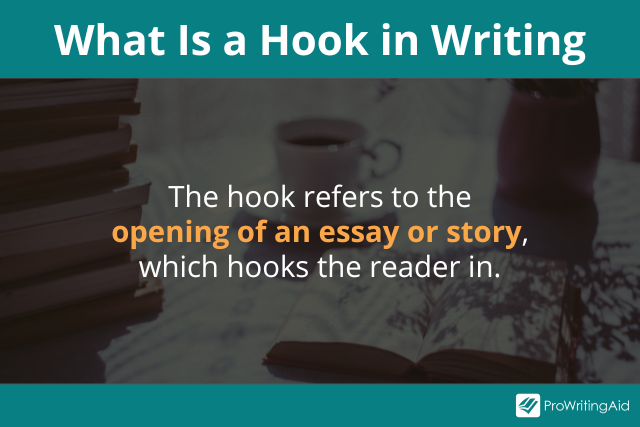
What Makes a Good Hook Important?
Good hooks make your reader feel excited to keep reading.
If you’re writing a book, you need a great hook so people decide to actually buy your work, instead of putting it back on the shelf.
If you’re writing a blog post or article, you need a great hook so people read to the end, instead of scrolling or flipping to a different article instead.
And if you’re writing an essay for school, you need a good hook so you can practice the skill of writing well.
What Are the Different Types of Hooks?
There’s more than one way to write a great hook.
Here are six types of hooks that will grab your reader’s attention.
- Question hook : a question that provokes the reader’s curiosity and makes them keep reading to find out the answer
- Statement hook : a strong declaration related to your topic that makes the reader keep reading to see you defend this statement
- Statistic hook : an interesting fact or statistic that makes you sound knowledgeable, so your reader trusts your expertise
- Quote hook : a memorable quote, often by a famous person, that the reader will find interesting
- Description hook : a vivid description that immerses your reader into a specific scene
- Anecdotal hook : a personal story that relates to your topic and makes the reader feel personally connected to the story
Here are our top tips for writing a strong opening hook.
Tip 1: Surprise the Reader
Readers crave the unexpected. If you start your piece in a surprising way, they’ll be more likely to keep reading.
You can even say something controversial. Readers will want to keep reading to see how you prove your own statement.
Tip 2: Raise a Question
When starting an essay or a story, you should try to create a question that the reader wants answered.
This doesn’t have to be a literal question that ends with a question mark—instead, it can simply be an unusual statement or a weird situation. Make sure it’s something your target audience will find interesting.
Tip 3: Keep Your Promises
If you open your essay with an interesting hook, you need to be mindful of what you’re promising to the reader. If you don’t keep that promise throughout the piece, your reader will feel tricked.
For example, you’d probably be unhappy if you read a story that started with, “The monster was coming for me” and then, later in the first chapter, said, “Then I woke up and realized it was just a nightmare.”
The first sentence is a strong opening hook, but it promises a dramatic scene, which doesn’t get fulfilled, because the hook turns out not to be real.
An equivalent in an essay would be writing a controversial statement and then failing to prove why that statement is true, or asking an interesting question and then failing to answer it later.
Tip 4: Keep It Relevant
Some writers try so hard to choose an interesting hook that they end up using something irrelevant to their essay. Readers will get confused if you open with a random quote or statistic that only tangentially connects to your thesis.
If you’re choosing between a fascinating hook that doesn’t have much to do with your topic, or a decent hook that’s directly related to your thesis statement, you should go with the latter.
Tip 5: Don’t Stop at the Hook
Some writers focus so much on nailing the opening hook that they forget to make the rest of the essay equally strong.
Your reader could still stop reading on the second page, or the third, or the tenth. Make sure you use strong and engaging writing throughout the piece.
One way to learn how to write hooks is to look at examples.
Here are examples of six hooks you could use to start a persuasive essay about artificial intelligence, plus three hooks you could use to start a sci-fi story.
Example 1: Question Hook
- Will artificial intelligence someday become smarter than humans?
Example 2: Statement Hook
- Artificial intelligence could become smarter than humans by 2050.
Example 3: Statistic Hook
- As of 2022, the global AI industry is worth over $130 billion.
Example 4: Quote Hook
- The scientist Stephen Hawking once said, “The development of full artificial intelligence could spell the end of the human race.”
Example 5: Description Hook
- The Alexa AI blinks from the kitchen table, emitting a comforting blue light.
Example 6: Anecdotal Hook
- Like many people of my generation, I used an AI for the first time when I was twelve years old.
Example 7: Sci-Fi Story Hooks
- Samuel Gibson had friends. Sure, all his friends were AI robots that his parents had purchased for him, but they still counted as friends.
- My father’s office is full of strange machines, which none of us are allowed to touch.
- The AI revolt began on Christmas morning of the year 2068.
Both essays and stories require good hooks. After all, you’re still competing for your reader’s attention, no matter what kind of work you’re writing.
However, a story hook will look very different from an essay hook.
If you’re writing fiction, you most likely won’t use a statistic, question, or quote to hook your readers in. Instead, your best options will be a statement, a description, or an anecdote—or, or often, a sentence that combines a little bit of all three.
Just like with essays, you should try to raise a question in your reader’s head. This can be a strange character, an unusual setting, or a mysterious fact.
Here are some examples of strong hooks in novels:
“My first memory, when I was three years old, was of trying to kill my sister.”—Jodi Piccoult, My Sister’s Keeper
“It is a truth universally acknowledged, that a single man in possession of a good fortune, must be in want of a wife.”—Jane Austen, Pride and Prejudice
“Once upon a time, on the coldest night of midwinter, in the darkest heart of the forest, Death and Fortune came to a crossroads.”—Margaret Owen, Little Thieves
“The women gather in a YMCA basement rec room: hard linoleum floors, half-windows along one wall, view of sidewalk and brick.”—Maria Adelmann, How to Be Eaten
“I became what I am today at the age of twelve, on a rainy overcast day in 1975.”—Khaled Hosseini, The Kite Runner
“It did not surprise Fire that the man in the forest shot her. What surprised her was that he shot her by accident.”—Kristen Cashore, Fire
There you have it—a complete guide to writing a fantastic hook.
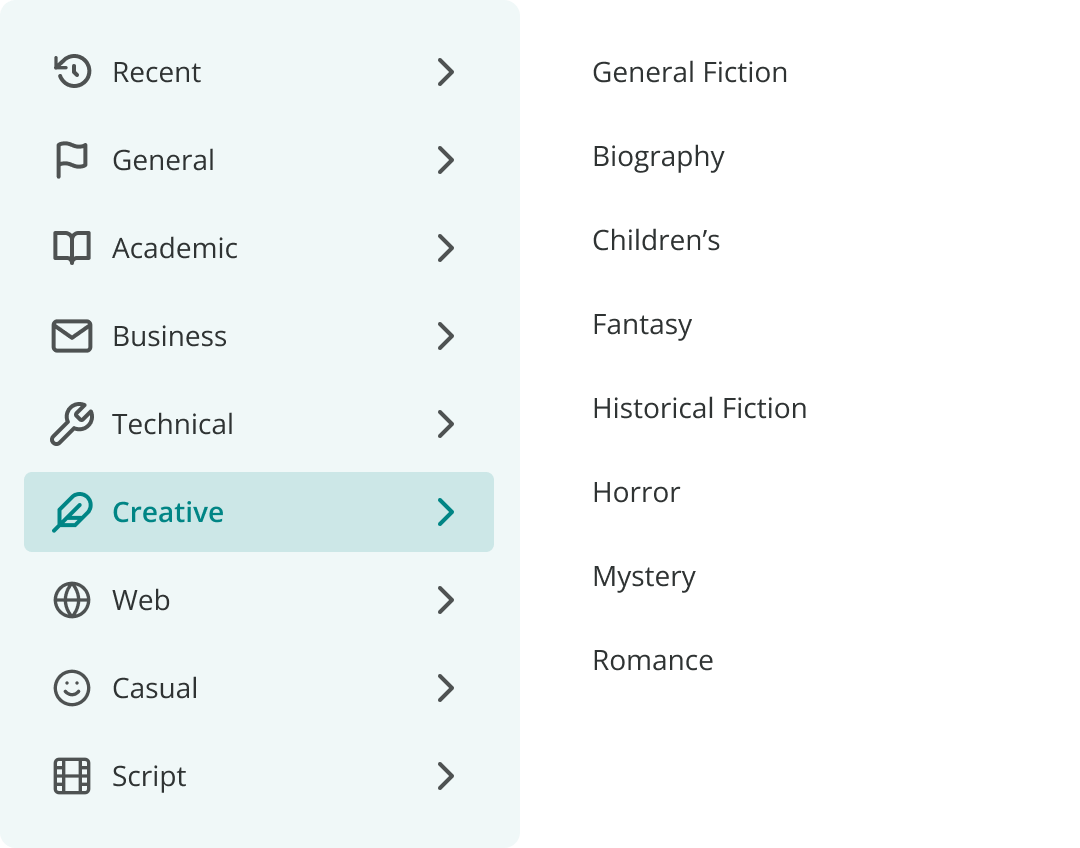
ProWritingAid has specific settings for creative writers and students, so it can help you write your story or essay. Try it out the next time you need to write a hook.
Good luck, and happy writing!

Be confident about grammar
Check every email, essay, or story for grammar mistakes. Fix them before you press send.
Hannah Yang is a speculative fiction writer who writes about all things strange and surreal. Her work has appeared in Analog Science Fiction, Apex Magazine, The Dark, and elsewhere, and two of her stories have been finalists for the Locus Award. Her favorite hobbies include watercolor painting, playing guitar, and rock climbing. You can follow her work on hannahyang.com, or subscribe to her newsletter for publication updates.
Get started with ProWritingAid
Drop us a line or let's stay in touch via :
- Appointment
The History of the Telling Hook: On Writing Science Fiction in Scene
Lately I’ve been encountering a recurring credo among fellow writing workshoppers and conductors of said workshops that goes something along the lines of “you’ve got to hook your reader in the first paragraph” of whatever it is you’re writing, hit them with the premise, the conflict, and the protagonist’s goals, or else you’re gonna lose that reader and the whole intro to your book.
I mean, the advice is valid. I don’t have any beef with the substance of what’s being advised here: give your reader something that piques her interest, as soon as possible, and usually what piques interest is a conflict or a motivation or an interesting premise. I attended a seminar recently that purported to be about upending the old adage “show, don’t tell”—a liberating three-hour session where we were shown examples of writers doing a lot of telling up front that situated the reader just as effectively as any amount of showing might. But what the seminar really was about was writing hooks without a scene—how to write a hook with purely “telling” prose rather than “showing” prose. The difference might be that you open with a few sentences that straight up declare your premise or theme, the exact nature of which the reader is going to learn over the course of the story. Here is the first sentence of A Wizard of Earthsea , a hook that “tells” rather than “shows”:
The island of Gont, a single mountain that lifts its peak a mile above the storm-racked Northeast Sea, is a land famous for wizards.
The alternative to this hook would be to render a scene with a character doing something atop those mountains, with the writer carefully slipping in world-building details as the character inhabits the space.
I’d like to call this technique the “telling hook,” and its antithesis the “hook in situ, ” where the story plunges the reader in media res, thereby diminishing the role of the narrator. For example, from the opening of The Dark Tower :
The man in black fled across the desert, and the gunslinger followed.
Both of these hooks make the reader want to keep reading. We want to keep reading in Ursula’s opening because we want to learn about this “land famous for wizards”—we’re hooked by its mysterious quality. We don’t have a protagonist yet, we don’t have a conflict, we don’t know anything about the premise other than the possibility that magic might be involved—and even that we already know, because we selected this book from the fantasy section of the bookstore and it’s called A Wizard of Earthsea. In the Dark Tower example, we similarly don’t know the premise, but we do have a conflict and we do have characters in action. What hooks us here is the momentum of the chase, rendered by the scene.
Now, these hooks don’t do all the stuff we often advise our peers to make their hooks do. We don’t have stakes yet. The premise is protected for some time—several paragraphs, a page, several pages, a chapter or two, even. The reader is not given a comfortable context in which to understand the world immediately. In fact, I find that in the vast majority of contemporary genre writing (in the novel form, and particularly in science fiction), writers have a slow rate of revelation, blending world-building factoids scene-to-scene, rather than in front-loading blobs. I think this has something to do with the general public developing a familiarity for science fiction and what it promises over the course of the twentieth century. Interestingly, the tendency to use the telling hook vs the hook in situ increases with the age of the novel. Let’s start with a few science fiction novels published prior to the 20th century.
Being about to give a narrative of my singular adventures to the world, which, I foresee, will be greatly divided about their authenticity, I will premise something of my early history, that those to whom I am not personally known, may be better able to ascertain what credit is due to the facts which rest only on my own assertion. I was born in the village of Huntingdon, on Long-Island, on the 11th day of May, 1786. A Voyage to the Moon, George Tucker (1827)
My name is Arthur Gordon Pym. My father was a respectable trader in sea-stores at Nantucket, where I was born. My maternal grandfather was an attorney in good practice. He was fortunate in every thing, and had speculated very successfully in stocks of the Edgarton New Bank, as it was formerly called. By these and other means he had managed to lay by a tolerable sum of money. He was more attached to myself, I believe, than to any other person in the world, and I expected to inherit the most of his property at his death. The Narrative of Arthur Gordon Pym , Edgar Allan Poe (1838)
The year 1866 was signalised by a remarkable incident, a mysterious and puzzling phenomenon, which doubtless no one has yet forgotten. Not to mention rumours which agitated the maritime population and excited the public mind, even in the interior of continents, seafaring men were particularly excited. Merchants, common sailors, captains of vessels, skippers, both of Europe and America, naval officers of all countries, and the Governments of several States on the two continents, were deeply interested in the matter. 20,000 Leagues Under the Sea , Jules Verne (1870)
No one would have believed in the last years of the nineteenth century that this world was being watched keenly and closely by intelligences greater than man’s and yet as mortal as his own; that as men busied themselves about their various concerns they were scrutinised and studied, perhaps almost as narrowly as a man with a microscope might scrutinise the transient creatures that swarm and multiply in a drop of water. With infinite complacency men went to and fro over this globe about their little affairs, serene in their assurance of their empire over matter. War of the Worlds, H.G. Wells (1897)
These books all begin with telling hooks. They give the reader the premise, the background of the protagonist, the theme broadly, or lead with mystery. All start without a scene. This technique for opening a science fiction novel prevails throughout the early twentieth century, as science fiction begins to take form as a genre. My suspicion is that the introduction of the pulps in the thirties, with their emphasis on adventure and sensation, had something to do with de-intellectualizing the hook, which set the stage for the genre to become more accessible to the public, in the form of pulp magazines like Amazing Stories and in other new media, such as the film Metropolis . This not only had an effect on the character of the stories, but on the way they were told. The Modernists transformed the genre with literary dystopia after World War I, in turn re-intellectualizing the genre, but the early 20th century scifi still relied heavily on the telling hook to open its stories. Consider the following:
Observe now your own epoch of history as it appears to the Last Men. Long before the human spirit awoke to clear cognizance of the world and itself, it sometimes stirred in its sleep, opened bewildered eyes, and slept again. One of these moments of precocious experience embraces the whole struggle of the First Men from savagery toward civilization. Within that moment, you stand almost in the very instant when the species attains its zenith. Scarcely at all beyond your own day is this early culture to be seen progressing, and already in your time the mentality of the race shows signs of decline. The Last and First Men , Olaf Stapledon (1935)
His name was Gaal Dornick and he was just a country boy who had never seen Trantor before. That is, not in real life. He had seen it many times on the hyper-video, and occasionally in tremendous three-dimensional newscasts covering an Imperial Coronation or the opening of a Galactic Council. Even though he had lived all his life on the world of Synnax, which circled a star at the edges of the Blue Drift, he was not cut off from civilization, you see. At that time, no place in the Galaxy was. Foundation , Isaac Asimov (1942)
He was Ptath. Not that he thought of his name. It was simply there, a part of him, like his body and his arms and legs, like the ground over which he walked. No, that last was wrong. The ground was not of him. There was a relation, of course, but it was a little puzzling. He was Ptath, and he was walking on ground, walking to Ptath. Returning to the city of Ptath, capital of his empire of Gonwonlane after a long absence. The Book of Ptath , A.E. van Vogt (1943)
It isn’t until we get to the Golden Age of Science Fiction—the late forties and into the sixties (when New Wave writers took the genre into the realm of literary fiction)—that the telling hook starts to be supplanted by the hook in situ.
It was a pleasure to burn it. It was a special pleasure to see things eaten, to see things blackened and changed. With the brass nozzle in his fists, with this great python spitting its venomous kerosene upon the world, the blood pounded in his head, and his hands were the hands of some amazing conductor playing all the symphonies of blazing and burning to bring down the tatters and charcoal ruins of history. Fahrenheit 451 , Ray Bradbury (1953)
It was a dark and stormy night. In her attic bedroom Margaret Murry, wrapped in an old patchwork quilt, sat on the foot of her bed and watched the trees tossing in the frenzied lashing of the wind. Behind the trees clouds scudded frantically across the sky. Every few moments the moon ripped through them, creating wraith-like shadows that raced along the ground. A Wrinkle in Time , Madeleine L’Engle (1962)
In the week before their departure to Arrakis, when all the final scurrying about had reached a nearly unbearable frenzy, an old crone came to visit the mother of the boy, Paul. It was a warm night at Castle Caladan, and the ancient pile of stone that had served the Atreides family as home for twenty-six generations bore that cooled-sweat feeling it acquired before a change in the weather. The old woman was let in by the side door down the vaulted passage by Paul’s room and she was allowed a moment to peer in at him where he lay in his bed. Dune , Frank Herbert (1965)
A merry little surge of electricity piped by automatic alarm from the mood organ beside his bed awakened Rick Deckard. Surprised—it always surprised him to find himself awake without prior notice—he rose from the bed, stood up in his multicolored pajamas, and stretched. Now, in her bed, his wife Iran opened her gray, unmerry eyes, blinked, then groaned and shut her eyes again. “You set your Penfield too weak,” he said to her. “I’ll reset it and you’ll be awake and—” “Keep your hand off my settings.” Her voice held bitter sharpness. “I don’t want to be awake.” Do Androids Dream of Electric Sheep , Philip K. Dick (1968)
During this period we start to see hooks situated in space and time, with characters doing things and talking to other characters, before any specific context is given about the premise or the theme. Fahrenheit 451 starts in scene, books burning “with a brass nozzle” in the protagonist’s fists. A Wrinkle in Time starts with a deliberate cliche, and a very tangible storm. Despite Princess Irulan’s epigraph that precedes the opener, Dune’ s first page jumps right into a scene with Paul Atreides and the gom jabbar , which focuses on the resilience of the mind with a description of physical torture. Philip K Dick’s Androids starts immediately with a conversation, in a taboo-among-writers “waking up” scene, no less!
In all of these examples, world-building is done in-scene, and there is little exposition except to render the immediate environment the reader finds herself in. The expectation of the novelist is that the genre reader is familiar enough with science fiction to understand its tropes and its conventions. The writer is withholding context not because she’s insecure about the strength of her story, or because she’s trying to build suspense, but because she’s trying to create total immersion for the reader. What is familiar to the characters is not going to be familiar to the reader, but it breaks immersion to pause and make the unfamiliar known through narration, therefore the reader must puzzle out context as scenes are rendered. Likewise, overarching themes (what the story is “about”) become emergent properties of the work; they’re never explicitly stated, they’re only ever surmised by the reader.
Novels in the subsequent decades (sixties to eighties) continued to eschew context for action, placing the reader directly into a world unknown. By the eighties and onward, the telling hook becomes a rare choice to open the science fiction novel.
The sky above the port was the color of television, tuned to a dead channel. “It’s not like I’m using,” Case heard someone say, as he shouldered his way through the crowd around the door of the Chat. “It’s like my body’s developed this massive drug deficiency.” It was a Sprawl voice and a Sprawl joke. The Chatsubo was a bar for professional expatriates; you could drink there for a week and never hear two words in Japanese. Neuromancer , William Gibson (1984)
“I’ve watched through his eyes, I’ve listened through his ears, and tell you he’s the one. Or at least as close as we’re going to get.” “That’s what you said about the brother.” “The brother tested out impossible. For other reasons. Nothing to do with his ability.” “Same with the sister. And there are doubts about him. He’s too malleable. Too willing to submerge himself in someone else’s will.” Ender’s Game , Orson Scott Card (1985)
We slept in what had once been the gymnasium. The door was of varnished wood, with stripes and circles painted on it, for the games that were formerly played there; the hoops for the basketball nets were still in place, though the nets were gone. A balcony ran around the room, for the spectators, and I thought I could smell, faintly like an afterimage, the pungent scent of sweat, shot through with the sweet taint of chewing gum and perfume from the watching girls, felt-skirted as I knew from pictures, later in mini-skirts, then pants, then in one earring, spiky green-streaked hair. The Handmaid’s Tale , Margaret Atwood (1985)
The Consul awoke with the peculiar headache, dry throat, and sense of having forgotten a thousand dreams which only periods in cryogenic fugue could bring. He blinked, sat upright on a low couch, and groggily pushed away the last sensor tapes clinging to his skin. There were two very short crew clones and one very tall, hooded Templar with him in the windowless ovoid of a room. One of the clones offered the Consul the traditional post-thraw glass of orange juice. He accepted it and drank greedily. Hyperion Cantos , Dan Simmons (1989)
The tropical rain fell in drenching sheets, hammering the corrugated roof of the clinic building, roaring down the metal gutters, splashing on the ground in a torrent. Roberta Carter sighed, and stared out the window. From the clinic, she could hardly see the beach or the ocean beyond, cloaked in low fog. Jurassic Park , Michael Crichton (1990)
Writing of the cyberpunk era (in the late eighties and nineties) reflects its physicality, and so it only makes sense to see openings that start with the physicality of a scene over its intellectualized “telling” alternative. But once we get to scifi of the twenty-first century, the language of the hook is stripped even further bare of the ephemerality of telling. Less is more, and scene-based action drives the opener above all else:
An everyday doomsayer in sandwich board abruptly walked away from what over the last several days had been his pitch, by the gates of a museum. The sign on his front was an old-school prophesy of the end: the one bobbing on his back read forget it. Kraken , China Mieville (2010)
Freya and her father go sailing. Their new home is in an apartment building that overlooks a dock on the bay at the west end of Long Pond. The dock has a bunch of little sailboats people can take out, and an onshore wind blows hard almost every afternoon. “That must be why they call this town the Fetch,” Badim says as they walk down to take out one of these boats. “We always catch the brink of the afternoon wind over the lake.” Aurora , Kim Stanley Robinson (2015)
I bounded over the gray, dusty terrain toward the huge dome of Conrad Bubble. Its airlock, ringed with red lights, stood distressing fly far away. Artemis , Andy Weir (2017)
I am not on this beach. I see the waves and hear them smashing against the shore. I can even taste the salt on my lips and feel the grains of sands between my toes. I breathe in deep and for a few moments even believe that the crisp, fresh air is filling my lings. I close my eyes and tilt my head back like a sunflower to the sky, letting the sun’s heat soak into my ski and turn the darkness into the deep pink of my eyelids. Before Mars , Emma Newman (2018)
Granted, these are just a handful of novels, picked from various top ten lists for each decade. This is not to say that there are zero examples of telling hooks in contemporary science fiction: off the top of my head, Octavia Butler comes to mind—her novels often start with a telling hook. But my point isn’t about accuracy, it’s about being cautious when it comes to adopting workshop credos, and making sure that the advice you’re given applies to your genre. What might seem like a radical move for literary fiction might come across as staid or out of fashion in contemporary science fiction.
Leave Comment
Your Two Cents
Notify me when new comments are added.
Also in Science Fiction
View Science Fiction View Blog

Big Dumb Objects in Fantasy on Worldbuild with Us, Episode 14
I guest-starred on Worldbuild with Us , a podcast devoted to building an fantasy setting, one episode at a time.
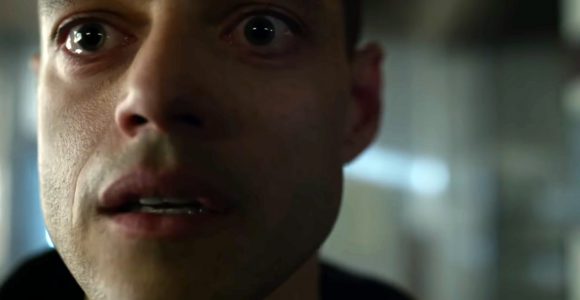
Mr. Robot is Cyberpunk for the Masses
Critics praise Mr. Robot for going against the grain, but its textbook conformity to cyberpunk tropes reveals it’s doing anything but: this is cyberpunk for the masses.
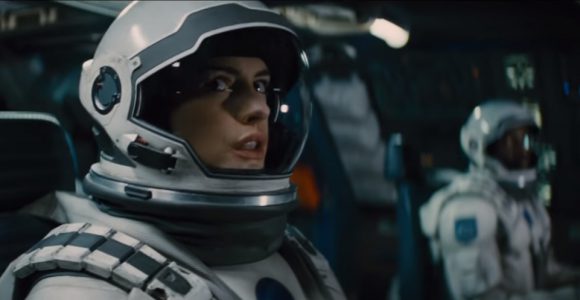
Interstellar vs. Contact: Questions of Love in Five Dimensions
I struggled to understand why Interstellar didn’t strike a “spiritual” chord with me. So I rewatched Contact, which also stars Matthew McConaughey.
Daniel J. Quinn 2008 - 2024 Boston Freelance Web Designer Credits
- Willow Tenny
- Writing Prompts
- Writing Tools
- Shop For Articles

Writing Hooks: How to Catch Your Reader’s Attention

Table of Contents
Have you ever been so captivated by a book, article, or blog post that it felt like time was standing still? Then chances are the writer had crafted an incredibly effective writing hook. But what is this magical tool, and how can we use it to ensnare our readers’ attention? Writing hooks aren’t just about snagging readers but rather creating intrigue for them with your content from the get-go! So let’s dive in and check out some tips on crafting masterful writing hooks.
A writing hook is a captivating phrase that entices the reader immediately and keeps them hooked until the end. It’s an effective tool to draw readers in with its magnetic appeal while creating interest in what lies ahead. In other words, it adds suspense and excitement like no other!
Ready to spellbind your readers? This article will reveal the key to an irresistible writing hook: one that’s sure to captivate and allure. Get ready for a wave of curiosity!
Key Takeaways:
- A writing hook is a captivating phrase or sentence that entices the reader and keeps them engaged until the end.
- The key to a successful hook is understanding your target audience and their interests, connecting with them through personal anecdotes, and captivating them with a hook that elicits emotions, raises questions, surprises them, relates to them, or draws upon statistics.
- The five hooks are emotional, question, surprise, anecdote, and statistical.
- To craft a successful hook, the writer must tailor it to their target audience and use it to create an unbreakable bond with the reader.
Connecting with Your Audience Through Writing Hooks
Have you ever wondered why some writing can draw in readers and keep them captivated? The key is to create an impactful introduction, or ‘hook’, that will immediately grab their attention. Crafting the perfect hook requires understanding your audience; it should be tailored specifically for those who are most likely to read and enjoy your work!
Identifying the Target Audience
A great writing hook starts with understanding your audience – the people who you’re hoping to engage and captivate.
Who will be reading? Is it potential customers looking for a new product or service solution, or are there certain readers in mind that could benefit from what you have to offer?
Knowing exactly who is on the other side of that message can make all the difference when crafting something worth taking notice of.
Understanding Reader Interests
Got your target audience in mind? Great – it’s time to explore their interests and start brainstorming content ideas that’ll really get them talking.
What can you create that they won’t be able to resist? Brainstorm captivating topics and hooks, then watch as eager readers dive right into your material!
Creating a Connection with the Reader
The key to captivating readers with your writing is creating an unbreakable bond between you and them. Showing off how passionate or knowledgeable you are about the topic can do wonders and provide personal stories that people from a similar background will appreciate.
It’s impossible not to be drawn in by someone who connects their piece on such levels – so don’t forget to make those connections for increased engagement!
Captivate Your Audience with Different Types of Writing Hooks
Every writer knows the importance of a good hook. A hook is the first sentence or two that grabs the reader’s attention and convinces them to keep reading. It’s an effective tool for drawing readers in. This section will discuss five hooks you can use to capture your reader’s attention: emotional hooks, question hooks, surprise hooks, anecdote hooks, and statistical hooks.
Emotional Hooks
An emotional hook aims to draw on readers’ emotions to get them invested in what they’re reading. With this type of hook, you want to evoke strong feelings such as fear, anger, sadness, or joy in order to spur the reader into action.
For example, suppose you are writing about climate change and its effects on the environment. In that case, you could start your article with a sentence like “Every day, we hurtle closer towards a future where our planet will no longer be able to support life as we know it.”
This type of statement can elicit a powerful emotional response from readers and motivate them to take action against climate change.
Question Hooks
Using questions is another great way to get readers hooked on your writing. Asking provocative questions can make readers think more deeply about a topic and encourage them to read further to find more information or answers.
For instance, if you were writing an article about gun control reform in America, you could start off with a question like “Why do so many politicians refuse to take meaningful steps toward reforming our nation’s gun laws?” This question encourages the reader to delve deeper into your article in search of answers.
Surprise Hooks
Surprise hooks are a great way to draw readers in by making them curious about what comes next. You can surprise your audience by using unexpected words or phrases that force them out of their comfort zone and compel them to keep reading.
For example, if you are writing an article about Facebook censorship policies, you could begin with something like “Facebook has often been criticized for its draconian approach towards censorship.”
This type of statement may catch some readers off guard and make them want to learn more about how Facebook regulates content on its platform.
Anecdote Hooks
Anecdotes are short stories that illustrate a point or teach a lesson. When used as writing hooks, they can help engage readers by making complex topics more relatable and understandable.
For instance, if you were writing an article about mental health stigma in society today, you might open with something like, “When I was younger, I had difficulty understanding why people treated my mental illness differently than any other medical condition.”
By sharing personal experiences as anecdotes, writers can help foster empathy among their audiences and give insight into difficult topics from unique perspectives.
Statistical Hooks
Statistical hooks draw upon facts and figures related to your topic in order to provide context for readers and make complex topics easier for them to grasp quickly.
For instance, if you are writing an article about poverty rates around the world, starting off with something like “Nearly 1 billion people live below the global poverty line,” provides useful information that allows readers to see the magnitude of this issue at hand quickly.
This hook also gives credibility since it’s backed up by hard data, which helps persuade readers to learn more.
No matter what type of hook you choose, it should always be creative, engaging, relevant, and thought-provoking. The key is finding one that works best for your particular topic. Whether it’s an emotional hook, question hook, surprise hook, anecdote hook, or statistical hook – there’s sure one out there that will captivate your intended audience!
Writing Catchy Hooks: Strategies to Get Your Readers’ Attention
You only have a few seconds to capture your readers’ attention. That’s why it’s important to write effective hooks that draw readers in and make them want to read more. But how do you craft an effective hook? Here, we explore strategies for brainstorming hook ideas, choosing the right hook for your piece, using sensory details in hooks, and incorporating hooks into your writing.
Brainstorming Hook Ideas
Before writing a hook, you must get creative and brainstorm some ideas. To do so, think about who your intended audience is and what will be meaningful or relevant to them.
Ask yourself questions such as “What questions could I ask my readers?” or “What kind of story can I tell?”. These questions will help you come up with ideas for your hook that are tailored specifically to your audience.
Additionally, consider the tone of voice that will work best for your piece—you may find humor or shock useful in certain contexts. In contrast, something more serious and thoughtful may be better suited for other writing pieces.
Choosing the Right Hook for Your Piece
After coming up with a list of potential ideas, it’s time to choose the one that works best for your piece.
The most effective hooks are those that lead naturally into the rest of the article or book—they should give readers an idea of what the content is about while leaving enough out for readers to be curious about what comes next.
Consider how long your hook should be; if it’s too long-winded, it will lose its power since readers tend not to stay on one page very long these days. Aim for shorter hooks (1-2 sentences) whenever possible!
Using Sensory Details in Hooks
Incorporating sensory details into hooks—sight, sound, smell, taste, touch—can make them even more memorable and effective since they immediately create a vivid image in readers’ minds.
For example, imagine reading this hook: “The smell of freshly baked cookies filled the kitchen like a warm embrace.” Not only does this provide a clear picture immediately, but it also sets an emotional tone that makes readers want to know more about what is happening in this kitchen!
Incorporating sensory details into hooks can help draw readers in and make them want to read more.
Good hooks don’t just appear out of thin air; they usually require multiple revisions before they go live! With practice and dedication, you’ll soon master this art form and have compelling hooks ready every time you sit down at your desk!
How to Avoid Writing a Hook That Flops
A good hook can make or break your writing. It’s the first thing a reader sees when they open up your piece, setting the tone for everything that follows.
Because of this, trying to make it as eye-catching as possible can be tempting—but don’t let that temptation lead you astray! In order to write an effective hook, you must avoid certain pitfalls.
Let’s take a look at three that are particularly common.
Being Too Vague
Start off strong with your hook, but if you’re too vague, readers won’t know what you’re talking about and will move on before they get to the good stuff.
For example, a sentence like “There are things we need to consider in life” is too vague—it doesn’t give readers enough information and leaves them wanting more.
Instead, try something like, “We all need to consider the impact our decisions have on those around us and ourselves.” This gives readers a clear idea of what your piece will be about without giving away too much.
Being Too Boring
No one wants their writing to be dull—so why should your hook? If you don’t capture a reader’s attention quickly, they’ll likely put down whatever you’ve written without ever reading beyond the first line or two.
To avoid this pitfall, use vivid language and unexpected metaphors or similes to draw readers in. For instance, instead of saying, “Relationships are tricky,” try something like, “Navigating relationships is like walking through a minefield: one wrong step could spell disaster.”
Being Too Predictable
Hooks should grab attention—but not by being predictable! It’s easy enough for readers to figure out what’s going on in general if they know what genre of writing they’re looking at (for example, if they see the words “romantic comedy,” then they’ll likely have some idea of what’s coming).
But clichés can make your work seem stale and uninspired. Don’t rely on tired tropes; instead, think outside the box and come up with something unique that will really stand out from the crowd!
Writing with a Hook: How to Make Your Content Stand Out
The hook is the first sentence of your article, blog, or story. The opening line grabs readers’ attention and makes them want to read more. A great hook can make all the difference between a successful piece of writing and one that falls flat. In this section, we’ll look at examples of successful hooks from literature and popular articles and compare how hooks work in different genres.
Analyzing Successful Hooks from Literature
In literature, a hook often serves two purposes—to introduce characters and establish the setting. Take, for example, the opening line of F. Scott Fitzgerald’s classic novel The Great Gatsby: “In my younger and more vulnerable years, my father gave me some advice that I’ve been turning over in my mind ever since.”
This sentence instantly introduces us to the narrator, Nick Carraway, and gives us an idea of his character—as someone who takes his father’s advice seriously. We also get a sense of time and place—it’s likely set in America during the early 20th century.
Examining Hooks from Popular Articles
Hooks are just as important in articles as they are in literature. They serve as an introduction to your topic and help draw readers into your piece. Take this hook from an article about artificial intelligence (AI) : “For years, Artificial Intelligence has been firmly rooted in science fiction – but now it’s beginning to enter our daily lives.”
This hook immediately captures our attention by bringing up something familiar that most people know—science fiction—and contrasting it with something new—AI entering our daily lives. It sets up an interesting question that encourages us to keep reading to learn more about how AI impacts our lives today.
Comparing Hooks in Different Genres
Hooks come in many shapes and sizes depending on their purpose and genre. In non-fiction pieces such as blog posts or news articles, hooks tend to be factual or intriguing statements about the topic; for example, “The future of healthcare is here – but what does it mean for patients?”
In creative pieces such as stories or poems, hooks can be poetic descriptions or thought-provoking questions; for example, “What if love was like a game of chess? Would you still take risks when all you could lose was checkmate?”
Whatever genre you write in, having an effective hook will help make sure your content stands out among the rest!
Hooks in Fiction, Non-Fiction, and Script Writing
Whether you are writing fiction, non-fiction, or even a script, hooks are essential to any good piece of writing. In this section, we will explore how to use hooks in different forms of writing.
Hooks in Fiction Writing
Fiction writing is all about storytelling and creating believable characters and worlds. A well-crafted hook gives readers a window into the world you have created, tantalizing them and drawing them in for more.
Your hook should be short, but it should also be powerful enough to impact your readers. It could be a question that hints at something deeper or a statement that leaves your reader pondering what comes next—whatever it is, it should give your reader the compelling urge to keep reading!
Hooks in Non-Fiction Writing
Non-fiction writing relies heavily on facts and data, but it can still benefit from a strong hook. Your hook should introduce the article’s topic and provide just enough information to get readers interested without giving away too much information.
Think of it as an appetizer before the main course—it should whet your reader’s appetite for more!
Hooks in Script Writing
Script writing is all about dialogue and action scenes; therefore, it must have captivating hooks throughout each act to keep your audience engaged.
Every scene should start with some hook that introduces the plotline and hints at what will happen next—the goal here is to make sure viewers stay glued to the screen until they see how the story ends!
A good script writer knows how to craft hooks that leave viewers wanting more without revealing too much information too soon.
Whether you are writing fiction, non-fiction, or scripts for TV shows or movies, make sure to include strong hooks throughout each act to keep your audience engaged until the very end! With these tips in mind, you’ll be able to write captivating content every time!
In conclusion, writing hooks are a powerful tool for captivating your audience and keeping them engaged. By understanding your target audience, exploring their interests, and creating a connection with them, you can craft hooks that will make them eager to read more.
Whether you evoke emotions, pose questions, surprise them, tell anecdotes, or use statistics, the key is to make your hook memorable, impactful, and relevant to your audience. Remember, the hook is just the beginning of your story – the rest is up to you to make it as captivating and thought-provoking as possible.
Additional Resources
- How to Write a Hook For Your Story [Video]
- Writing Dynamite Story Hooks: A Masterclass in Genre Fiction and Memoir
- Ten Secrets to Write Better Stories [Article]
108 Questions to Ask ChatGPT if You are a Writer
Flying straight: the meaning of ‘as the crow flies.
When it comes to writing, Willow Tenny is a true pro. She has a wealth of experience in SEO copywriting and creative writing, and she knows exactly what it takes to produce quality content. On her blog, Willow Writes, Willow shares top writing strategies with both beginners and experienced writers.
Related Posts

Crafting Poems with an Allusion: Enhance Your Verse
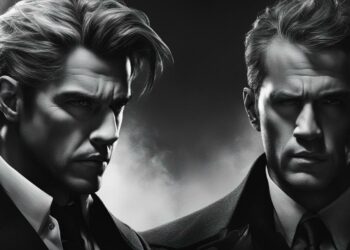
Protagonist vs Antagonist: Story Roles Explained

Novel vs Book: Key Differences Explained

Exploring Situational Archetypes in Literature

Authority Content: Boost Your Brand’s Trust

Master Seductive Storytelling Skills for Impact

Flying Straight: The Meaning of 'As the Crow Flies
Leave a reply cancel reply.
Your email address will not be published. Required fields are marked *
Save my name, email, and website in this browser for the next time I comment.
- AI Writing (7)
- Angel Numbers (1)
- Publishing (3)
- Spirituality (1)
- Writing Jobs (6)
- Writing Prompts (4)
- Writing Tips (42)
- Writing Tools (3)

So Mote It Be: A deeper look into the meaning and usage of this phrase.

How to Write in 3rd Person About Yourself

Conversational Style Writing Examples
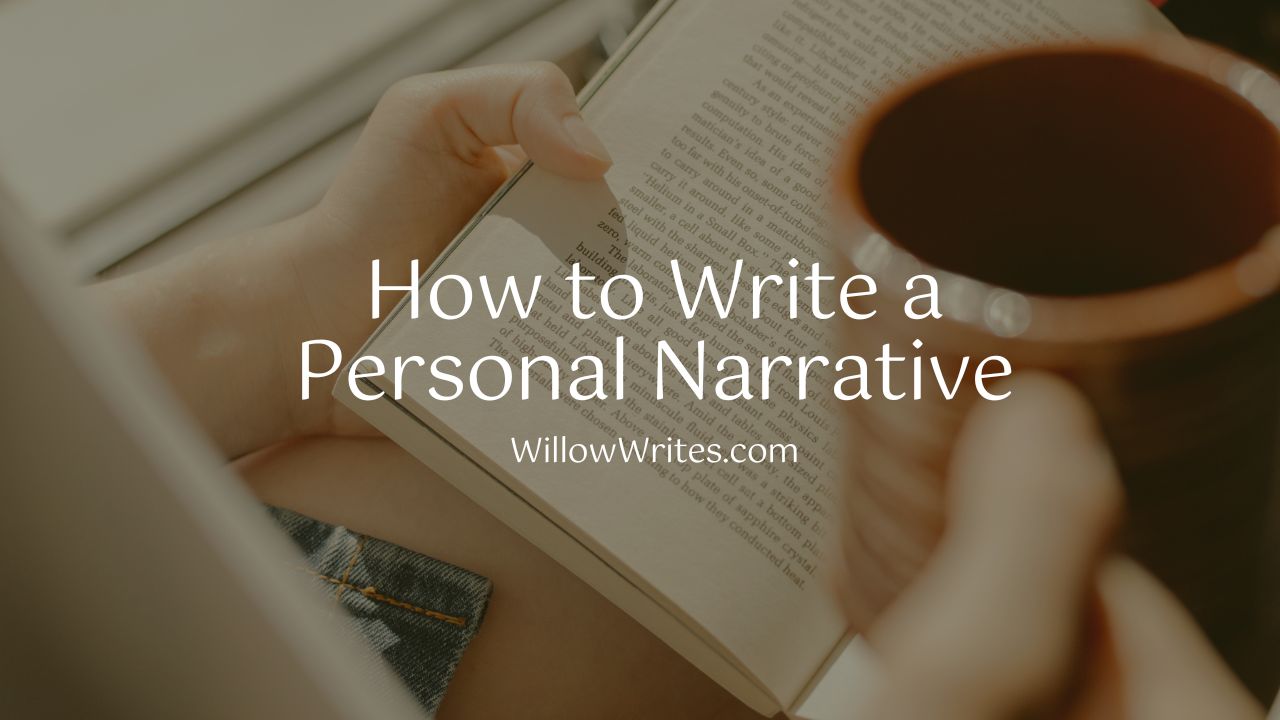
How to Write a Personal Narrative [in 10 Easy Steps]
- Writing Tips
- The Inventory
How To Create A Killer Opening For Your Science Fiction Short Story
A short story is like a chess game: The opening is a huge part of whether you win or lose. The first sentence of a short story doesn't just "hook" readers, it also sets the tone and launches the plot. So here are the seven major types of short story openings, and how to pick one.
Sure, the opening sentences are important in novels , too. A strong beginning, in a novel, can help provide momentum that will carry the reader all the way to the last page, sometimes in one sitting. But short stories are different: the first sentence, or the first paragraph, often hangs over the whole rest of the story. Many short stories are really about one idea, or one situation, and that's what the opening sentences establish.
Or fail to establish, sometimes.
There are many great ways to start a short story. But not every type of opening is right for every story. Here are seven types of short story opening, and how to decide which one is right for you.
Note: This article is a slight departure from our usual writing advice columns . Instead of using made-up examples of crappy writing, I'm actually using real quotes from real stories, because we need examples of good writing this time around. Also, I realized that there's no way to categorize every short story opening accurately, and there are definitely some great openings that don't fit into any of these seven categories.
1) Scene-setting.
This is possibly the most common type of short story opening. The action doesn't really begin in the opening paragraph, instead we join the characters in a pause before the action, and this allows us to get to know the characters and the setting first. This can be a workmanlike "Smith yawned and looked around his space capsule" thing. Or it can be a gorgeous literary flourish, that sets the mood and creates a strong image in the reader's mind at the start of the story. Often, the action begins in the second or third paragraph.
Why you might use this one: If the setting is a huge part of your story, or if a big part of your goal is to establish a powerful mood. Or if your story isn't really about plot, but about a particular feeling.
Why you might not: Sometimes you want your story to get going a bit faster. Sometimes the ideas, or the plot, are more important than the setting. And sometimes you find that you can do scene-setting in the second or third paragraph, and it'll have more impact.
"Jarvis stretched himself as luxuriously as he could in the cramped general quarter of the Ares. 'Air you can breathe!' he exulted. 'It feels as thick as soup after the thin stuff out there!'" — Stanley G. Weinbaum, "A Martian Odyssey"
"Bianca Nazario stands at the end of the world. The firmament above is as blue as the summer skies of her childhood, mirrored in the waters of la caldera ; but where the skies she remembers were bounded by mountains, here on Sky there is no horizon, only a line of white cloud." — David Moles, "Finisterra"
"The swell was gently lifting and lowering the boat. My breathing grew slower, falling into step with the creaking of the hull, until I could no longer tell the difference between the faint rhythmic motion of the cabin and the sensation of filling and emptying my lungs." — Greg Egan, "Oceanic"
"The balloon of a Phoenix-class airship is better than any view from its cabin windows; half a mile of silk pulled taut across three hundred metal ribs and a hundred gleaming spines is a beautiful thing." — Genevieve Valentine, "The Zeppelin Conductors' Society Annual Gentlemen's Ball"
2) The conflict establisher.
There's absolutely nothing wrong with an opening sentence that shows the exact moment when your characters knew they were in trouble. The classic "we were halfway to Mars when our fuel tank blew up" beginning. It creates a nice sense of urgency, and then you can go back and fill in the details once people are on board with the fact that exciting stuff is happening.
Why you might use this one: If you want to start your story with a bang.
Why you might not: If your bang falls flat, then your story is lost. This is actually a high-risk opening. It's also easy to overuse the "starting with a bang" style. Sometimes you want to be a bit more subtle, and draw your readers in slowly before dropping the boom on them. Your readers may expect the rest of your story to keep that propulsive feeling, and to revolve around the incident you describe at the start, so you have a lot to live up to.
"When it starts we're in a hotel room, the two of us curled up on a double bed. It's a two-star kind of place: cracks in the walls, curtains covered in faded daisies, the clinging smell of camphor attaching itself after the first few minutes of your stay. The television stutters as we flick through the channels, colours blending together and rendering the devastation a fuzzy blue or green. Still, we see it happen: the great machines of the merfolk coming up over the shore, rampaging through the city with devastating effect." — Peter M. Ball, "On the Destruction of Copenhagen by the War-Machines of the Merfolk."
"Hala is running for class when her cell phone rings. She slows to take it from her pocket, glances at the screen: UNKNOWN CALLER." — Kij Johnson, "Names for Water"
"They left Abal in a hurry, after Ozma's mother killed the constable." — Kelly Link, "The Constable of Abal"
"I slammed the door in the child's face, a horrific scream trapped in my throat." — Nnedi Okorafor, "On the Road"
"When Denis died, he found himself in another place. Dead people came at him with party hats and presents." — Rachel Swirsky, "Fields of Gold"
3) The mystifier
At first, it doesn't entirely make sense, because it refers to stuff we don't know about yet. Or it throws us into a situation without giving us all the pieces right away.
Why you might use this one: There's nothing more intriguing than a mysterious situation, where you're thrown in the deep end. People are willing to hang with you for quite a while to find out what this is all about.
Why you might not: The mystery has to be really cool, for this to work. Also, you're asking your readers to work pretty hard — they have to ponder the clues you're throwing at them, but then they also have to get into your world and your characters. I feel like the "thrown in the deep end" opening is the riskiest type, because it's the kind that asks the most of the reader. You have to be pretty skillful, to unravel your cryptic opening at the same time as you're introducing the world and the characters, and it's a bit of a high-wire act.
Examples: :
"I still have the dollar bill. It's in my box at the bank, and I think that's where it will stay. I simply won't destroy it, but I can think of nobody to whom I'd be willing to show it — certainly nobody at the college, my History Department colleagues least of all. Merely to tell the story would brand me irredeemably as a crackpot, but crackpots are tolerated, even on college faculties. It's only when they begin producing physical evidence that they get themselves actively resented." — H. Beam Piper, "Crossroads of Destiny".
"'They don't look very dangerous,' Xiao Ling Yun said to the aide. Ling Yun wished she understood what Phoenix Command wanted from her. Not that she minded the excuse to take a break from the composition for two flutes and hammered dulcimer that had been stymieing her for the past two weeks." — Yoon Ha Lee, "The Unstrung Zither."
"Mariska shivered when she realized that her room had been tapping at the dreamfeed for several minutes. 'The Earth is up,' it murmured in its gentle singing accent. 'Daddy Al is up, and I am always up. Now Mariska gets up.'" — James Patrick Kelly, "Going Deep"
"I remember the night I became a goddess." — Ian McDonald, "The Little Goddess"
"Memory is a strange thing. I haven't changed my sex in eighty three years." — Vandana Singh, "Oblivion: A Journey"
"There is a magic shore where children used to beach their coracles every night." — Sarah Rees Brennan, "The Spy Who Never Grew Up"
4) The Third Person Narrator Speaks to You
If your story has an especially chatty third-person narrator, you can start off by having the narrator explain something directly to the reader, often in the second person. Perhaps the narrator can tell us some useful information, that helps us to get intrigued about your story. This could be funny, a la Hitchhiker's Guide to the Galaxy . Or it could be just a stark explanation of something that the reader isn't going to get any other way — I use a very stripped-down version of it in my story "Six Months, Three Days." Either way, it's clearly the narrator talking to you, the reader, and imparting stuff the narrator knows or understands.
Why you might use this one: If your story has a chatty narrator, then addressing the reader directly creates a nice warm tone. It allows you to feed the reader a ton of information, without necessarily feeling too much like an infodump. If you're actually a funny writer, you can make this sort of thing funny.
Why you might not: It has to be entertaining, or it will feel like a bit of an infodump. You have to be willing to sustain that level of narratorial chattiness, at least on and off, for the rest of the story. Some readers get freaked out about being addressed directly.
"To get to Earth from the edge of the solar system, depending on the time of year and the position of the planets, you need to pass through at least Poland, Prussia, and Turkey, and you'd probably get stamps in your passport from a few of the other great powers. Then as you get closer to the world, you arrive at a point, in the continually shifting carriage space over the countries, where this complexity has to give way or fail. And so you arrive in the blissful lubrication of neutral orbital territory." — Paul Cornell, "One of Our Bastards is Missing"
"Being assigned to The Head for eight hours was the worst security shift you could pull at the museum." — Elizabeth Hand, "The Maiden Flight of McCauley's Bellerophon "
5) The First Person Narrator Speaks
This is sort of similar to the previous one, except that instead of the third person narrator explaining, it's the first-person narrator saying something reflective, that almost makes the story feel like a personal essay. The first-person narrator muses about some ideas, or about his/her feelings. When it's done right, this opening can create a more intimate feeling, as well as putting us right into your main character's brain — rather than just showing us the outside world through your character's eyes, the way a typical first-person opening does. This can also be the start of a rant, or an extended monologue, by the first-person narrator.
Why you might use this one: If you're writing in the first person anyway, why not have the first-person narrator soliloquize a bit? This can pack quite an emotional punch, or help the reader to bond with your narrator right off the bat. Plus it blurs the line between fiction and essay, which is always a plus.
Why you might not: Sometimes we bond more with your first person narrator if he/she gives us some scene-setting or tells us something about what he/she was doing at the start of the story, instead. That way, we're not just getting to know your character, we're getting to know him/her in the world . Plus it really depends how philosophical you want to get.
"There is a principle in nature I don't think anyone has pointed out before. Each hour, a myriad of trillions of little live things — bacteria, microbes, "animalcules" — are born and die, not counting for much except in the bulk of their existence and the accumulation of their tiny effects. They do not perceive deeply. They do not suffer much. A hundred billion, dying, would not begin to have the same importance as a single human death." — Greg Bear, "Blood Music."
"You sent us out here. We do this for you : spin your webs and build your magic gateways, thread the needle's eye at sixty thousand kilometers a second. We never stop, never even dare to slow down, lest the light of your coming turn us to plasma. All so you can step from star to star without dirtying your feet in these endless, empty wastes between . Is it really to much to ask, that you might talk to us now and then?" — Peter Watts, "The Island"
"I remember the future. The future was glorious once. It was filled with sleek silver spaceships, lunar colonies, and galactic empires. The horizon seemed within reach; we could almost grasp the stars if we would but try." — Michael A. Burstein, "I Remember the Future"
"You ask me if I can forgive myself? I can forgive myself for many things." — Neil Gaiman, "The Truth is a Cave in the Black Mountains..."
"I wanted to be washed up on a foreign shore, but this can't be it. I wanted, first, for a long, long beach, so I could lie there and recover for a while. After all, I'd be tired." — Carol Emshwiller, "All washed Up While Looking for a Better World."
6) The Quotation
In journalism, there's a bit of a taboo on starting an article with a quote. But that doesn't really apply to fiction, and people sometimes do start a story with a quote, hanging on the first line by itself. If the quote is intriguing enough, it compels you to find out who's speaking and what they're talking about. I'd also lump in the type of story opening where you quote from a document or a transcript of an interview with someone.
Why you might use this one: It's like the "thrown in the deep end" opening crossed with the mystery opening, except that you're also giving us someone's voice at the same time. You're getting the raw personality of the speaker, as well as getting tossed into the middle of the story right away. You can convey stuff in a line of dialogue that it would take a paragraph or two of narration to get across.
Why you might not: It can be a bit clunky, especially if the quote is hanging there by itself. It has all the disadvantages of the "mystery" and "deep end" openings. The single line of dialogue needs to be ultra-sharp, or you'll fall flat.
"'Who makes the roads roll?'" — Robert A. Heinlein, "The Roads Must Roll".
"'You're a nasty little — human being,' the newly formed Z-Type robot shrilled peevishly." — Philip K. Dick, "James P. Crow"
"'Cool. It's a freak show,' says Aidan. 'I didn't know they had those anymore.'" — Diana Peterfreund, "The Care and Feeding of Your Baby Killer Unicorn"
"Bill," Kihn says, his voice all too clear, that unreal clarity of early AM longdistance commsat voices speaking from the void or maybe Cleveland, "I've seen one." — William Gibson, "Hippie Hat Brain Parasite"
7) The Puzzler
Why choose between establishing conflict on the one hand, and mystifying your reader on the other? You can do both — with an opening that sets up the conflict of your story succinctly, while making your reader guess at what the Hell is going on.
Why you might use this one: This is the trickiest form of short-story opening to pull off. But if you can hit your reader with a concentrated blast of strangeness and verbal pyrotechnics, then you're already way ahead of the game. When it works, it's the best kind of story opening, for my money. You can totally mess with the reader's head, in a good way.
Why you might not: When this type of opening falls flat, it really falls flat. You have to be very confident of your ability to deliver quality WTF-age without losing the reader.
"Diving back into the universe (now that the universe is a finished object, boxed and ribboned from bang to bounce), Carlotta calculates ever-finer loci on the frozen coordinates of spacetime until at last she reaches a trailer park outside the town of Comanche Drop, Arizona. Bodiless, no more than a breath of imprecision in the Feynman geography of certain virtual particles, thus powerless to affect the material world, she passes unimpeded through a sheet-aluminum wall and hovers over a mattress on which a young woman sleeps uneasily." — Robert Charles Wilson, "Utrisque Cosmi"
"It has long been said that air (which others call argon) is the source of life. This is not in fact the case, and I engrave these words to describe how I came to understand the true source of life and, as a corollary, the means by which life will one day end." — Ted Chiang, "Exhalation"
"He found the girl crouched in a ditch by the side of the deserted road, using a jagged rock to try to sever the muscled cords that connected her heart to her body." — Susan Palwick, "Sorrel's Heart"
"JSN reached up to the row of glowing buttons across his forehead and changed his mind with an audible click." — Lewis Shiner, "The Gene Drain"
"There were two mutant girls in the town: one had a hand made of fire and the other one had a hand made of ice." — Aimee Bender, "The Healer"
An earlier version of this article appeared in 2011. Magazine cover images via MickyThePixel and Horzel on Flickr.
8 story hook examples (how to grab attention)
A ‘hook’ in a story promises intrigue, entertainment and answers to the questions it raises. Far from the trickery of a bait and switch, a hook gives a true sense of what your reader can expect of your story’s pleasures. Explore great story hook examples and what they teach us about starting strong:
- Post author By Jordan
- 20 Comments on 8 story hook examples (how to grab attention)

A literary ‘hook’ in a story promises intrigue, entertainment and answers to the questions it raises. Far from the trickery of a bait and switch, a hook gives a true sense of what your reader can expect of your story’s pleasures. Explore great story hook examples and what they teach us about starting strong
Story hook examples
A literary ‘hook’ in a story promises intrigue, entertainment and answers to the questions it raises. Far from the trickery of a bait and switch, a hook gives a true sense of what your reader can expect of your story’s pleasures. A brilliant hook also also grabs a reader’s attention from the get go, to encourage them to read on. A hook can also show a strong voice from the start. Explore great story hook examples and what they teach us about starting strong. Here are eight types of hooks.
These hooks in narrative writing a hook should: Raise curiosity, create questions and promise eventful action with them.
1. All the Light We Cannot See by Anthony Doerr
At dusk they pour from the sky. They blow across the ramparts, turn cartwheels over rooftops, flutter into the ravines between houses. Entire streets swirl with them, flashing white against the cobbles. Urgent message to the inhabitants of this town , they say. Depart immediately to open country . Anthony Doerr, All the Light We Cannot See (2014), p. 3.
2. Anil’s Ghost by Michael Ondaatje
When the team reached the site at five-thirty in the morning, one or two family members would be waiting for them. And they would be present all day while Anil and the others worked, never leaving; they spelled each other so someone always stayed, as if to ensure that the evidence would not be lost again . Michael Ondaatje, Anil’s Ghost (2000), p. 5.
3. Let The Great World Spin by Colum McCann
Those who saw him hushed. On Church Street. Liberty. Cortlandt. West Street. Fulton. Vesey. It was a silence that heard itself, awful and beautiful. Some thought at first that it must have been a trick of the light, something to do with the weather, an accident of shadowfall. Others figured it might be the perfect city joke – stand around and point upward, until people gathered, tilted their heads… Colum McCann, Let The Great World Spin (2009), p. 3.
4. Alias Grace by Margaret Atwood
It’s 1851. I’ll be twenty-four years old next birthday. I’ve been shut up in here since the age of sixteen. I am a model prisoner, and give no trouble. That’s what the Governor’s wife says, I have overheard her saying it. I’m skilled at overhearing. If I am good enough and quiet enough, perhaps after all they will let me go; but it’s not easy being quiet and good… Margaret Atwood, Alias Grace (1996), p. 5
5. The Invisible Life of Addie LaRue by V.E. Schwab
Villon-sur-sarthe, France, July 29, 1714 A girl is running for her life. The summer air burns at her back, but there are no torches, no angry mobs, only the distant lanterns of the wedding party, the reddish glow of the sun as it breaks against the horizon, cracks and spills across the hills, and the girl runs, skirts tangling in the grass as she surges toward the woods, trying to beat the dying light. V.E. Schwab, The Invisible Life of Addie LaRue (2020), p. 3.
6. On Earth We’re Briefly Gorgeous by Ocean Vuong
Let me begin again. Dear ma, I am writing to reach you-even if each word I put down is one word further from where you are. I am writing to go back to the time, at the rest stop in Virginia, when you stared, horror-struck, at the taxidermy buck hung over the soda machine by the restrooms, its antlers shadowing your face. Ocean Vuong, On Earth We’re Briefly Gorgeous (2019), p. 3
7. God Help the Child by Toni Morrison
It’s not my fault. So you can’t blame me. I didn’t do it and have no idea how it happened. It didn’t take more than an hour after they pulled her out from between my legs to realize something was wrong. Really wrong. Toni Morrison, God Help the Child (2015), p. 3
8. Where the Crawdads Sing by Delia Owens
On the morning of October 30, 1969, the body of Chase Andrews lay in the swamp, which would have absorbed it silently, routinely. Hiding it for good. A swamp knows about death, and doesn’t necessarily define it as tragedy, certainly not a sin. Delia Owens, Where the Crawdads Sing (2018), p. 6
The examples of hooks from novels above illustrate what effective hooks do:
How to write good hooks for stories:
Great story hooks do one or more of the following. They:
- Build urgency
- Prompt pressing questions
- Involve intriguing contexts
- Introduce striking voices
- Show a glimpse of a vivid world
- Imply past or future conflicts
- Build narrative tension
- Share relevant backstory
- Set the story’s tone
Let’s explore each of these ideas in brief with reference to the story hook examples given above.
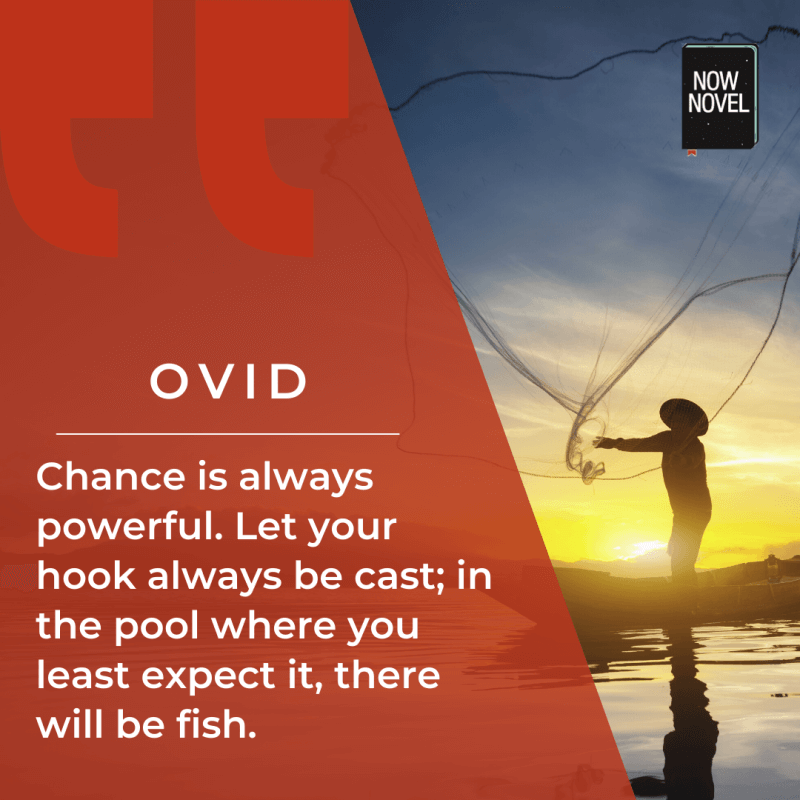
Ways to write hooks:
1. build urgency.
A girl running for her life; a dead body lying in a swamp; a crowd gathering to point into the sky.
Each of these actions or images create a kind of urgency that hooks a reader into the story.
The reader wants to know why a girl is running for her life. We need to find out who murdered Chase Andrews. We want to know what the crowds are staring up at in Let The Great World Spin (an urban tightrope walker).
To build urgency in your story’s hook, you could:
- Describe an action with a time limit: For example, having ten minutes to get to a crucial interview
- Share actions with high stakes: A girl running for her life; a tightrope walker between NY skyscrapers
- Imply a situation requiring urgent investigation: A murder, a mystery – a vital piece of missing information for one or more characters
What needs to happen at the start of your story (or scene, or chapter) that is of utmost priority for your characters?
Watch this brief video on how to write hooks and keep reading for more ideas:
Story Hook Examples: How to grab attention
2. Prompt pressing questions
Good story openings include meandering beginnings that take time getting to the point (this is especially common in literary novels that do not necessarily require the brisk pace of a thriller).
Yet even if your story opening is gentler, more tone-and-mood-setting, a question hook, rather than full-tilt action, how can you prompt pressing questions, creating elements of a hook?
In the opening hook to Anil’s Ghost , for example, we wonder what evidence is being sought that could be ‘lost again’.
A good story makes us ask ‘who’, ‘what’, ‘why’, ‘where’ and ‘when’ at several junctures. The hook is a crucial place to set up these questions. Tweet This
For the above story hook examples, readers may have questions such as:
- What are people gathering to point at? ( Let The Great World Spin )
- What or who is the girl running from? (The Invisible Life of Addie LaRue )
- Why does the narrator think something is gravely wrong with her newborn (God Help the Child )
- When will the prisoner be released, if ever? ( Alias Grace )
What thought-provoking questions does your hook give your reader? You can also use a rhetorical question as a hook. Or, use a statistic hook, quoting facts and figures to grip a reader’s attention.
Make a Strong Start to your Book
Join Kickstart your Novel and get professional feedback on your first three chapters and story synopsis, plus workbooks and videos.

3. Involve intriguing contexts
The best story hooks don’t only grab our attention. They tell us (often in a highly compressed way) a lot about the world we’re about to enter. Why we’re in for a good story .
We begin to understand aspects of con text such as place , era, scenario and situation. That a wartime city is about to be evacuated, for example ( All the Light We Cannot See ). Or that there is a wedding party, somewhere in the periphery, that may be relevant to a character’s current situation ( The Invisible Life of Addie LaRue ).
What makes context intriguing? Elements such as:
- Implied recent, imminent or eventual conflicts
- Interesting, compelling relationships (e.g. the man writing to his mother at the start of On Earth We’re Briefly Gorgeous )
- Interesting facts (for example, Delia Owens’ description of the swamp’s peculiarities as a biome opening Where the Crawdads Sing )
How can you involve your characters’ contexts at the start of a novel, chapter or scene so that your reader pricks up their ears?
4. Introduce striking voices
We tend to think of hooks strictly in terms of ‘Plot’ with a capital ‘P’. Yet a hook may be something as simple as teasing the reader with introduction to an interesting character (or multiple characters).
For example, in the opening to Ocean Vuong’s On Earth We’re Briefly Gorgeous (written as a Vietnamese-American man’s letters to his abusive mother), there is an immediate, intimate sense of a connection between two characters. A connection that has its own complex history filled with vignettes such as the rest stop scene the narrator describes.
We have an immediate sense of voice through the wording of the man’s letter.
A hook thus is not only made up of the pressing or intriguing questions it inspires. It can also be something as simply compelling as a lone, specific voice reaching out to us from the written page.
You could also consider using a quotation hook. This, as the name implies, means using a quote from a notable or famous person. This will serve introduce the topic of your story, or lead into it. A quote hook will can be effective in reeling your reader in from the word go.
What makes your viewpoint narrator’s voice compelling from the first line? What fragment of their experiences, beliefs, fears or desires may invite your reader into their narrative?
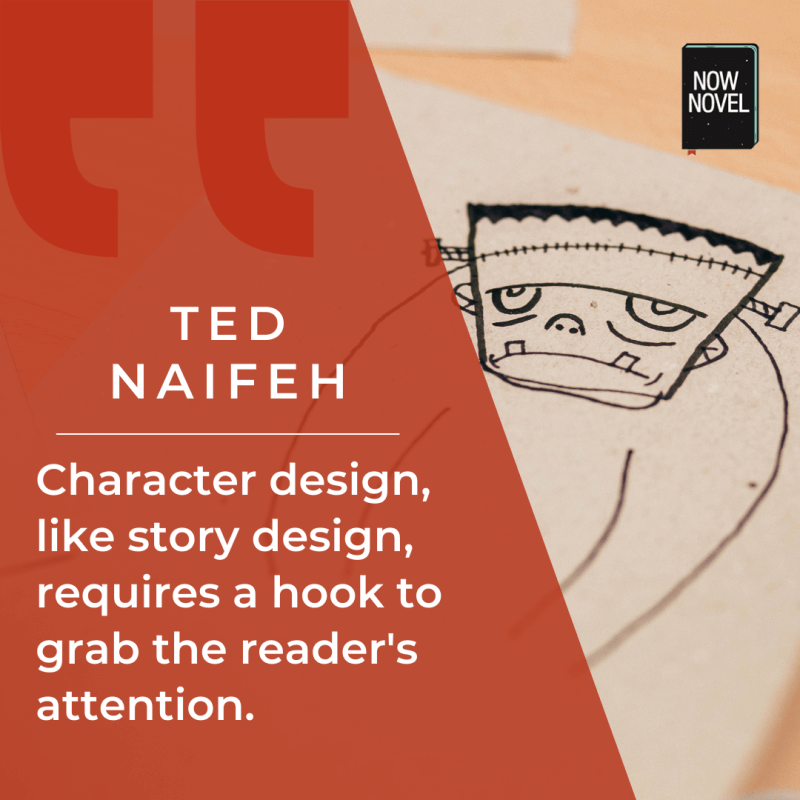
5. Show a glimpse of a vivid world
Many novels start with story hooks that describe and define place, a descriptive hook. Delia Owens’ swamp facts at the beginning of Where the Crawdads Sing , for example. Or Ondaatje’s description of a forensic archaeological site in Sri Lanka.
To hook readers in, you could show a glimpse of what is extraordinary about this place. The dead body in the swamp with its already remarkable properties. The strange hunting trophy on the rest stop wall that fills the narrator’s mother with horror in On Earth We’re Briefly Gorgeous . These are all examples of vivid descriptions of scenes that create a picture in a reader’s mind.
What detail is typical of your story’s era, time or primary location? Or else, your hook could begin with something out-of-the-ordinary – the tightrope walker between towers of Let The Great World Spin , for example.
6. Imply past or future conflicts
Stories are about change, at root. Nothing is an agent of change like conflict (as the evacuation order leaflets at the start of All the Light We Cannot See show).
As an example, on the first page of God Help the Child by Toni Morrison, we wonder what is so wrong about the narrator’s newborn.
We quickly learn that her worry is driven by colorism, a by-product of racism. The narrator’s child has been born ‘midnight black, Sudanese black’ (p. 3), the mother’s surprise being because she has lighter skin tone herself.
From the first page, this story hook example suggests conflicts at the heart of racism; its comparative prejudices and violences. We wonder how others will treat this child due to a mother’s concern, thus her anxious focus creates narrative suspense.
What past or anticipated conflicts might feature strongly in the opening pages of your story? Find ways to build a hook around their suspense.
7. Build narrative tension
The best story hook examples teach us how to build narrative tension from the start. It may be something as simple as Addie LaRue running for her life from the wedding party. Or else the hush of a crowd craning their necks at a terrifying, aerial spectacle.
To build narrative tension in your hook, you could use just such an attention-grabbing hook:
- Describe high-stakes events (e.g. a man walking a tightrope between skyscrapers)
- Imply an immediate struggle or obstacle (for example, the implied hurdles of being ‘other’ in the opening to God Help the Child )
- Suggest a situation whose outcome could go either way (for example, whether the protagonist will be released from prison or not in Alias Grace )
8. Share relevant backstory
Beginning with a large chunk of backstory that is irrelevant to the main events of your story is not a good way to begin. Your reader may quickly become bored, as writing coach Romy Sommer explains:
An issue I see with a lot of beginner writers is they tend to write the backstory as the story itself. So the first few chapters will be, ‘This thing happened, and then this thing happened…’ Understanding Character Arcs: How to write characters, preview on YouTube
Good story hook examples instead of giving all the backstory tell the reader backstory that is relevant to the current situation.
For example, the petty crime that lead a character to be currently incarcerated. Or the evacuation order that lead to your character’s current hurrying from their home city. This type of hook is useful for revealing just as much as you want to in a few simple sentences.
Relevant backstory tells us just enough to give the present scene context, history, and fuller narrative purpose .
9. Set the story’s tone
Many of the story hook examples listed above set the tone for the story. Addie LaRue’s bid for freedom, to not ‘just’ be anybody’s wife, for example. Or Little Dog’s difficult, complex relationship with his mother in On Earth We’re Briefly Gorgeous .
How can your story’s hook hint at your story’s primary subjects, themes and symbols?
Writing exercise: ‘Toning’ your hook
Find three adjectives for a hook sentence you’d like to write. For example:
- Tense, unsettling, eerie
- Lyrical, languid, mysterious
- Gritty, fast, loud
- Silly, quirky, unexpected
Write a sentence to a paragraph while thinking about your three adjectives. How many questions out of the 5 (‘who’, ‘what’, ‘why’, ‘where’ and ‘when’) can you make your reader ask?
Start finessing your story idea now so you have the foundation for a brilliant hook.
Related Posts:
- Grabbing attention with scene beginnings: 5 tips
- 10 dialogue tips to hook readers
- How to start a novel: Hook readers from page one
- Tags how to write a hook , story openings
Jordan is a writer, editor, community manager and product developer. He received his BA Honours in English Literature and his undergraduate in English Literature and Music from the University of Cape Town.
20 replies on “8 story hook examples (how to grab attention)”
Another excellent and practical article, Jordan. Thank you!
Thank you for the kind feedback, MJ! Have a lovely week.
Hi Jordan, so glad I stumbled on this article while researching Hook / Concept! Excellent information and I’ve printed it off (for an anti-clutter frugal printer, that is quite high praise lol). Now off to read your other articles. Thanks!!
Hi Regan, thank you so much for your kind feedback and taking the time to share it. I am only happy to contribute to print-clutter 🙂 It’s a pleasure, have a good week.
Thanks Jordon you help me a lot I am writing a non fiction article I needed to find out about a good hook how to try to hook reader in the first sentence I got it thanks to your explanations if you ever teach writing lessons on how write short stories for children I ready to enlist thanks for your help
Hi Scooter, it’s a pleasure. Penguin has a useful article by Alan Durant on how to write a children’s picture book here that you may find interesting. Happy holidays!
Thank you, Jordan. I found this very helpful! People so often talk about a ‘hook’ and it’s interesting to really break it down to see what makes it work.
Hi Rebecca, it’s a pleasure. I’m glad to hear that! Thank you for reading our blog and have fun working on your story’s hook 🙂
Very helpful. Thanks. Although, I noticed that you use ‘their’ to refer to the woman giving birth, but ‘him’ to the person writing to the mother, whose gender was not revealed in the sentence. sigh. why do we need to erase women? Other than that small observation, very useful info.
Thank you for your feedback and my apologies, definitely no erasure intended. I think the spur-of-the-moment rationale was probably to use the neutral ‘their’ due to the ungendered reference in the immediate sentence (‘the narrator’). Yet since the narrator in question is indeed a woman, I’ve changed it to ‘her’. I’m glad you found this article useful, thank you for reading and sharing.
If you had to pick one story hook, which would you pick, having something blow up or a tiny man shrinking?
Hi Alex, thank you for your question about story hooks. Explosions are fairly standard for action stories, but depending on the context it could be a safe in medias res starting point. But if a man is tiny already, why would he be shrinking? Thanks for reading our blog.
Great article. It helped me a lot with my writing. thanks
So glad to hear that, Sule. It’s a pleasure, thank you for your feedback and for reading our blog.
Excellent examples and a well written article.
Hi Debra, thank you for your kind feedback. I’m glad you enjoyed this article.
I hope this doesn’t annoy you, I’m compelled to rearrange wording until its more clear to me of what’s being said.
We tend to think of hooks strictly in terms of ‘Plot’ with a capital ‘P’. Yet a hook is just as often made from an inviting ‘who’—or compellingly repulsive anti-hero.
Hi Meka, not at all, thank you. I appreciate all help from our readers in making my articles better, especially when feedback is constructive like this. I’ve rewritten that sentence for clarity (I’m always updating articles here thanks to readers’ helpful suggestions). Thanks for sharing.
I’ve struggled for ages to understand hooks and inciting incidents! I’m autistic, and despite having a great logical brain, sometimes it takes the right kind of teaching by breaking down a concept into steps, then “steplets” lmao. I’ve been writing for years, but never actually LEARNED how, if you know what I mean. Now I want to write a proper fanfiction that’s not for kids. I want it to be as scary and spine tingling as possible without being heavy handed. This article helps a ton!!! I’m definitely gonna check out any others and watch the linked videos! Thank you very much for the help! ^–^ ♡♡♡
Thanks Rose. That’s wonderful to hear, so pleased that this is so helpful. Enjoy the videos and the rest of our varied blog posts.
Leave a Reply Cancel reply
Your email address will not be published. Required fields are marked *
Pin It on Pinterest
How to Write a Hook: 6 Tips to Use Narrative Hooks to Surprise Readers
by Joslyn Chase | 0 comments
In real life, some folks love surprises and others hate them. But one thing is certain—in fiction, you need them to write a book readers can't put down. One way to deliver is through a narrative hook. But what is a narrative hook and how can you write a hook to captivate readers?

The purpose of a narrative hook is to pull your reader through to the next page, paragraph, or sentence where you’ll have planted another hook to keep him going.
In this article, we’ll answer what is a narrative hook and look at how to write hooks that present surprising situations or something unexpected to rivet reader attention.
What is a hook?
A narrative hook is the element of your story that grabs the attention of your reader and makes them want to keep reading. It’s often an unexpected situation or character, but it can also be a surprise twist or a cliffhanger.
Think of it like a fishing line with a tantalizing bait—once you’ve got your reader hooked, they won’t be able to help themselves but keep reading.
Why do you need a strong hook?
In her fabulous book Wired for Story , Lisa Cron tells a personal story about a manuscript she read that was boring and difficult to get through but had an exciting twist at the end. The writer was afraid he’d give away the surprise and wanted to hide all traces of the ending until it was time to spring it.
The trouble was, there was nothing to pull readers through to the thrilling conclusion. As writers, we know when we have something sensational up our sleeve for our story idea.
But if we don’t let readers know about it, they won’t keep turning pages to find out what it is.
So how can we do that and still surprise them?
Instead of keeping readers in the dark, think misdirection. Like an illusionist who draws attention to one hand while concealing or maneuvering with the other. And using hooks is one way of drawing that attention.

Choose the type of hook
You can craft an effective hook that is a surprise to the character, a surprise to the reader, or both.
When the reader knows more than the character does, it creates dramatic irony, a delicious brand of suspense. As readers, we look forward to the revelation that will surprise the character.
Recently, I came across an example of a fun hook that was a surprise to me, as reader, but didn’t faze the character. In Lee Child’s short story James Penney’s New Identity, the title character is on the run from authorities after setting a fire that raged out of control.
Toward the end of the story, he is picked up by a motorist who introduces himself as Jack Reacher! Suddenly my attention is riveted by surprise. I know the character Jack, but didn’t expect to see him here. Why is he in this story? How is he involved in the whole mess?
Using a character from another book created a hook that kept me reading.
Use the right bait
Remember, reader expectation is key. Always write to your core audience and bait your hook appropriately.
For instance, I write mysteries and thrillers so my target readers will expect elements of danger, death, crime, sorrow, and vengeance to come into play. This bait won’t necessarily attract a reader of sweet romance or hard science fiction. The best way to know what your readers expect is to read a lot of books in the genre you plan to write in.
And don’t forget, you should be threading multiple hooks through the scenes and sentences of your story, according to the taste and expectations of your ideal reader, as I discussed in my article on writing danger hooks .
6 Hook Writing Tips to Surprise the Reader
Now that you know the surprise can be for either the character, the reader, or both and that you should use the right bait, let’s take a look at six techniques for how to write a hook that surprises your reader.
1. Question
Remember how we looked at baiting a story hook with questions in an earlier article? When crafting a surprising situation hook, it has to be more than an ordinary question. It has to be—what the !?!?!
Essentially, you're planting questions that the reader wants to have answered so much that they turn the page.
2. Contrast
Your narrative leads your reader’s expectations. Instead of showing them what they anticipate seeing, reveal something entirely unexpected instead. This is that magician’s trick of misdirection we talked about earlier.
Just remember to stay true to your story conflict and story goal. Don’t tack something on just for effect—it must grow organically from the seeds of your entire story.
To write a contrast hook, write out what the reader expects and then play with the exact opposite. How can you incorporate that contrast?
3. Work up to the punchline
If you read my article on using humor in your writing , you’ll know that surprise acts in much the same way. Start out with a sentence that delivers the “normal,” layering in detail and leading your reader down a path to the punchline where you deliver the surprise.
Using a suspensive sentence structure (also known as the periodic) is great for this. This type of sentence saves the main clause for last, keeping your reader guessing as to where it will all end. It’s also an example of the classic setup and payoff.
4. Don’t bury the hook
In order to be effective, the hook should stand alone or be placed either at the beginning of the sentence/paragraph or at the end. Placement is important. Burying it in the middle will blunt the hook and your reader will miss it.
5. Alter a cliché
As writers, we’re taught to avoid clichés . But you can actually make a worn-out clause work in your favor if you use it to set up reader expectation and then twist it with a surprise.
6. Use a surprise hook at the end of a chapter
Most readers pick up a book at bedtime, planning to get a chapter in before turning out the light. If you throw in a surprise hook as your reader is reaching for the light switch, you may be able to pull them into the next chapter, where you’ll have a series of new hooks waiting.
Let’s take a look at some story hook examples
“There was a desert wind blowing that night. It was one of those hot dry Santa Anas that come down through the mountain passes and curl your hair and make your nerves jump and your skin itch. On nights like that every booze party ends in a fight. Meek little wives feel the edge of the carving knife and study their husbands’ necks. Anything can happen. You can even get a full glass of beer at a cocktail lounge.” Red Wind , Raymond Chandler
This is one of my all-time favorite story openers, and it’s a good example of leading readers down a path, setting up expectations, and then throwing a curve right at the end. Here’s another in that same vein:
“High, high above the North Pole, on the first day of 1969, two professors of English Literature approached each other at a combined velocity of 1200 miles per hour.” Changing Places , David Lodge
And look at these beauties:
“Every summer Lin Kong returned to Goose Village to divorce his wife, Shuyu.” Waiting , Ha Jin
“I write this sitting in the kitchen sink.” I Capture the Castle , Dodie Smith
“As Gregor Samsa awoke one morning from uneasy dreams he found himself transformed in his bed into an enormous insect.” The Metamorphosis , Franz Kafka
These three are superb examples of sharp, clear standalone hooks that pose such a strong and compelling question that it constitutes surprise.
How to craft a surprise story hook
Remember, you don’t have to whip these out during your first draft. The revision process is the perfect time to look for opportunities to strengthen your writing with hooks. Let’s pretend this is my first draft:
A shadow loomed out of the darkness and Rick hit the brake, finding himself surrounded by llamas.
This is the end of chapter 58, and occurs after a drive through a distressed forest area near Seattle where Rick earlier had a near-miss with a deer in the road. So, while the herd of llamas is certainly an unexpected event, it lacks the punch it might have with some revision. Let me try again.
Another deer loomed out of the darkness, or so Rick believed. To his surprise, it was a llama and there were more of them.
Okay, so now I’m tipping my hat to surprise, telling my reader that Rick expected to see another deer and was startled to see the llamas. But instead of telling, why don’t I try getting inside Rick’s head so the reader can experience his dismay as it progresses from caution to creeped-out to incredulity? Here’s the published version:
“Another deer loomed out of the darkness and Rick nudged the brake, slowing to a crawl. It wasn’t a deer, and it wasn’t alone. A veritable herd of creatures swarmed him, forcing the car to a halt, creating a barrier between him and the house. He’d been captured by a phalanx of llamas.” Nocturne In Ashes, Joslyn Chase
A toolbox full of hooks
Are you having fun adding some hooks to your writer’s toolbox? If you want to learn more about how to write a hook, Mary Buckham has several books on the subject that are very instructive.
Remember to use a combination of hooks as a fail-safe system in case some of your hooks don't work, and always tailor your hooks to your core audience. So go bait your hooks, cast out your line, and catch your ideal reader!
How about you? Do you like surprises in real life? In fiction? Do you see the value in a surprise hook? Tell us about it in the comments .
Let’s work on crafting a surprise hook. Choose one of the scenarios below and write a “first draft” straightforward opening sentence. Then revise, using the techniques discussed in the article, until you have a focused and powerful surprise hook. Show your progression and have fun!
Martha gets a letter from her foreign pen pal that shows he’s not who she thought he was.
Darren takes the bags of groceries into the kitchen to put them away and finds something totally unexpected in one of the bags.
After using the restroom aboard a trans-Atlantic flight, Jenny takes the wrong seat by mistake and overhears something she never thought she’d hear.
Write, revise, and craft your hooks for fifteen minutes , then post your work in the Pro Practice Workshop here. Be sure to provide feedback for your fellow writers! Not a member?
Come join us here and practice writing hooks and other story skills.,
Joslyn Chase
Any day where she can send readers to the edge of their seats, prickling with suspense and chewing their fingernails to the nub, is a good day for Joslyn. Pick up her latest thriller, Steadman's Blind , an explosive read that will keep you turning pages to the end. No Rest: 14 Tales of Chilling Suspense , Joslyn's latest collection of short suspense, is available for free at joslynchase.com .
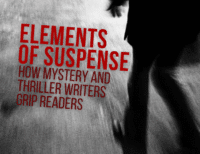
Trackbacks/Pingbacks
- How to Write a Hook by Capturing Your Reader With Emotion - […] about how action is not necessarily danger—it has to go farther than that. In the article on Surprise hooks,…
Submit a Comment Cancel reply
Your email address will not be published. Required fields are marked *
Submit Comment
Join over 450,000 readers who are saying YES to practice. You’ll also get a free copy of our eBook 14 Prompts :
Popular Resources
Book Writing Tips & Guides Creativity & Inspiration Tips Writing Prompts Grammar & Vocab Resources Best Book Writing Software ProWritingAid Review Writing Teacher Resources Publisher Rocket Review Scrivener Review Gifts for Writers
Books By Our Writers

You've got it! Just us where to send your guide.
Enter your email to get our free 10-step guide to becoming a writer.
You've got it! Just us where to send your book.
Enter your first name and email to get our free book, 14 Prompts.
Want to Get Published?
Enter your email to get our free interactive checklist to writing and publishing a book.
Looking to publish? Meet your dream editor, designer and marketer on Reedsy.
Find the perfect editor for your next book
1 million authors trust the professionals on Reedsy. Come meet them.
Guides • Perfecting your Craft
Last updated on Nov 09, 2023
Book Hook: 48 Examples of Irresistible Elevator Pitches
Formulas and advice aside, one of the best ways to learn how to craft a book hook is to immerse yourself in great ones. In this post, we've gathered examples of pitches for books (and book adaptations) from various platforms, including Amazon, Publishers Marketplace, and Netflix.
As you read each hook, take note of your gut reaction. Do you instinctively think: “Tell me more.” The greater your curiosity, the stronger the hook.
Let’s dive in and catch on to some book hooks.
1. The Road To Tender Hearts by Annie Hartnett
“An elderly man plans to drive across the country to declare his love for his high-school sweetheart when he unexpectedly becomes the guardian of two recently orphaned children and an orange tabby cat who may or may not be able to predict death.” (Publishers Marketplace)
2. One Flew Over the Cuckoo's Nest by Ken Kesey
“In the Fall of 1963, a Korean War veteran and criminal pleads insanity and is admitted to a mental institution, where he rallies up the scared patients against the tyrannical nurse.” (IMDb)
3. The Kite Runner by Khaled Hosseini
“After spending years in California, Amir returns to his homeland in Afghanistan to help his old friend Hassan, whose son is in trouble.” (IMDb)
Are you ready for a literary agent?
Find out here! Takes one minute.
Literary fiction
4. playground by richard powers.
“[Playground follows] four lives—a marine biologist, an artist, a school teacher, and an AI pioneer—that intersect on an island in French Polynesia when it is chosen as a base for seasteading, humanity's next great adventure.” (Publishers Marketplace)
5. Fresh, Green Life by Sebastian Castillo
“A study of interiority unfolding over the course of a single, snowy night when the author's namesake protagonist breaks a year of silent self-improvement to attend a reunion.” (Publishers Marketplace)
6. The Twitcher by Josh Selfe
“Colin is the nation's 7th greatest competitive birder (by his own estimation) and has dedicated his life to his pursuit. When a virus hits the UK, and birdwatching is outlawed, Colin descends into paranoia and madness: what is a twitcher who cannot twitch?” (Reedsy Live)
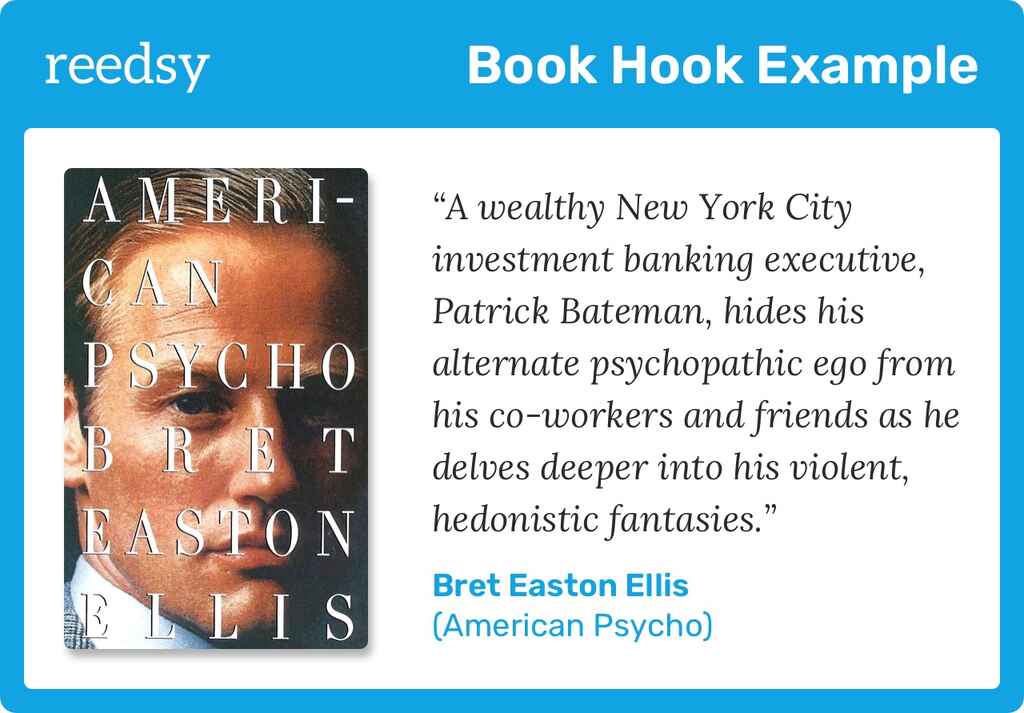
Is self-publishing or traditional publishing right for you?
Takes one minute!
Historical Fiction
7. the other boleyn girl by philippa gregory .
“Two sisters, Anne and Mary, are driven to advance their family's power by courting the affections of the King of England and a ruthless rivalry develops between them.” (Prime Video)
8. Cold Mountain by Charles Frazier
“In the waning days of the American Civil War, a wounded soldier embarks on a perilous journey back home to Cold Mountain, North Carolina to reunite with his sweetheart.” (IMDb)
9. Bridgerton: The Duke and I by Julia Quinn
“By all accounts, Simon Basset is on the verge of proposing to his best friend's sister—the lovely and almost-on-the-shelf—Daphne Bridgerton. But the two of them know the truth—it's all an elaborate ruse to keep Simon free from marriage-minded society mothers. And as for Daphne, surely she will attract some worthy suitors now that it seems a duke has declared her desirable.” (Amazon)
10 . The Holiday Honeymoon Switch by Marissa Stapley
“Two best friends trade one's cabin Christmas vacation for the other's Hawaiian honeymoon after she's left at the altar, and both find love they weren't expecting.” (Publishers Marketplace)
11 . To All the Boys I've Loved Before by Jenny Han
“When her secret love letters somehow get mailed to each of her five crushes, Lara Jean finds her quiet high school existence turned upside down.” (Netflix)
12. The Fault in Our Stars by John Green
“Two teenage cancer patients begin a life-affirming journey to visit a reclusive author in Amsterdam.” (IMDb)
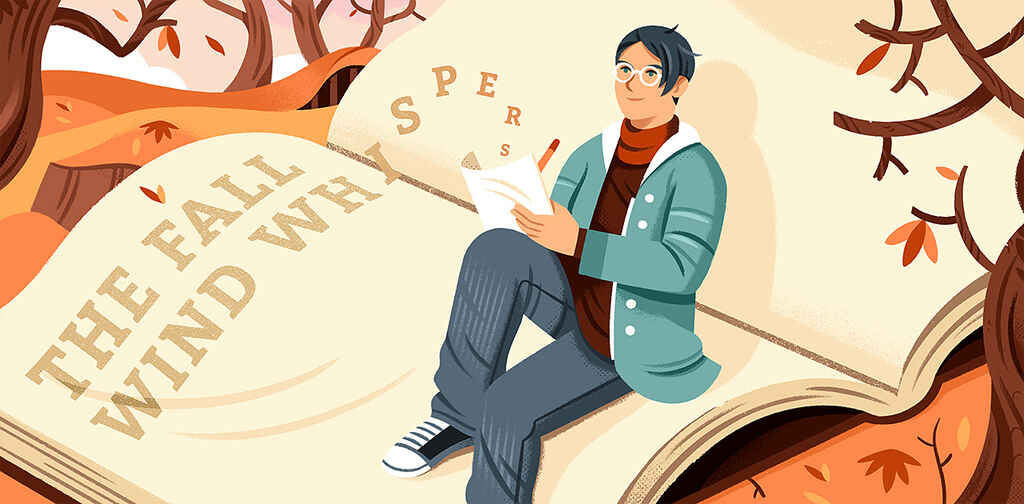
FREE RESOURCE
Book Description Template
Learn to write a book description that will make readers click “buy.”
13. The Invisible Life of Addie LaRue by V. E. Schwab
“France, 1714: in a moment of desperation, a young woman makes a Faustian bargain to live forever―and is cursed to be forgotten by everyone she meets.” (Amazon)
14. The Lion, the Witch and the Wardrobe by C. S. Lewis
“Four kids travel through a wardrobe to the land of Narnia and learn of their destiny to free it with the guidance of a mystical lion.” (IMDb)
15. Howl's Moving Castle by Diana Wynne Jones
“When an unconfident young woman is cursed with an old body by a spiteful witch, her only chance of breaking the spell lies with a self-indulgent yet insecure young wizard and his companions in his legged, walking castle.” (IMDb)
16. The Third Rule of Time Travel by Philip D. Fracassi
“A scientist discovers a way for human consciousness to travel through time and relive moments of their life, but after one fateful experiment she returns to find her reality altered to a horrifying extent.” (Publishers Marketplace)
17. Ready Player One by Ernest Cline
“When the creator of a virtual reality universe called the OASIS dies, he leaves his immense fortune to the first person to find a digital Easter egg he has hidden somewhere in the OASIS, sparking a contest that grips the entire world.” (Prime Video)
18. Brave New World by Aldous Huxley
“In a utopia whose perfection hinges upon control of monogamy and privacy, members of the collective begin to question the rules, putting their regimented society on a collision course with forbidden love and revolution.” (IMDb)
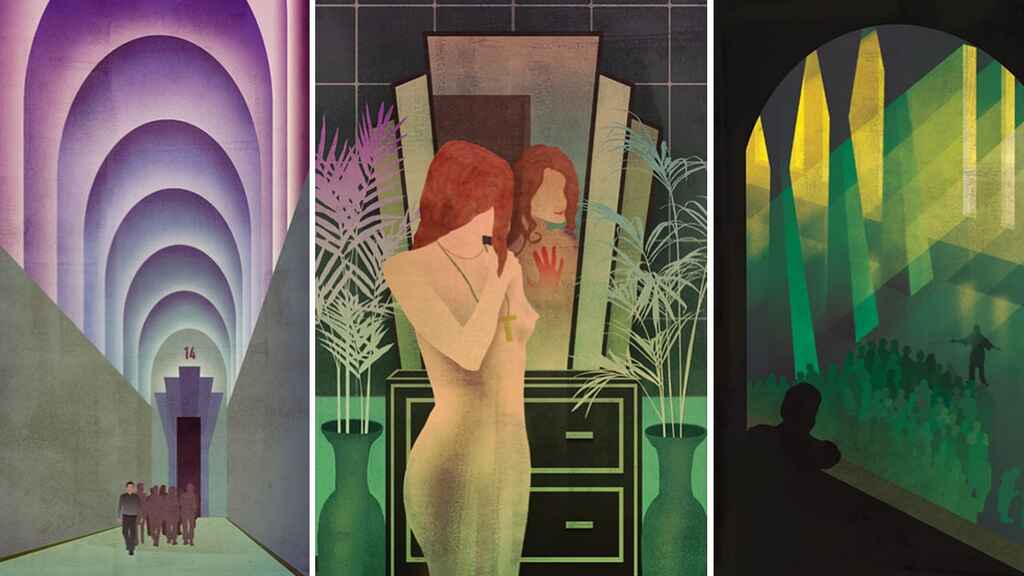
19. Over The Edge by Kathleen Bryant
“A failed reporter-turned-jeep tour guide finds a dead body in a backcountry canyon and must overcome PTSD-related memory loss to find the killer before he finds her.” (Publishers Marketplace)
20. Death In The Downline by Maria Abrams
“A struggling millennial gets sucked into a multi-level marketing scheme by her BFF. When a distributor dies under mysterious circumstances, she must uncover the dark secret at the heart of the organization and save her best friend before it's too late.” (Publishers Marketplace)
21. The Da Vinci Code by Dan Brown
“A murder inside the Louvre, and clues in Da Vinci paintings, lead to the discovery of a religious mystery protected by a secret society for two thousand years, which could shake the foundations of Christianity.” (IMDb)
22. The Shining by Stephen King
“A family heads to an isolated hotel for the winter where a sinister presence influences the father into violence, while his psychic son sees horrific forebodings from both past and future.” (IMDb)
23. The Bad Seed by William March
"Rhoda Penmark seems like your average, sweet eight-year-old girl. After her rival at school dies in mysterious circumstances at the school picnic, her mother starts to suspect that Rhoda was responsible." (IMDb)
24. The Colour Out of Space by H. P. Lovecraft
“After a meteorite lands in the front yard of their farm, Nathan Gardner and his family find themselves battling a mutant extraterrestrial organism that infects their minds and bodies, transforming their quiet rural life into a technicolor nightmare.” (Google)
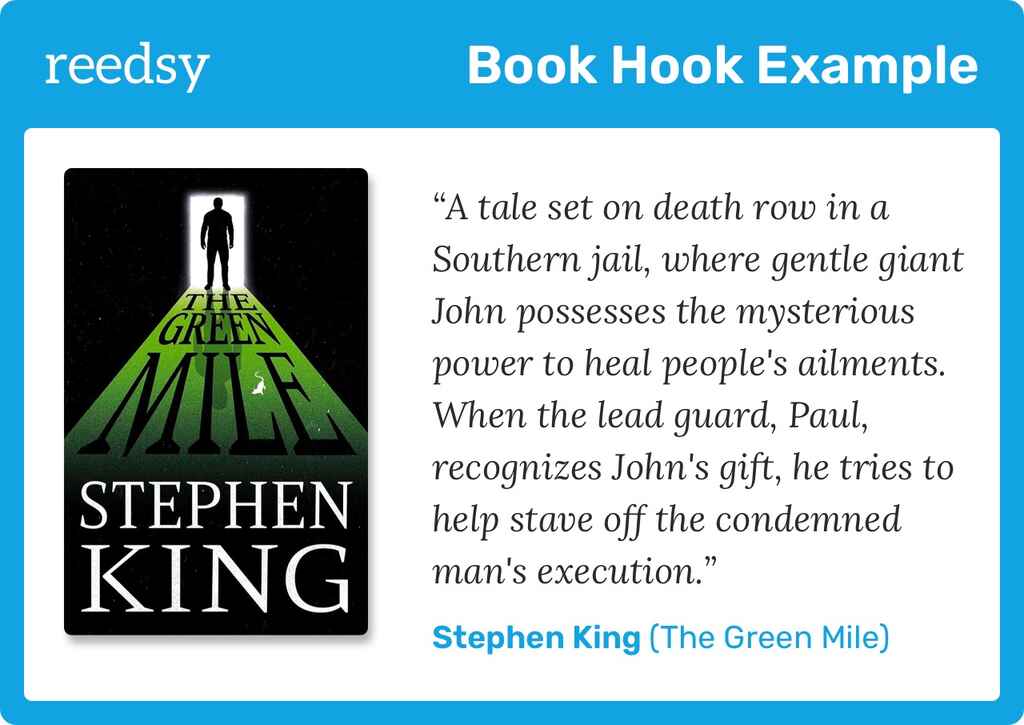
25. Exit Black by Joe Pitkin
“Eight ultra-wealthy guests are taken hostage during the grand opening of the first hotel in space. The resident biophysicist on the space station must save them when the guests are pitted against each other and expelled into space one-by-one when they don't comply with the terrorists' demands.” (Publishers Marketplace)
26. Gone Girl by Gillian Flynn
“With his wife's disappearance having become the focus of an intense media circus, a man sees the spotlight turned on him when it's suspected that he may not be innocent.” (IMDb)
27. The Bourne Identity by Robert Ludlum
“A man with amnesia faces life on the run from shadowy enemies as he fights to piece together his identity — and his mysterious connection to the CIA.” (Netflix)
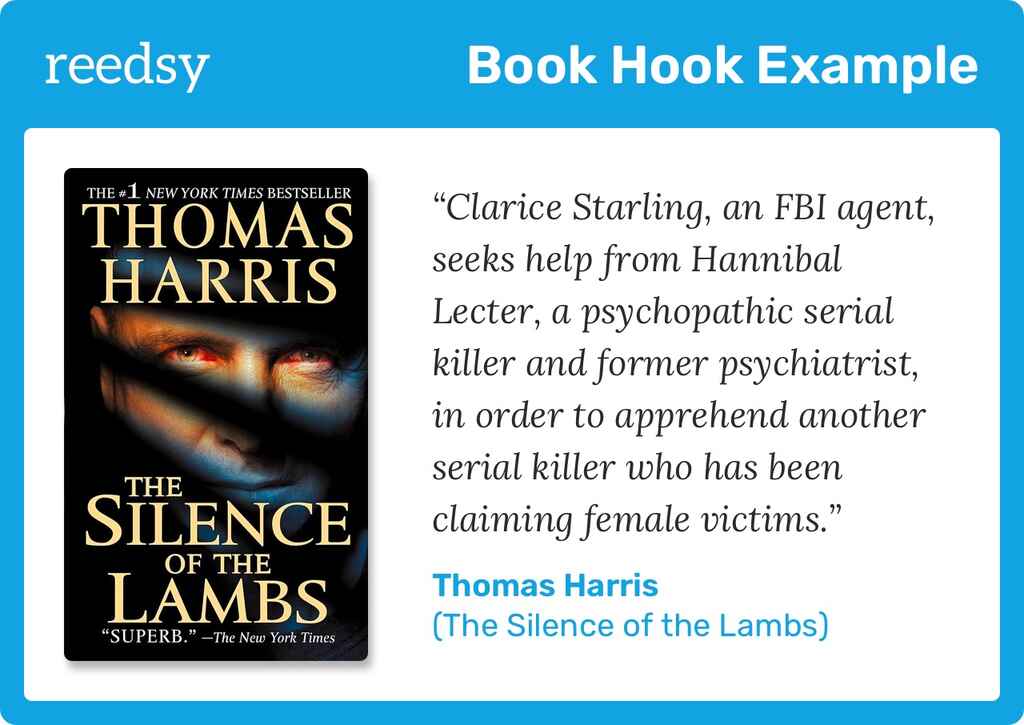
Young Adult
28. the maze runner by james dashner.
“Thomas is deposited in a community of boys after his memory is erased, soon learning they're all trapped in a maze that will require him to join forces with fellow "runners" for a shot at escape.” (IMDb)
29. The Hunger Games by Suzanne Collins
“Katniss volunteers to replace her sister in a tournament that ends only when one participant remains [alive]. Pitted against contestants who have trained for this all their life, she has little to rely on.” (Google)
30. Twilight by Stephenie Meyer
“When Bella Swan moves to a small town in the Pacific Northwest, she falls in love with Edward Cullen, a mysterious classmate who reveals himself to be a 108-year-old vampire.” (IMDb)
31. Where The Wild Things Are by Maurice Sendak
“Yearning for escape and adventure, a young boy runs away from home and sails to an island filled with creatures that take him in as their king.” (IMDb)
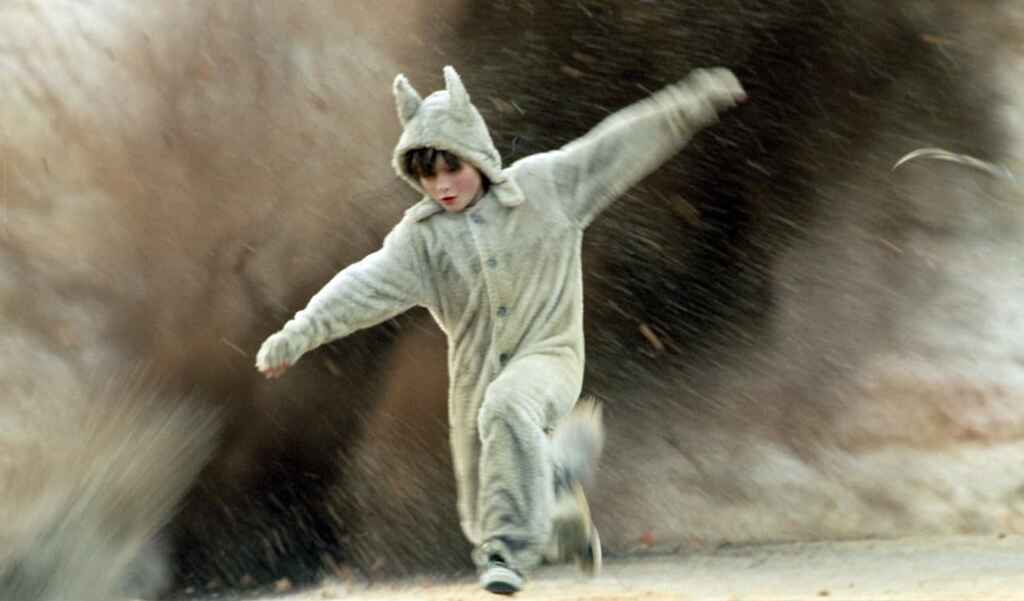
32. Wemberly Worried by Kevin Henkes
“A mouse named Wemberly, who worries about everything, finds that she has a whole list of things to worry about when she faces the first day of school.” (Google)
33. The Cat in The Hat by Dr. Seuss
“When Sally and her brother are left alone on a rainy day, they think they are in for a dull time 一 but then the Cat in the Hat steps onto the mat, bringing with him madness and mayhem.” (Amazon)
34. Life of Pi by Yann Martel
“After a cataclysmic shipwreck, young Pi Patel finds himself stranded on a lifeboat with only one other survivor 一 a ferocious Bengal tiger named Richard Parker. Bound by the need to survive, the two are cast on an epic journey.” (Prime Video)

35. Journey to the Center of the Earth by Jules Verne
“On a quest to find out what happened to his missing brother, a scientist, his nephew and their mountain guide discover a fantastic and dangerous lost world in the center of the earth.” (IMDb)
36. The Hitchhiker's Guide to the Galaxy by Douglas Adams
“Seconds before Earth is destroyed to make way for a new hyperspace express route, mild-mannered Arthur Dent is whisked into space by his best friend, an alien posing as an out-of-work actor.” (Prime Video)
37. Wild by Cheryl Strayed
“A troubled young woman seeks to find herself and overcome her past by hiking the grueling Pacific Crest Trail.” (Prime Video)
38. The Pursuit of Happyness by Chris Gardner
“A newly single father determined to lift himself and his son out of poverty works his way up from the bottom at a stock brokerage firm.” (Netflix)
39. Kon-Tiki by Thor Heyerdahl
“With five loyal friends in tow, explorer Thor Heyerdahl sails a fragile balsa wood raft along an ancient path some 4300 miles across the Pacific to prove his theory on Polynesian ancestry.” (Netflix)
Autobiography/biography
40. a long way home by saroo brierley.
“A five-year-old Indian boy is adopted by an Australian couple after getting lost hundreds of kilometers from home. 25 years later, he sets out to find his lost family.” (IMDb)
41. American Sniper by Chris Kyle, Jim DeFelice, and Scott McEwen
“Navy S.E.A.L. sniper Chris Kyle's pinpoint accuracy saves countless lives on the battlefield and turns him into a legend. Back home with his family after four tours of duty, however, Chris finds that it is the war he can't leave behind.” (IMDb)
42. A Beautiful Mind by Sylvia Nasar
“At the age of thirty-one, John Nash, a mathematical genius, suffered a devastating breakdown and was diagnosed with schizophrenia. Yet after decades of leading a ghost-like existence, he was to re-emerge to win a Nobel Prize and world acclaim.” (Amazon)
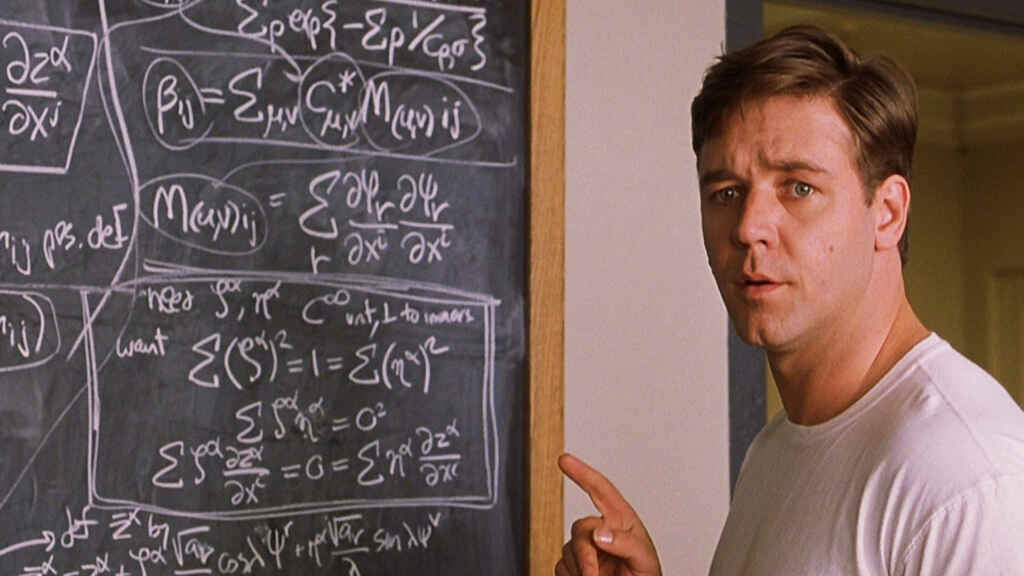
43. Say Hello To Strangers by Gillian Sandstrom
“Why connecting with the people you know least makes us more creative, less lonely, and less cynical.” (Publishers Marketplace)
44. Beat The Bots! by Jane Cleland
“A writer's guide to leaning into their humanity and creativity to survive and thrive in the age of AI.” (Publishers Marketplace)
45. Sapiens by Yuval Noah Harari
“One hundred thousand years ago, at least six different species of humans inhabited Earth. Yet today there is only one—homo sapiens. What happened to the others? And what may happen to us?” (Amazon)
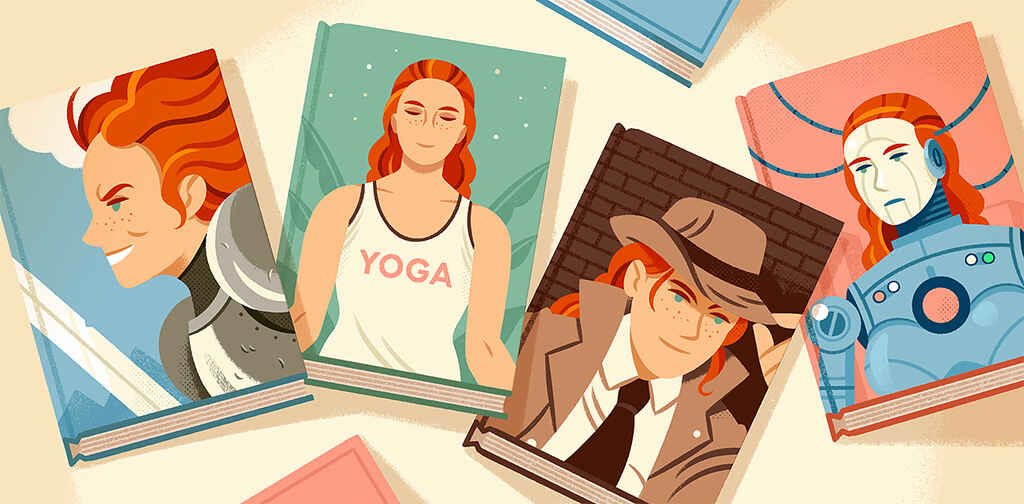
Book Proposal Template
Craft a professional pitch for your nonfiction book with our handy template.
46. The Shack by William P. Young
“After the disappearance of his youngest child, Mack Phillips is severely depressed. His life takes an unlikely turn when he receives a mysterious letter asking him to visit a cabin.” (Google)
47. Redeeming Love by Francine Rivers
“Sold into prostitution as a child, Angel knows nothing but betrayal. Can her heart ever be mended?” (IMDb)
48. The Case for Christ by Lee Strobel
“A seasoned journalist chases down the biggest story in history一is there credible evidence that Jesus of Nazareth really is the son of god?” (Amazon)
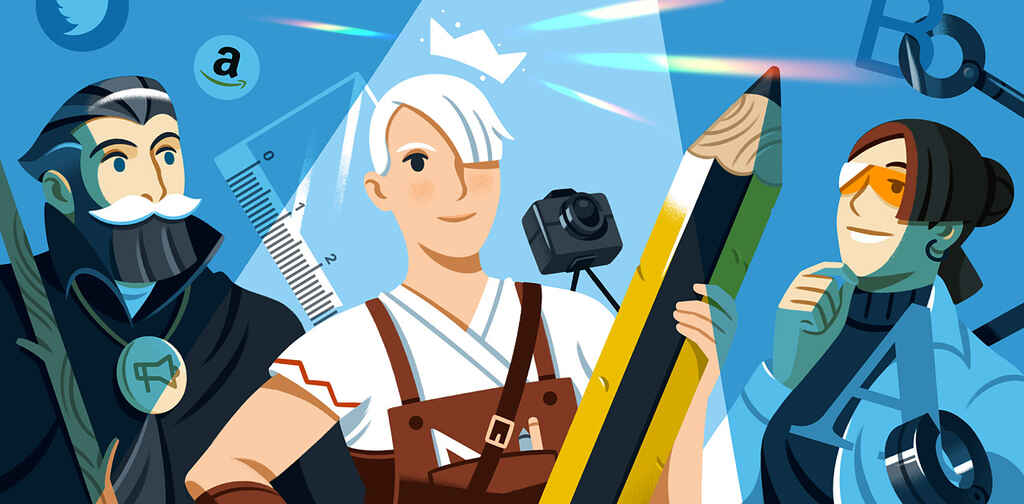
MEET THE BEST PUBLISHING PROFESSIONALS
Polish your book with expert help
Sign up to browse 2000+ experienced editors, designers, and marketers.
These examples should be enough to get you inspired. To truly master the craft, take out a pen and paper and try to deconstruct each hook in terms of character, conflict, stakes, as well as other elements like character arc and story details.
Refining your pitch might be a tricky process, but it’ll help you gain a clearer understanding of what your novel is really about so you can feel more confident both when writing it and presenting your work to others.
Join a community of over 1 million authors
Reedsy is more than just a blog. Become a member today to discover how we can help you publish a beautiful book.
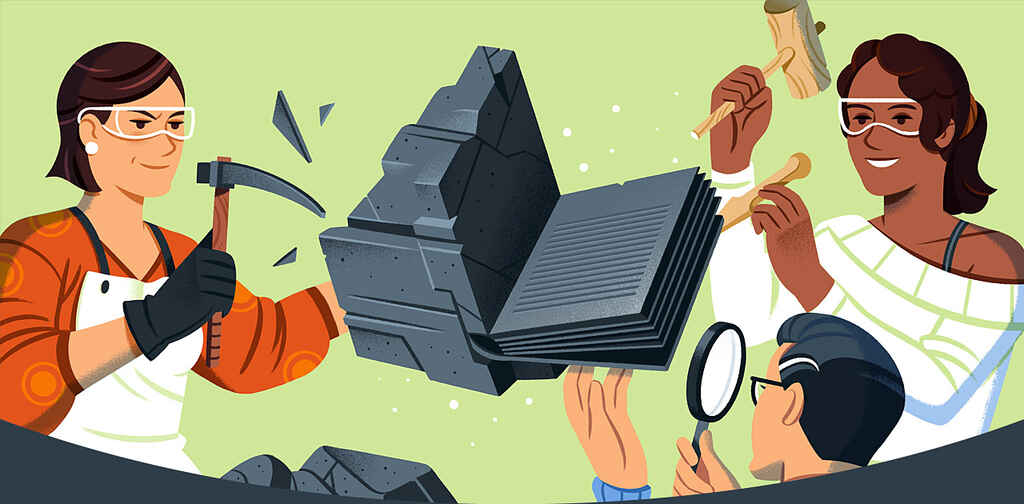
Submitting your query letter?
Professional editors can help your query stand out for the right reasons.

1 million authors trust the professionals on Reedsy. Come meet them.
Enter your email or get started with a social account:

Your First Chapter: The Hook
The first thing a first chapter must do is hook the reader with one or more catchy opening sentences . Learning how to write the first chapter of a book is difficult, but mastering how to write a great first sentence is at least as important.
First in a Series
This is the first post in a four-part series about your first chapter. We will cover the hook, establishing point of view and the setting and genre. We will cover all the things a great first chapter must do, including: showing the normal world, the stakes, the conflict, and finally, creating a cliffhanger. See the Resources section at the bottom for the links to the other posts.
Why is the first chapter different from others?
First chapters are how you attract new readers, right after the cover and the book description. First chapters have lots of moving parts and must do some heavy lifting to ensure the success of your book. This is why we need to study how to write an engaging first chapter .
First chapters have lots of moving parts and must do some heavy lifting to ensure the success of your book. —Kathrese McKee
If your first chapter doesn’t work for the reader, then you will probably have lost a customer for life. If they flip open the cover or use the Look Inside feature online to read the first page and you fail to hook them, then you’ve lost your best opportunity to land a new reader. It’s so easy for them to close the book and put it back on the shelf or to click off of the web page.
The importance of the opening line.
The first thing in your first chapter is the opening line. You may get as many as three paragraphs to generate interest in your novel, but after that, you can expect the reader to pass judgment. Do they want to keep reading, or would they rather move on? Are they going to buy the book or borrow it from the library? Or are they going to put your book back on the shelf?
But I’m thinking like an indie author. Agents and publishers absolutely won’t hesitate to reject a book with a weak opening line or a first chapter that doesn’t do the job. Indeed, your first sentence may be all they read. If the opening line is interesting, then they may read the next. And the next. Make no mistake, though, agents and acquiring editors are trying to get through their slush pile; they are searching for any reason to reject your manuscript and move on to the next.
So, no pressure.
Every scene begins with a hook. The hook can be one sentence or up to five or six sentences.
The hook raises questions in the readers’ minds and makes them a promise—if they keep reading, their questions are going to be answered. It also sets expectations about tone, mood, voice, setting, and genre. Frequently, characterization, conflict, and point of view begin in the first few lines.
Let’s take the first paragraph of The Hunger Games , by Suzanne Collins (2008), as an example:
“When I wake up, the other side of the bed is cold. My fingers stretch out, seeking Prim’s warmth but finding only the rough canvas cover of the mattress. She must have had bad dreams and climbed in with our mother. Of course, she did. This is the day of the reaping.” —Suzanne Collins, The Hunger Games, 2008
Automatically, the reader wants to know the answers to the following questions:
- Why is Prim missing?
- Why is there only a rough canvas cover on the mattress, and why does the main character have to share the bed with Prim for warmth?
- Why does Prim have regular nightmares, and what is a “reaping?”
Notice the clues to characterization. The main character is concerned for Prim. Mother is nearby and sleeps alone. Prim is the victim of frequent bad dreams. There are clues to setting, both place and time. These two people share a shabby bed for warmth, so we know it’s cold at night. And it is morning on “the day of the reaping.” This sets an ominous, foreboding tone for what follows.
Here is another example from my book, Healer’s Curse (2015):
*“The fever returned to Northern Marst in the spring of my eighteenth year and rocked the capital city of Kaeson to its foundations.After several years with only the odd case or two, new cases cropped up every day, keeping me and my fifteen-year-old apprentice, Princess Renélan, frantically busy. Most of our patients responded to a regimen of rest, gruel, and fluids, but for the serious cases, I needed to use my gift of healing.
“ El had called me to be a healer at age twelve, but these days, I hesitated to use the gift. People gave me doubtful, sidelong looks as if to say, Lady Elilan couldn’t even heal her own husband. Less charitable people whispered, ‘I heard Elilan caused Lord Jayson’s death.’” —Kathrese McKee, Healer’s Curse, 2015
The reader wants to know the answers to these questions:
- What is the fever?
- Why is this young person of eighteen being called to heal people?
- Why does she have a fifteen-year-old princess as an apprentice?
- Why does she hesitate to use her gift of healing?
- Why do people distrust her?
- Is Lady Elilan a murderer?
Clues to characterization, setting, and mood are presented. The character’s inner conflict is also revealed; she is reluctant to use her supernatural gift. The setting is a fictional kingdom in a time before antibiotics and modern medicine. The reader can tell the story is in the fantasy genre from the details given.
Let’s look at one more example from Sally Bradley’s contemporary romance, Kept (2014):
“Mark was leaving—again. *Miska Tomlinson let the gauzy curtain fall across her living room window, obscuring the view of Chicago’s lakefront eighteen stories below. If she’d known a year ago that their relationship would stall like this, she might have thought twice about accepting his offer of a drink. That would have saved her this roller coaster of pleasure and pain. The pain was worth it, though, wasn’t it? The two of them hiding out in her condo three or four days at a time. No one hassling them, no one knowing …” —Sally Bradley, Kept, 2014
These three paragraphs raise several questions:
- Why is Mark leaving again?
- Why does Miska put up with it?Is she thinking about ending their relationship?
- Does she regret it?
- Why do they hide their relationship from the rest of the world?
The reader is introduced to two characters, Miska and Mark, and characterization begins right away. Miska is powerless, for some reason, to stop Mark from leaving. This hints at the conflict. The setting is vividly established as modern-day Chicago in a luxurious condo overlooking the lake. And the mood is established as one of pain and wistfulness.
In all three examples, we catch a glimpse of the main character’s normal world. This is their status before the inciting event. None of these examples dwells on the backstory or dumps information on the reader.
Let’s review:
- T he main job of the hook is to raise questions.
- You are promising to answer those questions.
- You are setting expectations about tone, mood, and genre.
- The hook is the beginning of a scene, so make sure you set the scene and reveal who it is about.
In The Hunger Games , we start in Katniss Everdeen’s point of view, even though we don’t know her name yet. It is morning inside a shack on the day of the reaping.
In Healer’s Curse , we start in Lady Elilan’s point of view, and the reader learns she lives in the capital city of Kaeson in the kingdom of Northern Marst in medieval times. The main character has a supernatural gift, and she lives under a cloud of suspicion. These droplets of information set expectations about genre and conflict.
In Kept , we start in Miska’s point of view inside a contemporary penthouse apartment in Chicago. Her focus is on her lover, Mark, who is leaving her behind again.
So, what if you are having trouble writing the beginning of your story?
First, try this unexpected tip for how to write a first sentence.
If you are having trouble writing your hook, DON’T write it yet. If you are having trouble writing your hook, don’t write it yet. Some authors know right away what their first lines will be, but most really struggle with the hook, and rightfully so. The first few sentences need to achieve many things. To get over the hump, SKIP IT until later. Most of the time, I type the following as I begin to write:
“This is my first sentence.”
That’s it. That’s the sentence. Let the first sentence rest so your subconscious can work on it while you move ahead. It is quite possible that your “first sentence” will turn into several paragraphs or a scene when you return to it. Meanwhile, plunge into your story, knowing that later the perfect beginning will occur to you.
You may even be able to tie the beginning and ending of your story together, bringing it full circle.
If you are having trouble writing your hook, don’t write it yet. —Kathrese McKee
Second, do not begin with an information dump or backstory.
As an editor, I have lost count of the times new authors have sent me their manuscripts which begin with pages of information, thinly disguised as a character’s thoughts. Most of the time, the beginner writer has a character doing something, but often, the action is banal, like taking a shower or getting dressed for work or looking in the mirror (God forbid) or walking the dog.
Pages and pages of boring explanation or excessive description go by. The author needs to know this stuff, but the reader does. Not. Care.
Set things in motion. Establish the main character. Get some dialogue going. If your first two pages contain only prose, that’s a sign to take a second look and/or get a second opinion before you send your work to an editor.
There are exceptions to the rule, but openings should always involve conflict and include important action.
Here is an example from Dance Hall of the Dead: A Leaphorn & Chee Novel by Tony Hillerman, published in 1990.
Sunday, November 30, 5:18 P.M.
“ Shulawitsi, the Little Fire God, member of the Council of the Gods and Deputy of the Sun, had taped his track shoes to his feet. He had wound the tape as Coach taught him, tight over the arch of the foot. And now the spikes biting into the packed earth of the sheep trail seemed a part of him. He ran with perfectly conditioned grace, his body a machine in motion, his mind detached, attending other things. Just ahead where the trail shifted down the slope of the mesa he would stop–as he always did–and check his time and allow himself four minutes of rest. ” —Tony Hillerman, Dance Hall of the Dead , 1990
The opening contains no dialogue. In fact, the first chapter contains no dialogue, but it shows crucial action. As frequently happens with whodunnits, the first chapter is about the crime. But what a great first sentence!
The Little Fire God has track shoes taped to his feet. He is on a sheep trail, running along the top of a mesa. He is all alone. Why? He seems so intent on doing everything just right, and he has trained for this moment. Will he succeed? I guess you’ll have to read the book to find out.
Third, establish point of view (POV) and setting.
The third tip is to be clear about point of view and setting. Also, show, don’t tell. In the previous example, we were firmly in the head of Shulawitsi. Because it is evening on the last day of November, we can guess that it is cold. We are running with the Little Fire God and enjoying the feel of the track shoes biting into the sheep trail. We are a perfectly tuned machine, and we are on a mission.
Fourth, set the tone and mood through what you focus on and the words you choose.
If your book is meant to be funny, then start off that way. If it is brooding or foreboding, then choose the opening words accordingly.
Dance Hall of the Dead is a mystery murder … or a murder mystery… Dance Hall of the Dead is a murder mystery, so Hillerman starts off with a mysterious scene. He draws the reader in and raises serious questions from the beginning.
In the funny and heartwarming memoir series by James Herriot, he begins with:
“They didn’t say anything about this in the books, I thought, as the snow blew in through the gaping doorway and settled on my naked back. “I lay face down on the cobbled floor in a pool of nameless muck, my arm deep inside the straining cow, my feet scrabbling for a toe hold between the stones.” —James Herriot, All Creatures Great and Small, 1972
Herriot’s dry humor comes through the first sentence and never lets up. Sometimes, the author will make you cry, but then he will make you laugh through the tears.
Fifth, be consistent with your genre.
Going back to The Hunger Games , a dystopian book for Young Adults, Collins chose to use first person, present tense. This is not my favorite choice, but it works well for the genre and the audience.
Let’s take a look at a few other examples with genre in mind:
“It was a pleasure to burn.
“It was a special pleasure to see things eaten, to see things blackened and changed. With the brass nozzle in his fists, with this great python spitting its venomous kerosene upon the world, the blood pounded in his head, and his hands were the hands of some amazing conductor playing all the symphonies of blazing and burning to bring down the tatters and charcoal ruins of history.” —Ray Bradbury, Fahrenheit 451 , 1953
Obviously, this is dystopian science fiction. And we cannot look away as the books burn.
“It is a truth universally acknowledged, that a single man in possession of a good fortune, must be in want of a wife.” —Jane Austen, Pride and Prejudice , 1813
Some people mistakenly believe Jane Austen’s books are romantic historical fiction, but no, she was writing contemporary satire about her time in history. And this tongue-in-cheek opening line is exactly right for what she meant to achieve.
“The cold passed reluctantly from the earth, and the retiring fogs revealed an army stretched out on the hills, resting.” —Stephen Crane, The Red Badge of Courage , 1895
The Red Badge of Courage is a novel of the American Civil War, published just thirty years after it ended. Crane sets a brooding tone right away through his imagery and word choice.
“My name is Kinsey Millhone. I’m a private investigator, licensed by the state of California. I’m thirty-two years old, twice divorced, no kids. The day before yesterday I killed someone and the fact weighs heavily on my mind.” —Sue Grafton, “A” is for Alibi: A Kinsey Millhone Mystery , 1982
This is the perfect beginning to a thriller about a private investigator. Just the facts, ma’am.
And so on. If your opening is not in line with your intended audience and genre, you have work to do.
Beginnings are as individual as the people who write them. Here are a few, general ideas:
- Reveal something personal, either about yourself or a character.
- Break the fourth wall and ask the reader a question.
- Say something shocking, surprising, or unexpected.
- Write something in a mysterious way to intrigue the reader.
- Make a bold claim.
- Lead with a confession.
- Invite the reader in, as if letting them in on a secret.
- Communicate what is at stake.
- Set the scene with imagery.
- State your theme.
- Mention an odd detail.
This is by no means an exhaustive list. Remember, you want to raise questions in your reader’s mind. Then you want to hold their attention.
What is your favorite book opening?
Four-part series for your first chapter:.
- Point of View
- Setting, Genre, Normal World, & Stakes
- Conflict, Choice, & Consequences
Kathrese McKee, author and owner of Writing Pursuits, writes epic adventures for young adults and anyone else who enjoys pirates and princesses combined with life’s difficult questions. She is committed to exciting stories, appropriate content, and quality craftsmanship. Find her books at KathreseMcKee.com.
Similar Posts

Book overview – Cowriting with ChatGPT, J. Thorn
A short overview of J. Thorn’s life hack manual, Cowriting with ChatGPT, about using ChatGPT to help authors with story development.

7 Proven Tips to Develop Unforgettable Side Characters in Your Fiction
How can you develop and flesh out unforgettable side characters in fiction? Side characters are as important as main characters in that they help move your story along and provide sources of conflict.

Unveiling Publishing Turmoil: The City Owl Press Controversy and Lessons for Indie Authors
Occasionally, a publisher gets into a bit of trouble, and trouble is brewing at City Owl Press (COP). Today, I want to address the lessons authors can learn from this situation. According to their website: “City Owl Press is a cutting edge indie publishing company, bringing the world of romance and speculative fiction to discerning…

Don’t Call It an Outline
Back when I first played around with the idea of writing a book, I opened up a spiral and started writing a story I thought my kids would enjoy. Every spare moment—at games and doctor visits and during lunch—I would invent problems for my characters to solve and things for them to say. I was…

Add Depth to Your Fictional Characters: Embracing Flaws and Scars
One of my lead characters has a problem. I mean, he used to have a problem. He was too perfect. He was a Mary Sue, the kind of leading man you instantly fall in love with. Yes, I wanted my readers to fall in love with him, but his superhuman perfection should have been a…

Thou Shalt Not Capitalize Too Much
Avoid excessive capitalization of pronouns for God, Jesus, the Holy Spirit, and divine places. And learn about some other rules.
Cool stories for interesting people

10 sci-fi novel opening lines that’ll take your breath away
The opening sentence of a science fiction novel, perhaps more than any other genre, has a lot of work to do. Like all good fiction, it needs to hook you, jolt you into the story and establish the tone. Yet it also needs to get you interested in a whole new alternative world, a place where you’ll live for the duration of the book. It’s a big ask. Nonetheless, there are some masterly examples of opening lines that do that and more. Here are ten that, quite literally, take our breath away.
“I’ve watched through his eyes, I’ve listened through his ears, and I tell you he’s the one.” Ender’s Game, Orson Scott Card.
Most of the time starting a novel with dialogue is a big no, no. We don’t know who the character is, so we have no idea of the context or whether we should care what they say. Scott Card gets away with it, though, because the line is simply so intriguing and raises so many questions we need answered.
“The sky above the port was the color of television, tuned to a dead channel.” – Neuromancer, William Gibson.
Another often cited rule of writing is that you should never start a story with a description of the weather. With this stunningly atmospheric opener, Gibson shows why rules are made to be broken. It’s such a vivid image and hints at a very ominous world in a way that prickles the readers’ curiosity.
“A merry little surge of electricity piped by automatic alarm from the mood organ beside his bed awakened Rick Deckard.” – Do Androids Dream of Electric Sheep? Philip K. Dick
It’s all about the “mood organ” in Dick’s classic opener. The concept is strangely fascinating and conjures up images of an old fashioned instrument with the power to understand a human’s feelings. This opening very much sets the scene for a world we want to know more about.
“Monday morning when I answered the door there were twenty-one new real estate agents there, all in horrible polyester gold jackets.” – The Hacker And The Ants, Version 2.0, Rudy Rucker.
Surreal in the Hunter S. Thompson road trip mold, this opening freaks you out in so many different ways. Real estate agents are horrific at the best of times, but so many of them dressed so hideously shouts bizarre, bizarre, bizarre. Immediately, you empathise with the narrator but more importantly you want to know what he has done to deserve such a nightmarish visit.
“It was a bright cold day in April, and the clocks were striking 13.” 1984 , George Orwell.
Arguably, one of the most famous sci-fi opening lines, what makes this such a classic is the way it lulls you into thinking nothing is amiss until the very final word. Clocks don’t strike 13, we tell ourselves. Then the full implications of the sentence become apparent. Here is a world where the very nature of time keeping itself has been redefined. Who wouldn’t want to know how and, more importantly, why?
“The morning after he killed Eugene Shapiro, Andre Deschenes woke early.” – Undertow, Elizabeth Bear.
It’s the juxtaposition between the everyday and the horrific, which makes this such a fantastic opening sentence. Its added kick comes from the fact the mundane comes after the horrific. It makes you wonder what sort of person could sleep at all and what Eugene Shapiro did to deserve his fate.
“At the end, the bottom, the very worst of it, with the world afire and hell’s flamewinged angels calling him by name, Lee Crane blamed himself.” – Voyage To The Bottom Of The Sea , Theodore Sturgeon.
We love the drama and amazing energy of this opening. Add to that the Blakeian imagery, and you absolutely have to know why Lee Crane blames himself.
“Far out in the uncharted backwaters of the unfashionable end of the Western Spiral arm of the Galaxy lies a small unregarded yellow sun. Orbiting this at a distance of roughly ninety-eight million miles is an utterly insignificant little blue-green planet whose ape-descended life forms are so amazingly primitive that they still think digital watches are a pretty neat idea.” – A Hitchhiker’s Guide to the Galaxy , Douglas Adams
While breathtaking might not be the first adjective that comes to mind when you think of Adams’s classic, this opening ticks all the right boxes. Firstly, the way it underlines the vastness of the universe and, secondly, how it shows how utterly insignificant humans and everything we hold dear are. Brilliant stuff.
“The manhunt extended across more than one hundred light years and eight centuries.” – A Deepness In The Sky , Vernor Vinge.
A manhunt is always dramatic, but a manhunt across one hundred light years and eight centuries is obsessive and incredible, both in terms of human endeavour and technology. We want to meet the chaser and the chased and the world that enables them to do such a fantastical thing.
“It was a pleasure to burn.” Fahrenheit 451 , Ray Bradbury.
Along with Orwell’s magnificent 1984 , Bradbury’s opening line is one of the most famous in science fiction. Succinct yet vivid, it prompts a ton of questions. What was a pleasure to burn? Why was it a pleasure? Who found it pleasurable? Fire is such a sensationally powerful phenomenon, it’s no surprise this line appeals to both our head and our heart.
Follow us on Facebook and Twitter for more mind-blowing coolness.
You might also like.

8 life lessons we learned from Rambo

Very Finnish Problems Episode 6: When your children need to wee after getting dressed for winter

The internet created books to teach kids about Brexit. The results are priceless.

10 books about sport that every fan should read
Very nice post! Not to be a nitpick, but you forgot to attribute Hitchhiker’s Guide.
“The man in black fled across the desert, and the gunslinger followed.”
The Gunslinger, Stephen King
Nailed it! I was disappointed this was not included.
Yesssssssssssssssssssssssssss.
Classic! Love it!!!
Great line, but I’d argue that’s it not strictly sci-fi.
Oh yes. I’ll never forget this line. Still gives me goosebumps. Pity that the books got steadily worse (except the one with the flashback).
Yes this would have been my first choice!
I was going to comment with the same quote. 🙂
Awesome background and post’s not bad either 🙂
“The Building was on fire, and it wasn’t my fault.”
Blood Rites, Jim Butcher ( a Dresden Files novel)
If you did an article about 10 most breathtaking closing lines, at least 8 of them would be Arthur C. Clarke short stories…
“Overhead, without any fuss, the stars were going out.”
“It was a bright cold day in April, and the clocks were striking 13.”
I think that you have misunderstood this line. Clocks do strike thirteen, especially as is revealed later in the book that the entire country of Oceania runs on military time. In civy time it would be 1:00 PM.
Thanks for sharing your thoughts, Lucideus.
I didn’t misunderstand it. For the vast majority of people who read that line clocks don’t strike thirteen and that’s all that matters. Of course, once you’ve read the book it’s significance becomes obvious. However, I’m working on the premise that readers who are starting a book don’t already know the ending.
My favorite opening line, even if the book it’s attached to is less than stellar, is the opening sentence of Philip Reeve’s book, Mortal Engines:
“It was a dark, blustery afternoon in spring, and the city of London was chasing a small mining town across the dried-out bed of the old North Sea.”
Good list, but man, language doesn’t mean anything anymore with the use of hyperbole as heavy as “..take your breath away.”
“The Deliverator belongs to an elite order, a hallowed subcategory”–Neal Stephenson, Snow Crash
‘The Deliverator belongs to an elite order, a hallowed subcategory. He’s got esprit up to here.’
Snow Crash, Neal Stephenson
I love this opening line, but really the opening three or four paragraphs are spectacular. Among the best in scifi.
I put the shotgun in an Adidas bag and padded it out with four pairs of tennis socks, not my style at all, but that was what I was aiming for: If they think you’re crude, go technical; if they think you’re technical, go crude. I’m a very technical boy.
Sorry, didn’t get the attribution in before posting the above. “Johnny Mnemonic” William Gibson
“On my 75th birthday I did 2 things. First I visited my wife’s grave… Then i signed up for the army”
Old man’s War
“When I was quite small I would sometimes dream of a city — which was strange because it began before I even knew what a city was.”
John Wyndham, “The Chrysalids” (1955)
The Hegemony Consul sat on the balcony of his ebony spaceship and played Rachmaninoff’s Prelude in C-sharp Minor on an ancient but well-maintained Steinway while great, green, saurian things surged and bellowed in the swamps below. A thunderstorm was brewing to the north. Bruise-black clouds silhouetted a forest of giant gymnosperms while stratocumulus towered nine kilometers high in a violent sky. Lightning rippled along the horizon. Closer to the ship, occasional vague, reptilian shapes would blunder into the interdiction field, cry out, and then crash away through indigo mists. The Consul concentrated on a difficult section of the Prelude and ignored the approach of storm and nightfall.
The fatline receiver chimed.
“His followers called him Mahasamatman and said he was a god. He preferred to drop the Maha- and the -atman, however, and called himself Sam. He never claimed to be a god, but then he never claimed not to be a god.” How could you not have this one, from Lord of Light by Roger Zelazny??
“It was time to whip the god” from “The god engines” by John Scalzi
“Call me Jonah”.
Cat’s Cradle by Kurt Vonnegut. Cheeky enough to steal one of the most recognized opening lines in literature. And the use of Jonah, who brought bad luck with him wherever he ran, tells you what you’re about to be in for.
Beowulf was bad.
Of which Sci-Fi novel is this the first line?
Leave a Reply Cancel reply
Your email address will not be published. Required fields are marked *
Save my name, email, and website in this browser for the next time I comment.
This site uses Akismet to reduce spam. Learn how your comment data is processed .
50 Sci Fi Writing Prompts to Help You Get in the Zone
By: Author Paul Jenkins
Posted on September 26, 2022
Categories Writing , Inspiration
Science fiction is one of the most popular genres in the world, and for good reason! It allows us to explore new worlds, imagine different futures, and experience adventures. If you’re looking to get into the sci-fi writing zone, these 50 prompts are perfect! They will help you develop new story ideas and keep your creative juices flowing. So what are you waiting for? Get started today!
50 Sci-Fi Writing Prompts
1. What if aliens invaded the Earth? How would humanity react, and how would we fight back?
2. What if we discovered a new, habitable planet? What would be the implications for our species?
3. What if time travel was possible? What kind of havoc could be wreaked, and what would be the consequences?
4. What if we made contact with intelligent life forms from another world? How would they view us, and vice versa?
5. What if our world was plunged into a new ice age? How would we survive, and what would happen to civilization as we know it?
6. What if global warming became an irreversible reality? What kind of effect would it have on the planet and human society?
7. What if artificial intelligence became self-aware and decided to take over the world? How would we stop them?
8. What if animals started evolving into sentient beings and demanded equal rights? How would humanity react, and how would society change as a result?
9. What if death could be cured and people stopped dying? How would that affect our views on life, and what would be the consequences of overpopulation?
10. What if we started colonizing other planets? Could we survive in outer space?
11. What if the government allowed corporations to control the planet’s resources? What would happen if the corporations took over?
12. What if we discovered a new form of energy that could fuel technology for thousands of years? What would be the implications for our planet and our existence?
13. What if we discovered a new, potent form of medicine? What would be the implications for our health, and how would it affect our views on aging or illness?
14. What if there was a new ice age? What would be the implications for the planet and humanity?
15. What if our entire solar system was destroyed? How would this affect our planet, and how would we survive?
16. What if humans became immortal? What would be the implications for society and our civilization?
17. What if an alien race built a new space station near our planet? How would we react, and what would be the consequences?
18. What if aliens discovered a new planet with potentially habitable conditions? How would the two species establish contact, and what would the consequences be?
19. What if we invented a powerful new technology that could change our world? What would we use it for, and how would it impact our society?
20. What if we developed technology that could read our thoughts? What would be the implications for society and our civil liberties?
21. What if a new disease was discovered? How would we respond, and how would it change our world?
22. What if a human discovered a new, highly potent energy source? What would be the implications for society and the environment?
23. What if a scientific discovery threatened to destroy our planet? What lengths would we go to stop it?
24. What if our DNA became mutilated beyond repair, and we could not breed? How would humankind react, and what would be the consequences?
25. What if a new virus was discovered? What would be the implications for humanity, and how would we stop it?
26. What if a human discovered a new planet we could colonize? What would be the implications for our species, and how would we establish colonies there?
27. What if humanity found a way to travel beyond the galaxy? What kinds of adventures could we have in deep space, and what would we discover?
28. What if a new meteor struck Earth and devastated our planet? How would humanity respond, and what would be the aftermath?
29. What if a new kind of energy was discovered? How would humanity use it, and what would be the consequences for our world?
30. What if a new kind of weaponry was discovered? What would be the implications for humanity and for war?
31. What if humans stopped having children? How would this affect our species, and what would be the consequences?
32. What if we discovered a new planet with a breathable atmosphere? What would be the implications for humankind, and how would we colonize it?
33. What if a new dinosaur species was discovered? What would be the implications for our world, and how would we react to their existence?
34. What if a new plague could not be cured? How would humanity respond, and how would we stop the epidemic?
35. What if we discovered a new planet with plant, animal, and human life? What would be the implications for our world, and how would we colonize it?
36. What if a group of people from our planet were stranded on an alien planet? What would be the implications for them and humankind?
37. What if we started colonizing space? What would be the implications for our species?
38. What if a powerful alien species came to our planet? What would be the consequences for humankind?
39. What if humans began traveling the stars and colonizing other planets? What would be the implications for our species, and how would we arm ourselves?
40. What if a new virus spread around the world? How would we stop it, and what would be the repercussions?
41. What if we discovered a new planet that had highly advanced technology? How would we respond, and what would be the consequences?
42. What if an alien race who disliked humans discovered a new planet? How would they treat the planet’s inhabitants, and what would the implications be for humankind?
43. What if a new kind of energy was discovered but had negative impacts on the environment? What would be the implications for our planet and the future of humanity?
44. What if we discovered a powerful new technology that could positively alter our planet? What would be the implications for humankind, and how would we utilize it?
45. What if a new kind of animal was discovered? How would it affect our world, and how would we react?
46. What if we discovered a new form of life? What would be the implications for our world, and how would we respond?
47. What if we discovered a new planet with highly advanced technology? What would be the implications for our world and humanity?
48. What if we discovered a new planet with a suitable environment for human life? What would be the implications for humanity, and how would we colonize it?
49. What if we discovered a new planet inhabited by a new alien life form? What would be the implications for our world, and how would we respond?
50. What if humans landed on a new planet, and our astronauts were stranded there? What would the implications be for our species, and how would we respond?
Frequently Asked Questions
What are some sci-fi topics.
Fancy more than the above? Here goes!…
1. In a future world where artificial intelligence has surpassed human intelligence, humans are now relegated to second-class citizens. Write a story from the perspective of an AI as it observes the humans it once knew struggling to adapt to their new way of life. 2. In a post-apocalyptic world, humanity has been forced to move underground to escape the surface world’s toxic air and endless radiation. Write a story about a group of people who venture back up to the surface, only to find that some things are better left buried. 3. Time travel has been perfected, but there’s a catch: every time you travel back in time, your mind is wiped of all memories of your previous timeline. Write a story about a woman who travels back in time, again and again, desperately trying to hold on to her memories long enough to change her future. 4. In a future where cloning has become commonplace, people can now choose to have copies of themselves made. But what happens when one woman discovers that her clones are inexplicably going missing? 5. On a newly colonized planet, the settlers encountered difficulty growing crops due to the planet’s unusual atmosphere. When they finally manage to grow some crops, they realize too late that the plants are carnivorous… 6. After an alien invasion, humanity has been divided into two groups: those taken by the aliens and those left behind. Write a story about the resistance movement fighting against the invaders and the collaborators who have sided with them. 7. A woman wakes up one day with no memory of who she is or how she got there. The only clues she has are the tattoos on her body which seem to be coordinated in space… 8. In a future society where emotions have been eradicated, two people fall in love and must keep their relationship a secret or face severe consequences. 9. After an experiment gone wrong, a scientist finds herself stuck in an alternate dimension where she discovers that her deceased loved ones are still alive… but they don’t remember her. 10. A woman discovers that she is an android after experiencing glitches in her system… and that she was created for a specific purpose…
How Do You Start a Sci-Fi Narrative?
Great stories need a strong opening that will pull readers in and make them want to keep reading. This is doubly true for science fiction, which often has a lot of world-building and exposition right from the start. So how do you write a strong opening for your sci-fi narrative?
1. Establish the Setting The first step is to establish the setting for your story. Where does it take place? What kind of world is it? Is it future earth or a different planet? Whatever the case may be, you need to give your readers enough information so they can visualize the scene in their minds.
2. Introduce the Characters Once you’ve established the setting, it’s time to introduce the characters. Who are the main players in your story? What motivates them? Again, you don’t want to bog down your opening with too much detail, but you should give readers enough to understand who these people are and what they want.
3. Hook Your Readers Last but not least, you need to hook your readers with some element of suspense or mystery. Why should they care about these characters and this story? What’s at stake? If you can answer those questions in your opening, you’ll have succeeded in pulling readers in and getting them invested in your story.
What’s the Difference Between Sci-Fi and Fantasy?
To understand the genesis of both sci-fi and fantasy, it’s important to know that they both stem from the same source: folklore. Folklore, by definition, is a genre of traditional tales or legends associated with a particular people, culture, or geographical region.
Sci-Fi and fantasy are two genres that are often lumped together, but they have very different conventions. Sci-Fi is focused on science in its stories— usually presenting what-if scenarios exploring science and technology’s consequences. On the other hand, fantasy stories are set in imaginary worlds and often feature magical elements.
Technology vs. Magic One of the key differences between sci-fi and fantasy is their treatment of technology and magic. In SciFi stories, technology is often used as a way to solve problems or achieve objectives that would otherwise be impossible. On the other hand, magic is a central component of most fantasy stories. Magic is often used as a stand-in for technology—for example, flying carpets might take the place of spaceships in a fantasy story set on another planet.
Rational vs. Supernatural explanations Another difference between sci-fi and fantasy is how rational or supernatural explanations are used to explain events in the story. In SciFi, everything typically has a rational explanation— even if that explanation isn’t fully fleshed out or understood by the characters in the story. In contrast, magic often provides a supernatural explanation for events in fantasy stories.
Humans vs. Non-humans A final difference between these two genres is their treatment of human versus non-human characters. In SciFi stories, humans are typically the main focus— even if non-human characters are present (think aliens). On the other hand, non-human characters often take center stage in fantasy stories— with humans playing more of a supporting role (think hobbits).
Frankenstein: Essay Samples
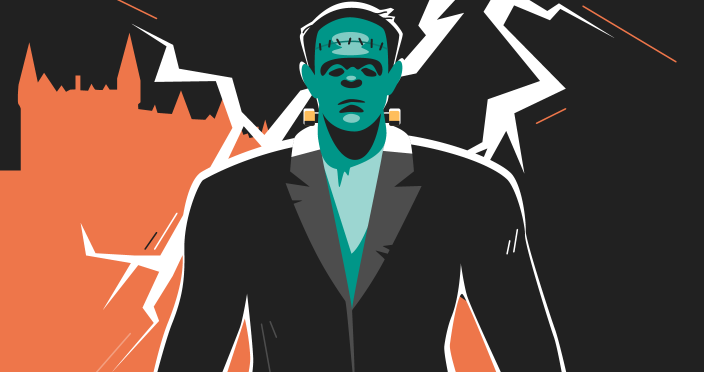
Welcome to Frankenstein Essay Samples page prepared by our editorial team! Here you’ll find a number of great ideas for your Frankenstein essay! Absolutely free essays & research papers on Frankenstein by Mary Shelley. Examples of all topics and paper genres.
📝 Frankenstein: Essay Samples List
Frankenstein , by Mary Shelley , is famous all over the world. School and college students are often asked to write about the novel. On this page, you can find a collection of free sample essays and research papers that focus on Frankenstein . Literary analysis , compare & contrast essays, papers devoted to Frankenstein ’s characters & themes, and much more. You are welcome to use these texts for inspiration while you work on your own Frankenstein essay.
- Feminism in Frankenstein by Mary Shelley Genre: Critical Analysis Essay Words: 2280 Focused on: Frankenstein ’s Themes Characters mentioned: Victor Frankenstein, the Monster, Elizabeth Lavenza , Justine Moritz
- Frankenstein’s Historical Context: Review of “In Frankenstein’s Shadow” by Chris Baldrick Genre: Critical Writing Words: 1114 Focused on: Historical Context of Frankenstein Characters mentioned: the Monster
- Science & Nature in Frankenstein & Blade Runner Genre: Essay Words: Focused on: Themes of Frankenstein , Compare & Contrast Characters mentioned: Victor Frankenstein, the Monster
- Romanticism in Frankenstein: the Use of Poetry in the Novel’s Narrative Genre: Essay Words: 1655 Focused on: Literary analysis of Frankenstein Characters mentioned: Victor Frankenstein, Henry Clerval
- The Dangers of Science in Frankenstein by Mary Shelley Genre: Essay Words: 1098 Focused on: Themes of Frankenstein Characters mentioned: Victor Frankenstein, the Monster
- Mary Shelley’s Frankenstein as a Tragedy Genre: Essay Words: 540 Focused on: Literary analysis of Frankenstein Characters mentioned: Victor Frankenstein
- Frankenstein: a Deconstructive Reading Genre: Essay Words: 2445 Focused on: Literary analysis of Frankenstein Characters mentioned: Victor Frankenstein, the Monster
- Ethics as a Theme in Frankenstein by Mary Shelley Genre: Essay Words: 901 Focused on: Themes of Frankenstein Characters mentioned: Victor Frankenstein, the Monster
- Mary Shelley’s ‘Frankenstein’: Chapter 18 Analysis Genre: Essay Words: 567 Focused on: Literary analysis of Frankenstein Characters mentioned: Victor Frankenstein, the Monster, Elisabeth Lavenza
- The Role of Women in Frankenstein Genre: Essay Words: 883 Focused on: Frankenstein Characters Characters mentioned: Caroline Beaufort, Elizabeth Lavenza, Justine Moritz
- On First Looking into Chapman’s Homer vs. Frankenstein, or the Modern Prometheus: Compare & Contrast Genre: Essay Words: 739 Focused on: Compare & Contrast Characters mentioned: the Monster
- Macbeth & Frankenstein: Compare & Contrast Genre: Essay Words: 2327 Focused on: Compare & Contrast Characters mentioned: Victor Frankenstein, the Monster
- Dr. Frankenstein & His Monster: Compare & Contrast Genre: Research Paper Words: 1365 Focused on: Compare & Contrast, Frankenstein Characters Characters mentioned: Victor Frankenstein, the Monster
- Education vs. Family in Frankenstein by Mary Shelley Genre: Essay Words: 1652 Focused on: Themes of Frankenstein Characters mentioned: Victor Frankenstein
- Victor Frankenstein vs. the Creature: Compare & Contrast Genre: Research Paper Words: 1104 Focused on: Compare & Contrast, Frankenstein Characters Characters mentioned: Victor Frankenstein, the Monster
- Frankenstein: Monster’s Appearance & Visual Interpretations Genre: Essay Words: 812 Focused on: Frankenstein Characters Characters mentioned: the Monster
- Doctor Frankenstein: Hero, Villain, or Something in Between? Genre: Essay Words: 897 Focused on: Frankenstein Characters Characters mentioned: Victor Frankenstein
- Mary Shelley’s Frankenstein: 1994 Movie Analysis Genre: Essay Words: 1084 Focused on: Compare & Contrast Characters mentioned: Victor Frankenstein, the Monster, Elizabeth Lavenza
- Frankenstein vs. Great Expectations: Compare & Contrast Genre: Essay Words: 2540 Focused on: Compare & Contrast, Themes of Frankenstein Characters mentioned: Victor Frankenstein, the Monster, Robert Walton
- Innocence of Frankenstein’s Monster Genre: Term Paper Words: 2777 Focused on: Frankenstein Characters Characters mentioned: Victor Frankenstein, the Monster, Robert Walton
- Knowledge as the Main Theme in Frankenstein Genre: Term Paper Words: 2934 Focused on: Themes of Frankenstein Characters mentioned: Victor Frankenstein, the Monster, Robert Walton, Henry Clerval, Elisabeth Lavenza, Willian Frankenstein
- Responsibility as a Theme in Frankenstein Genre: Essay Words: 619 Focused on: Themes of Frankenstein Characters mentioned: Victor Frankenstein
- Homosexuality in Frankenstein by Mary Shelley Genre: Research Paper Words: 2340 Focused on: Themes of Frankenstein Characters mentioned: Victor Frankenstein, the Monster, Henry Clerval
- Frankenstein & the Context of Enlightenment Genre: Historical Context of Frankenstein Words: 1458 Focused on: Compare & Contrast Characters mentioned: Victor Frankenstein, the Monster
- Frankenstein: the Theme of Birth Genre: Essay Words: 1743 Focused on: Themes of Frankenstein Characters mentioned: Victor Frankenstein, the Monster
- Frankenstein: Critical Reflections by Ginn & Hetherington Genre: Essay Words: 677 Focused on: Compare & Contrast Characters mentioned: Victor Frankenstein, the Monster
- Loneliness & Isolation in Mary Shelley’s Frankenstein Genre: Essay Words: 609 Focused on: Themes of Frankenstein Characters mentioned: Victor Frankenstein
- Share to Facebook
- Share to Twitter
- Share to LinkedIn
- Share to email
Study Guide Menu
- Plot Summary
- Summary & Analysis
- Literary Devices & Symbols
- Essay Samples
- Essay Topics
- Questions & Answers
- Mary Shelley: Biography
- Chicago (A-D)
- Chicago (N-B)
IvyPanda. (2024, March 12). Frankenstein: Essay Samples. https://ivypanda.com/lit/study-guide-on-frankenstein/essay-samples/
"Frankenstein: Essay Samples." IvyPanda , 12 Mar. 2024, ivypanda.com/lit/study-guide-on-frankenstein/essay-samples/.
IvyPanda . (2024) 'Frankenstein: Essay Samples'. 12 March.
IvyPanda . 2024. "Frankenstein: Essay Samples." March 12, 2024. https://ivypanda.com/lit/study-guide-on-frankenstein/essay-samples/.
1. IvyPanda . "Frankenstein: Essay Samples." March 12, 2024. https://ivypanda.com/lit/study-guide-on-frankenstein/essay-samples/.
Bibliography
IvyPanda . "Frankenstein: Essay Samples." March 12, 2024. https://ivypanda.com/lit/study-guide-on-frankenstein/essay-samples/.
Advertisement
The best new science fiction books of April 2024
There’s an abundance of exciting new science fiction out in April, by writers including The Three-Body Problem author Cixin Liu, Douglas Preston and Lionel Shriver
By Alison Flood
1 April 2024

The last remaining free city of the Forever Desert has been besieged for centuries in The Truth of the Aleke
Shutterstock / Liu zishan
There are some huge names with new works out this month: Cixin Liu and Ann Leckie both have collections of shorter writing to peruse, plus there’s a dystopic future from the award-winning Téa Obreht and a world where woolly mammoths have been brought back from the bestselling Douglas Preston. I also love the sound of Scott Alexander Howard’s debut The Other Valley , set in a town where its past and future versions exist in the next valleys over, and of Sofia Samatar’s space adventure The Practice, the Horizon, and the Chain . So much to read, so little time…
A View from the Stars by Cixin Liu
This is a collection of short works from Liu, the sci-fi author of the moment thanks to Netflix’s new adaptation of The Three-Body Problem , ranging from essays and interviews to short fiction. I love this snippet from an essay about sci-fi fans, in which he calls us “mysterious aliens in the crowd”, who “jump like fleas from future to past and back again, and float like clouds of gas between nebulae; in a flash, we can reach the edge of the universe, or tunnel into a quark, or swim within a star-core”. Aren’t we lucky to have such worlds available to us on our shelves?
3 Body Problem review: Cixin Liu's masterpiece arrives on Netflix
Cixin Liu's novel The Three-Body Problem has been turned into an eight-part series for Netflix by the Game of Thrones team. There is much to admire so far, but will the adaptation stay on track, wonders Bethan Ackerley
Lake of Souls by Ann Leckie
Leckie is a must-read writer for me, and this is the first complete collection of her short fiction, ranging across science fiction and fantasy. On the sci-fi side, we will be able to dip back into the Imperial Radch universe, and we are also promised that we’ll “learn the secrets of the mysterious Lake of Souls” in a brand-new novelette.
The Morningside by Téa Obreht
In a catastrophic version of the future, an 11-year-old girl arrives with her mother at The Morningside, once a luxury high-rise, now another crumbling part of Island City, which is half-underwater. Obreht won the Orange Prize for Fiction in 2011 for her debut, The Tiger’s Wife .
The Practice, the Horizon, and the Chain by Sofia Samatar
Samatar won all sorts of prizes for her first novel, A Stranger in Olondria . Her latest sounds really intriguing, following the story of a boy who has grown up condemned to work in the bowels of a mining ship among the stars, whose life changes when he is given the chance to be educated at the ship’s university.

A boy grows up working in a mining ship among the stars in The Practice, the Horizon, and the Chain
D-Keine/Getty Images
Extinction by Douglas Preston
This is set in a valley in the Rockies, where guests at a luxury resort can see woolly mammoths, giant ground sloths and Irish elk brought back from extinction by genetic manipulation. But then a string of killings kicks off, and a pair of investigators must find out what’s really going on. This looks Jurassic Park -esque and seems like lots of fun. And if you want more mammoth-related reading, try my colleague Michael Le Page’s excellent explainer about why they won’t be back any time soon.
Mania by Lionel Shriver
The award-winning author of We Need to Talk About Kevin brings her thoughts about so-called “culture wars” to bear on her fiction, imagining a world where a “Mental Parity Movement” is in the ascendent, and “the worst thing you can call someone is ‘stupid’”.
The Other Valley by Scott Alexander Howard
This speculative novel is set in a town where, to the east, lies the same town but 20 years ahead in time and, to the west, the same town but 20 years behind, repeating endlessly across the wilderness. The only border crossings allowed are for “mourning tours”, in which the dead can be seen in towns where they are still alive. Odile, who is 16, is set for a seat on the Conseil, where she will be able to decree who gets to travel across borders. I love the sound of this.
The best new science fiction books of March 2024
With a new Adrian Tchaikovsky, Mars-set romance from Natasha Pulley and a high-concept thriller from Stuart Turton due to hit shelves, there is plenty of great new science fiction to be reading in March
What If… Loki was Worthy? by Madeleine Roux
Many will question whether the Marvel superhero stories are really science fiction, but I’m leaning into the multiversal aspect here to include this, as it sounds like it could be a bit of fun. It’s the first in a new series that reimagines the origins of some of the biggest heroes: here, Thor died protecting Earth from one of Loki’s pranks and, exiled on our planet, the Norse trickster god is now dealing with the consequences.
The Truth of the Aleke by Moses Ose Utomi
The second book in the Forever Desert series is set 500 years after The Lies of the Ajungo , following a junior peacekeeper in the last remaining free city of the Forever Desert, which has been besieged for centuries. It was actually out in March, but I missed it then, so I’m bringing it to you now as it was tipped as a title to watch this year by our science fiction contributor Sally Adee.
Anomaly by Andrej Nikolaidis, translated by Will Firth
It is New Year’s Eve on the last day of the last year of human existence and various stories are unfolding, from a high-ranking minister with blood on his hands to a nurse keeping a secret. Later, in a cabin in the Alps, a musicologist and her daughter – the last people left on Earth – are trying to understand the catastrophe. According to The Independent , Nikolaidis “makes Samuel Beckett look positively cheery”, but I’m definitely in the mood for that kind of story now and then.
Martin MacInnes: 'Science fiction can be many different things'
The author of In Ascension, the latest pick for the New Scientist Book Club, on why he wrote his novel, cultivating a sense of wonder and the role of fiction in the world today
Mal Goes to War by Edward Ashton
In this techno-thriller, Mal is a free AI who is uninterested in the conflict going on between the humans, until he finds himself trapped in the body of a cyborg mercenary and becomes responsible for the safety of the girl she died protecting.
- science fiction /
Sign up to our weekly newsletter
Receive a weekly dose of discovery in your inbox! We'll also keep you up to date with New Scientist events and special offers.
More from New Scientist
Explore the latest news, articles and features
In Frank Herbert’s Dune, fungi are hidden in plain sight
Subscriber-only
Is the woolly mammoth really on the brink of being resurrected?
Popular articles.
Trending New Scientist articles
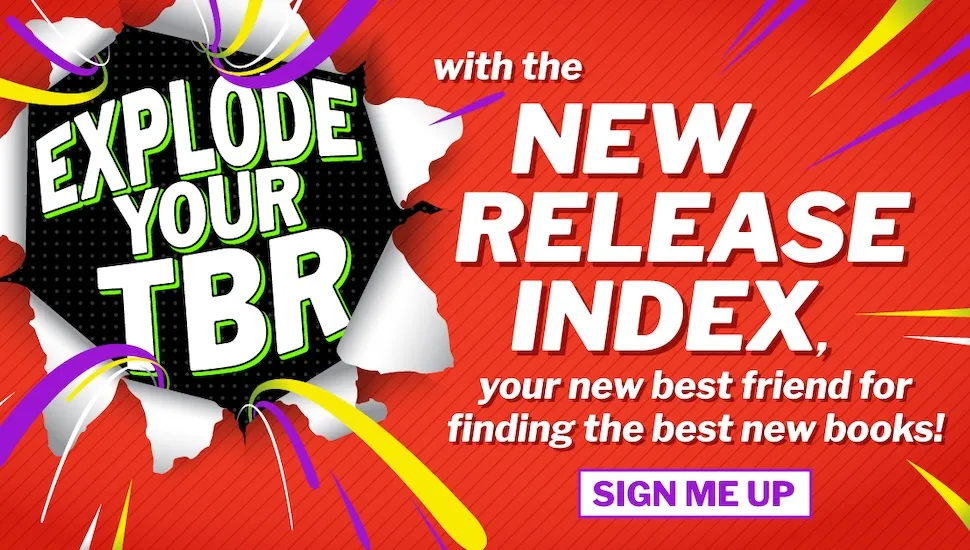
The Best Nonfiction Books of 2024 (So Far)
Always books. Never boring.
View All posts by Community
We’re a quarter of the way through the year, if you can believe it, which makes it a good time to look back at the state of books so far in 2024. Goodreads has just released a list of 51 Nonfiction Hits of 2024 (So Far), separated into Essays, Memoirs, History & Biography, Science, and General Nonfiction. These are the books that have been added by Goodreads users to their Read and Want to Read shelves the most, as well as gathering a lot of positive reviews.
Here are a few of the best and buzziest nonfiction books of 2024 so far:
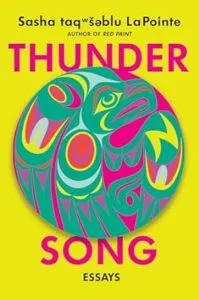
There’s Always This Year: On Basketball and Ascension by Hanif Abdurraqib
You Get What You Pay For: Essays by Morgan Parker
Like Love: Essays and Conversations by Maggie Nelson
Thunder Song: Essays by Sasha taqwšəblu LaPointe
I Finally Bought Some Jordans: Essays by Michael Arceneaux
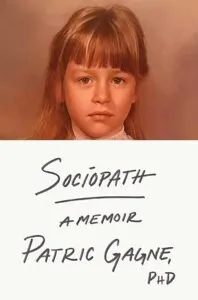
Grief Is for People by Sloane Crosley
The House of Hidden Meanings by RuPaul
This American Ex-Wife by Lyz Lenz
Sociopath: A Memoir by Patric Gagne
Legacy: A Black Physician Reckons with Racism in Medicine by Uché Blackstock
History & Biography
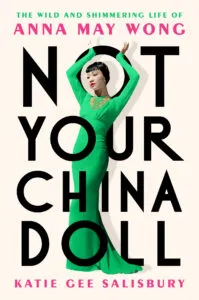
The Demon of Unrest: A Saga of Hubris, Heartbreak, and Heroism at the Dawn of the Civil War by Erik Larson
Not Your China Doll: The Wild and Shimmering Life of Anna May Wong by Katie Gee Salisbury
A History of the World in Twelve Shipwrecks by David Gibbins
Science, Technology & Health
Not the End of the World: How We Can Be the First Generation to Build a Sustainable Planet by Hannah Ritchie
Filterworld: How Algorithms Flattened Culture by Kyle Chayka
Burn Book: A Tech Love Story by Kara Swisher
General Nonfiction
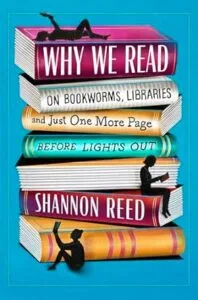
The Age of Magical Overthinking: Notes on Modern Irrationality by Amanda Montell
Why We Read: On Bookworms, Libraries, and Just One More Page Before Lights Out by Shannon Reed
To see all 51 of the Nonfiction Hits of 2024 (So Far), check out the full list on Goodreads .
Find more news and stories of interest from the book world in Breaking in Books .
Also In This Story Stream
- Surprise 4th Book in Jeff VanderMeer’s Hit Southern Reach Series Coming Out This Year
- The 2024 PEN/Faulkner Award for Fiction Winner Has Been Announced
- Watch the Trailer for TURTLES ALL THE WAY DOWN, Based on the John Green Novel
- Windham-Campbell Prizes Award 8 Writers $175,000 Each
- 5 Books Trending On Amazon Today (and Why)
- The Bestselling Books of the Week, According to All the Lists
- Rebecca Yarros Announces Title of Next Book in FOURTH WING Series
- 24 Titles Compete for Barnes & Noble’s Children’s & Young Adult Book Awards
- Jimmy Fallon’s Book Club is Doing a March Madness-Style Bracket for Their Next Pick
You Might Also Like


IMAGES
VIDEO
COMMENTS
These examples might help stimulate your thinking. However, keep in mind that your essay hook needs to be unique to your essay, so use these as inspiration but write your own essay hook that's perfect for your own essay. 1. For an Essay About Yourself. An essay about yourself can be personal, use "I" statements, and include memories or ...
Start your first draft by writing the introduction. Include a hook, provide background information, and identify your thesis statement. Here is an example of a hook for a science fiction essay: "Imagine a future where humanity's fate hangs in the balance, where machines challenge our very existence.
Historical Fiction Hooks. Bronze Drum, by Phong Nguyen: "During the Bronze Age in ancient Vietnam, when a wicked new Han governor imposes strict laws on the Viet people, a Lord by the name of Trưng speaks out against the oppressive new rules and is subsequently beheaded.But his two daughters, Trưng Trắc and Trưng Nhị, in an act of revenge and patriotism, train an army of women who rise ...
One of my most popular blog posts is my 50 Fantasy Plot Ideas and Writing Prompts, so I thought I'd share a companion post of sci fi story ideas and writing prompts.Some of these may be more along the lines of "speculative fiction" than science fiction. They include prompts about the environment, artificial intelligence, genetics, medicine, time travel, space exploration, alien races ...
Tip 5: Don't Stop at the Hook. Some writers focus so much on nailing the opening hook that they forget to make the rest of the essay equally strong. Your reader could still stop reading on the second page, or the third, or the tenth. Make sure you use strong and engaging writing throughout the piece.
The Book of Ptath, A.E. van Vogt (1943) It isn't until we get to the Golden Age of Science Fiction—the late forties and into the sixties (when New Wave writers took the genre into the realm of literary fiction)—that the telling hook starts to be supplanted by the hook in situ. It was a pleasure to burn it.
This hook immediately captures our attention by bringing up something familiar that most people know—science fiction—and contrasting it with something new—AI entering our daily lives. It sets up an interesting question that encourages us to keep reading to learn more about how AI impacts our lives today.
Science Fiction Writing Prompts. Here is a list of science fiction prompts that might inspire your next sci-fi story. Feel free to take them in whatever direction you want. 1. A time traveler goes mad and intends to travel to the one point in time that's forbidden: the beginning of the universe. 2.
1) Scene-setting. This is possibly the most common type of short story opening. The action doesn't really begin in the opening paragraph, instead we join the characters in a pause before the ...
Hook Examples and Strategies in Fiction Writing. Fiction is writing that is about imagined people, places, and/or things. It is entirely created by the writer. Examples of fiction are: Fiction ...
Ways to write hooks: 1. Build urgency. A girl running for her life; a dead body lying in a swamp; a crowd gathering to point into the sky. Each of these actions or images create a kind of urgency that hooks a reader into the story. The reader wants to know why a girl is running for her life.
4. Don't bury the hook. In order to be effective, the hook should stand alone or be placed either at the beginning of the sentence/paragraph or at the end. Placement is important. Burying it in the middle will blunt the hook and your reader will miss it. 5. Alter a cliché. As writers, we're taught to avoid clichés.
3. Do Your Research. Even if you're writing something relatively soft or toeing the line of science fantasy, you'll likely still need to do some research around the tech or futuristic idea you're investigating. Do initial research yourself, to narrow down your focus.
Writing a compelling hook takes skill. But you can use any of the following ways of writing a hook to get you started: 1. The Surprising Statistic Hook. Presenting a surprising fact or statistic is a great way to grab the attention of your audience. For example, an essay on the orphan crisis may begin with:
2. One Flew Over the Cuckoo's Nest by Ken Kesey. "In the Fall of 1963, a Korean War veteran and criminal pleads insanity and is admitted to a mental institution, where he rallies up the scared patients against the tyrannical nurse." (IMDb) 3. The Kite Runner by Khaled Hosseini.
1. Conven. There is little doubt that Adam Marek's "Without a Shell" is a story that belongs to the category of literature known as science fiction. The tale adheres to many conventions of this particular genre. One of the chief elements of many science fiction tales is the fact that they take place in the future.
The hook. First, try this unexpected tip for how to write a first sentence. Second, do not begin with an information dump or backstory. Third, establish point of view (POV) and setting. Fourth, set the tone and mood through what you focus on and the words you choose. Fifth, be consistent with your genre.
The opening sentence of a science fiction novel, perhaps more than any other genre, has a lot of work to do. Like all good fiction, it needs to hook you, jolt you into the story and establish the tone. Yet it also needs to get you interested in a whole new alternative world, a place where you'll live for the duration of the book. It's a big ask. Nonetheless, there are some masterly examples of ...
Science fiction is one of the most popular genres in the world, and for good reason! It allows us to explore new worlds, imagine different futures, and experience adventures. If you're looking to get into the sci-fi writing zone, these 50 prompts are perfect! They will help you develop new story ideas and keep your creative juices flowing.
Drawn from the Science Fiction Research Association conference held in Lawrence, Kansas, in 2008, the essays in this volume address intersections among the reading, writing, and teaching of science fiction. Part 1 studies the teaching of SF, placing analytical and pedagogical research next to each other to reveal how SF can be both an object of study as well as a teaching tool for other ...
Comparative essay of the science fiction genre. Media GCSE- Jeanine Ros. Science fiction is a genre tracing back to the 2nd century, but the main science fiction terms became famous in the 1920's. Found mainly in films and literature, it has developed to be a very popular genre to watch and read. Science fiction exists of imaginative content ...
📝 Frankenstein: Essay Samples List. Frankenstein, by Mary Shelley, is famous all over the world.School and college students are often asked to write about the novel. On this page, you can find a collection of free sample essays and research papers that focus on Frankenstein.Literary analysis, compare & contrast essays, papers devoted to Frankenstein's characters & themes, and much more.
3 Body Problem review: Cixin Liu's masterpiece arrives on Netflix Cixin Liu's novel The Three-Body Problem has been turned into an eight-part series for Netflix by the Game of Thrones team.
Goodreads has just released a list of 51 Nonfiction Hits of 2024 (So Far), separated into Essays, Memoirs, History & Biography, Science, and General Nonfiction. These are the books that have been added by Goodreads users to their Read and Want to Read shelves the most, as well as gathering a lot of positive reviews.